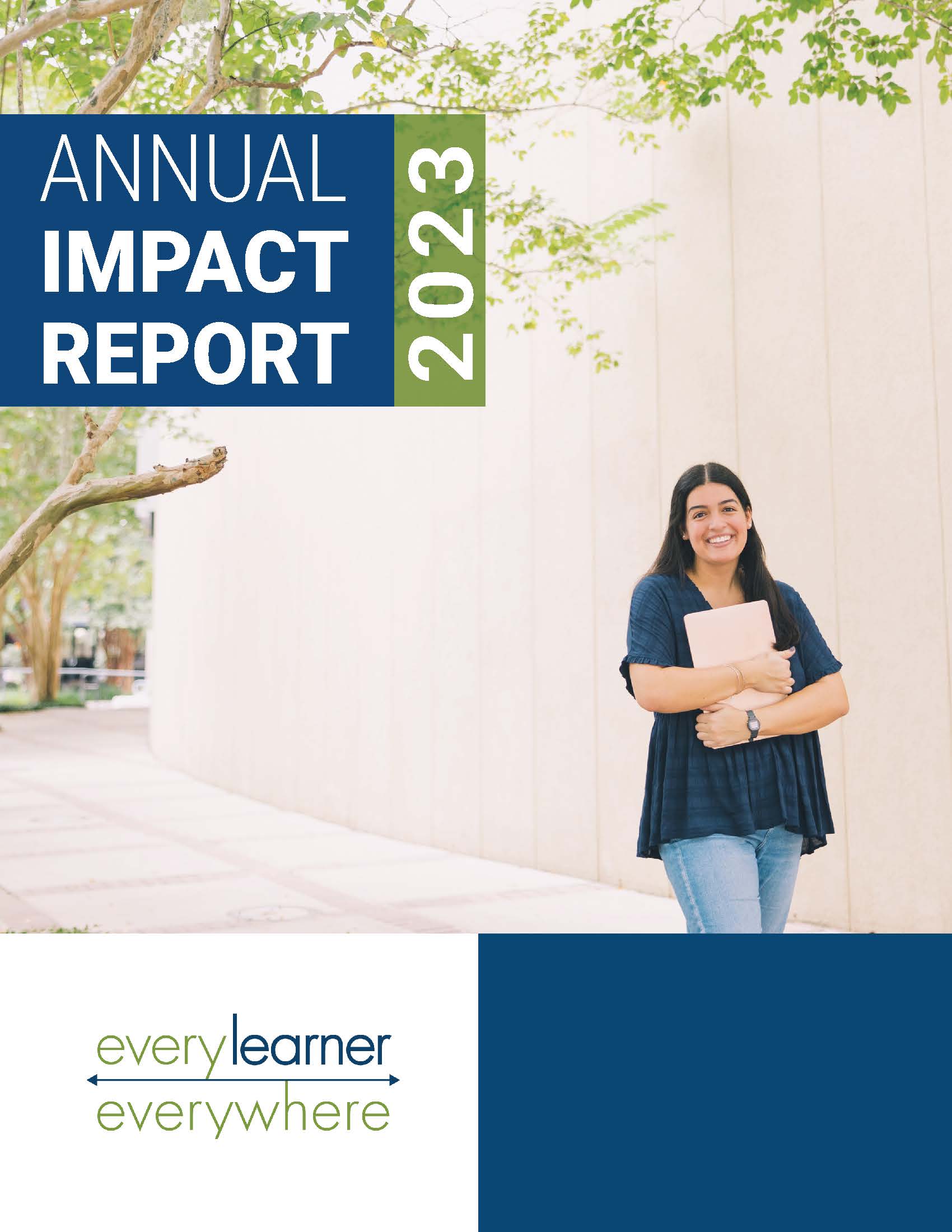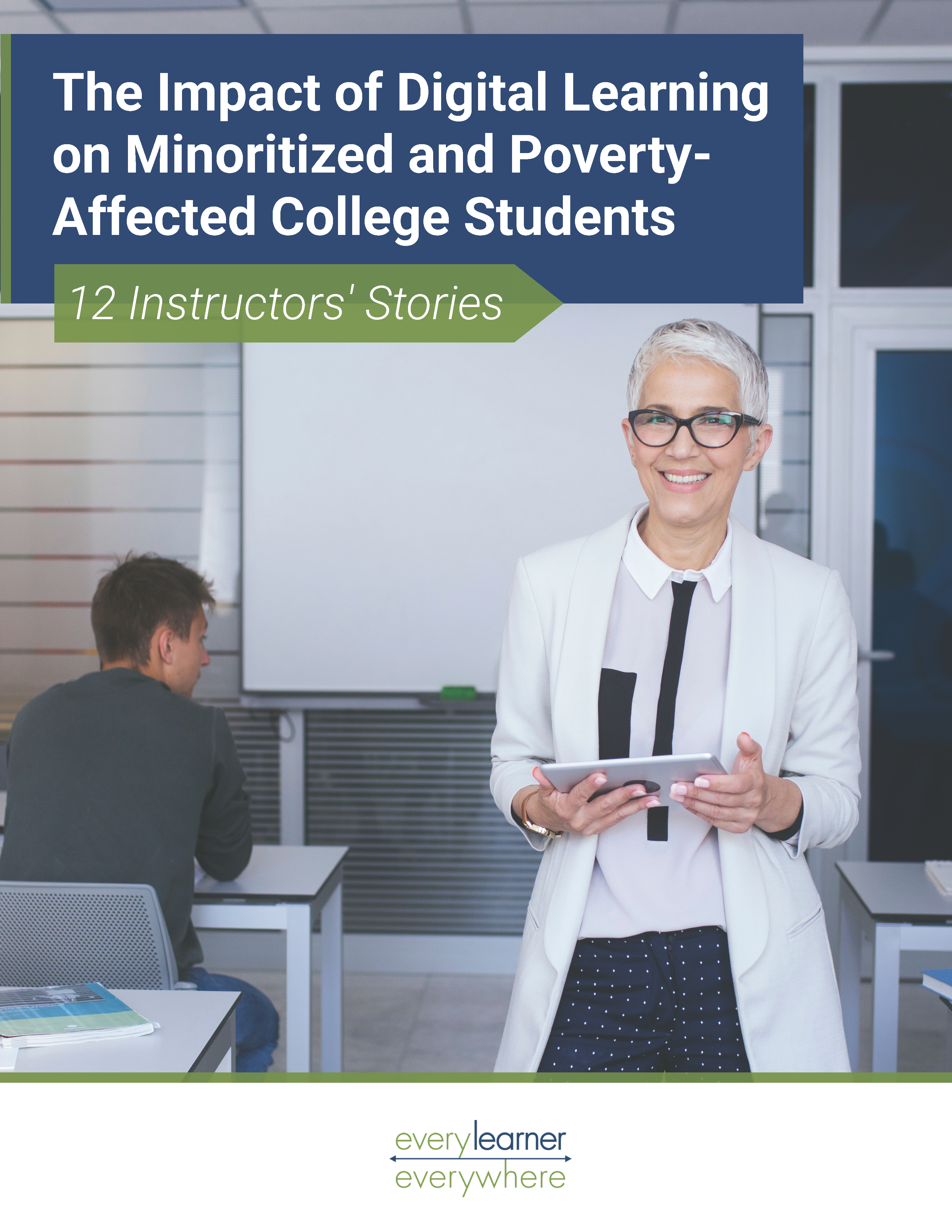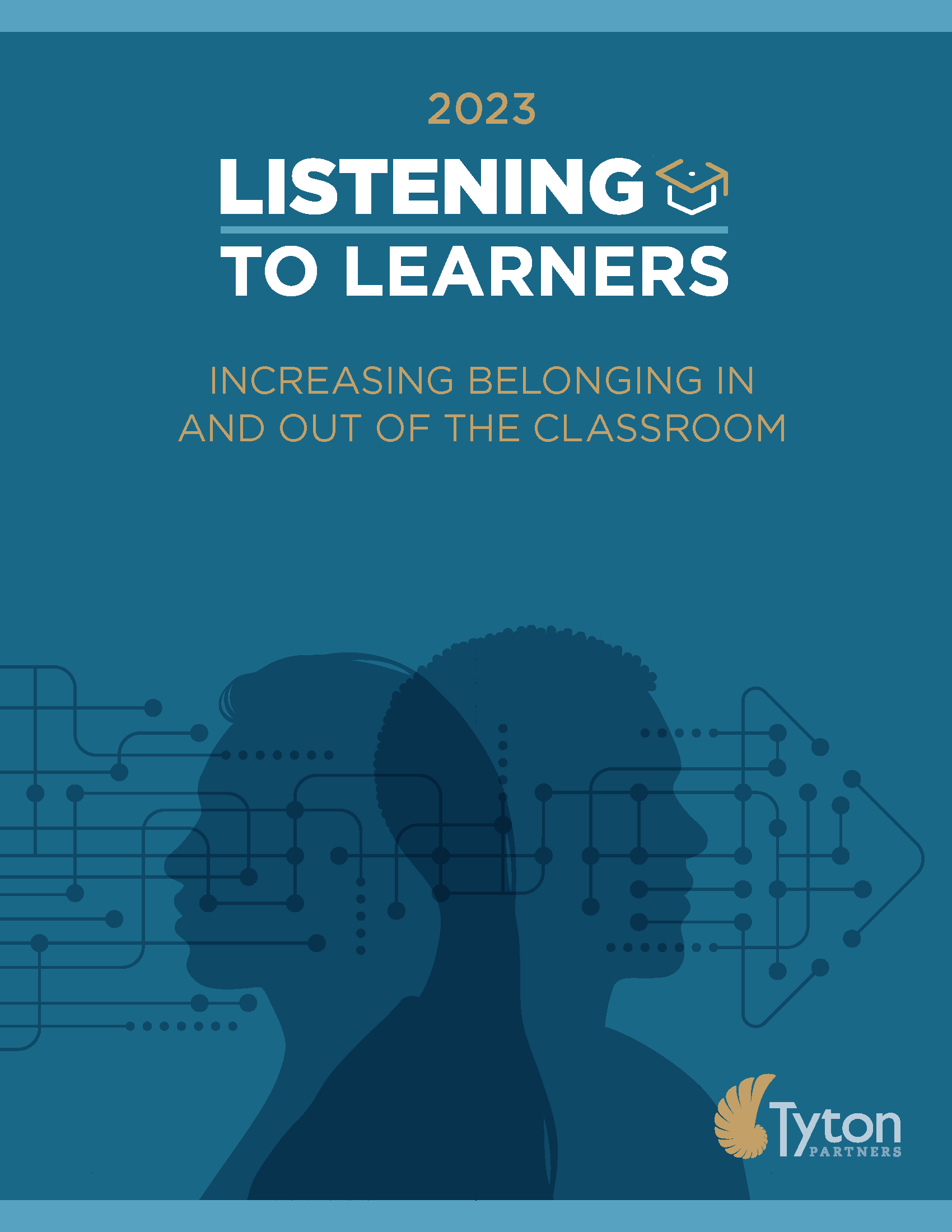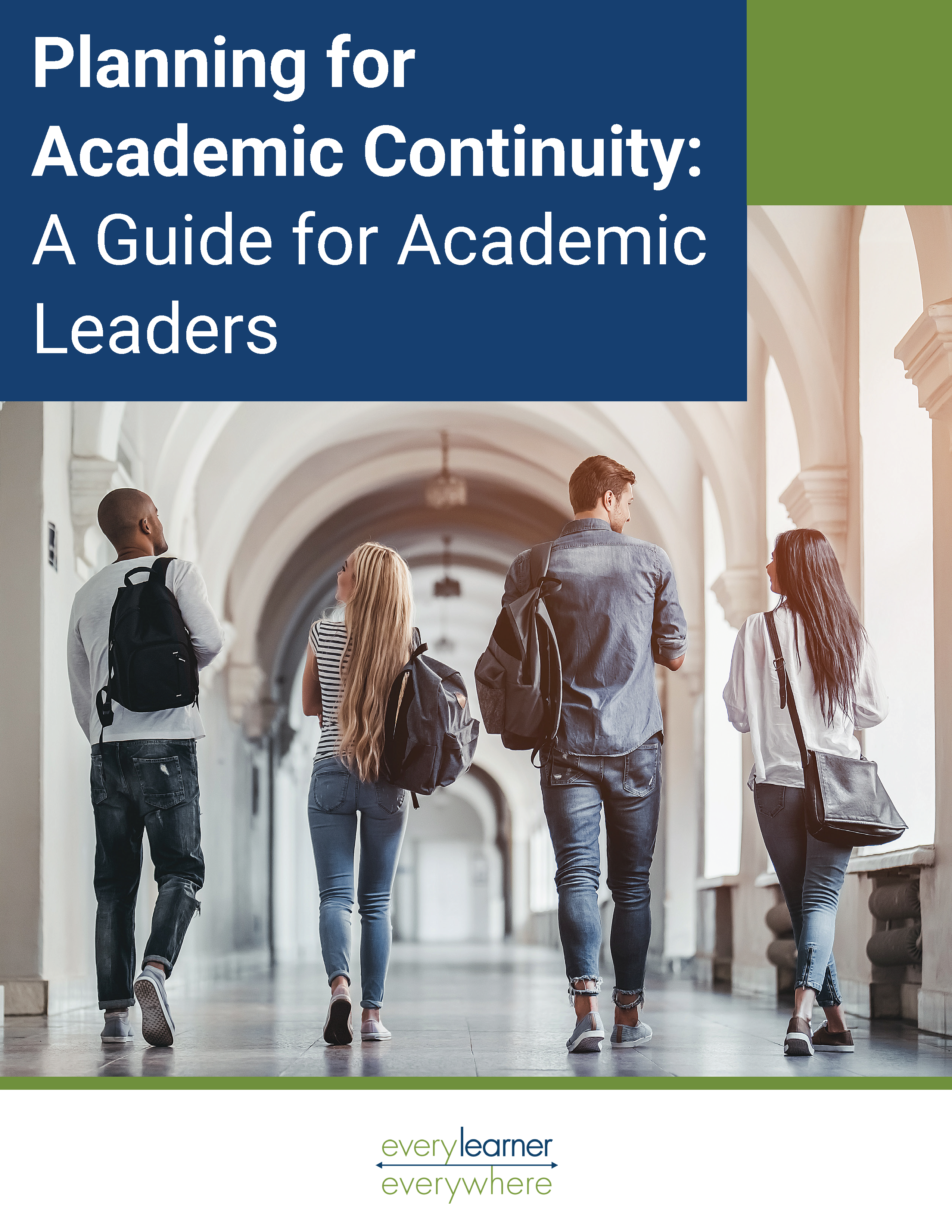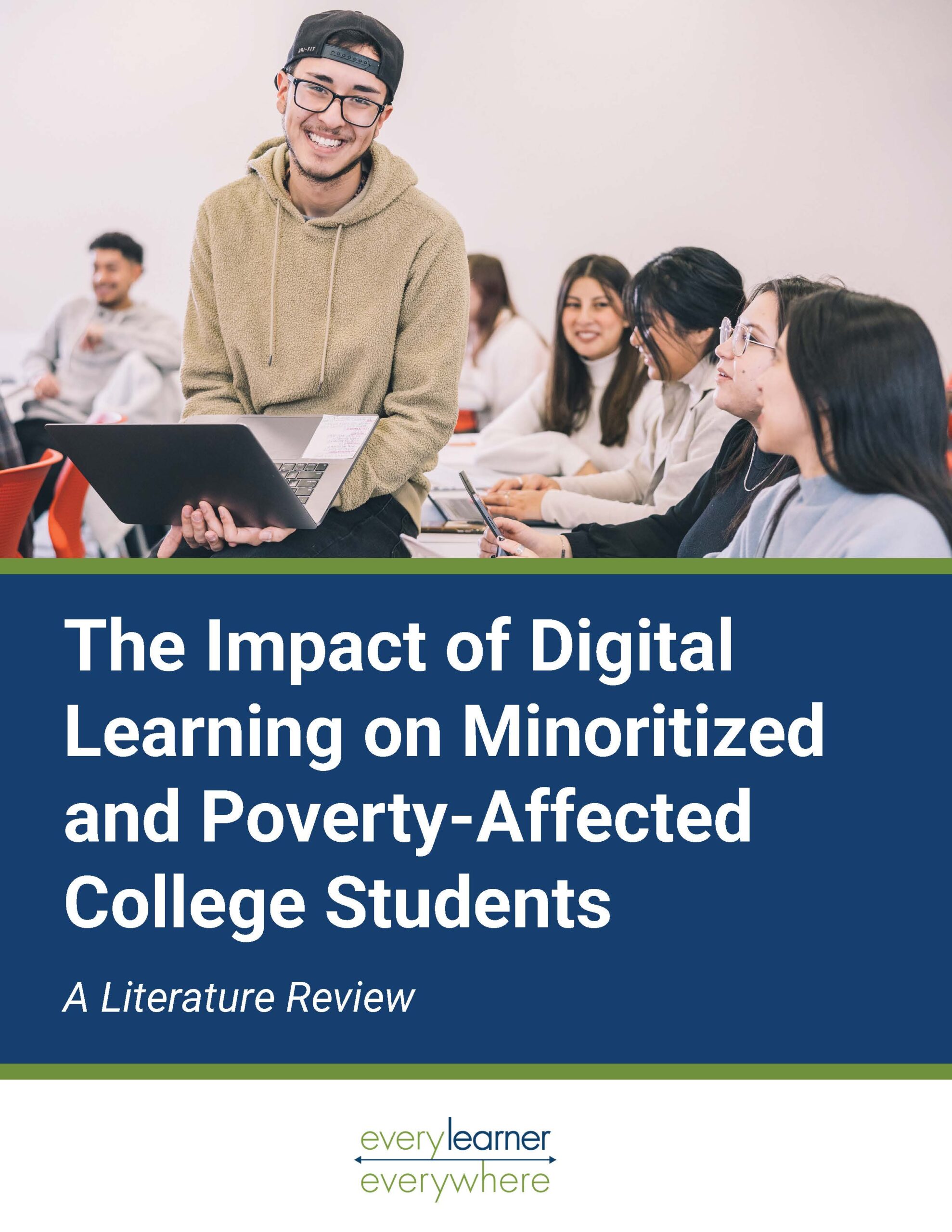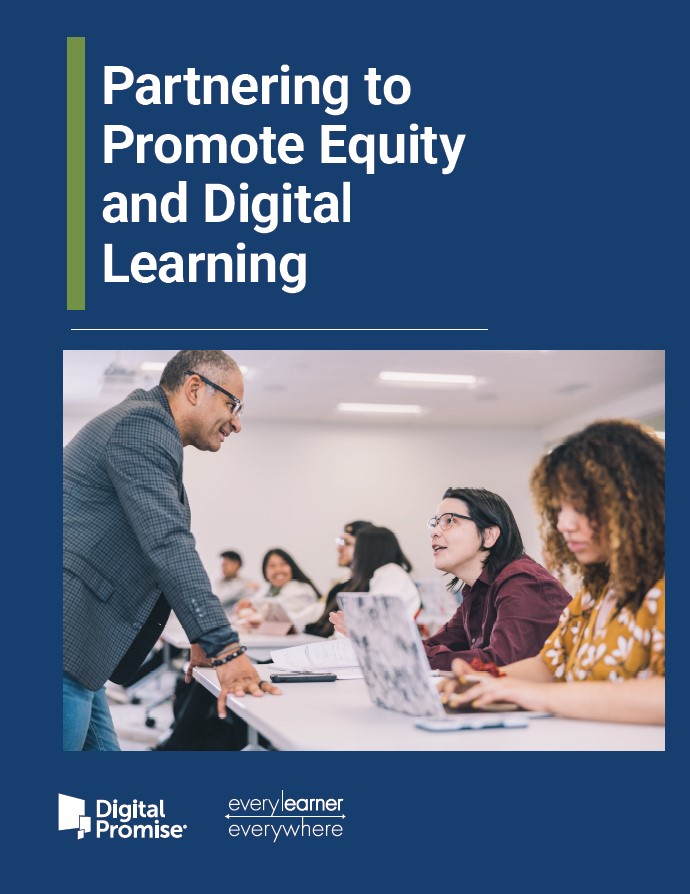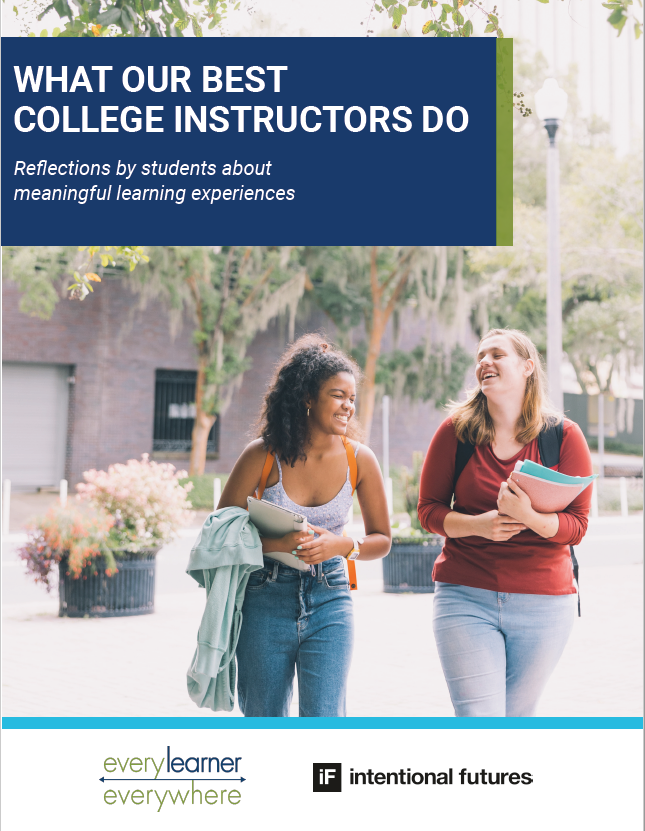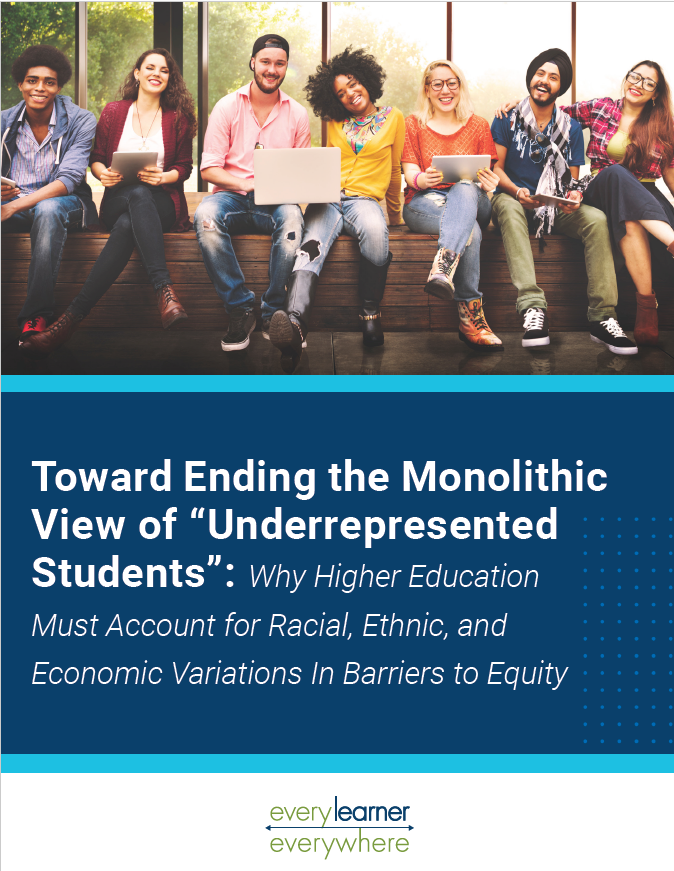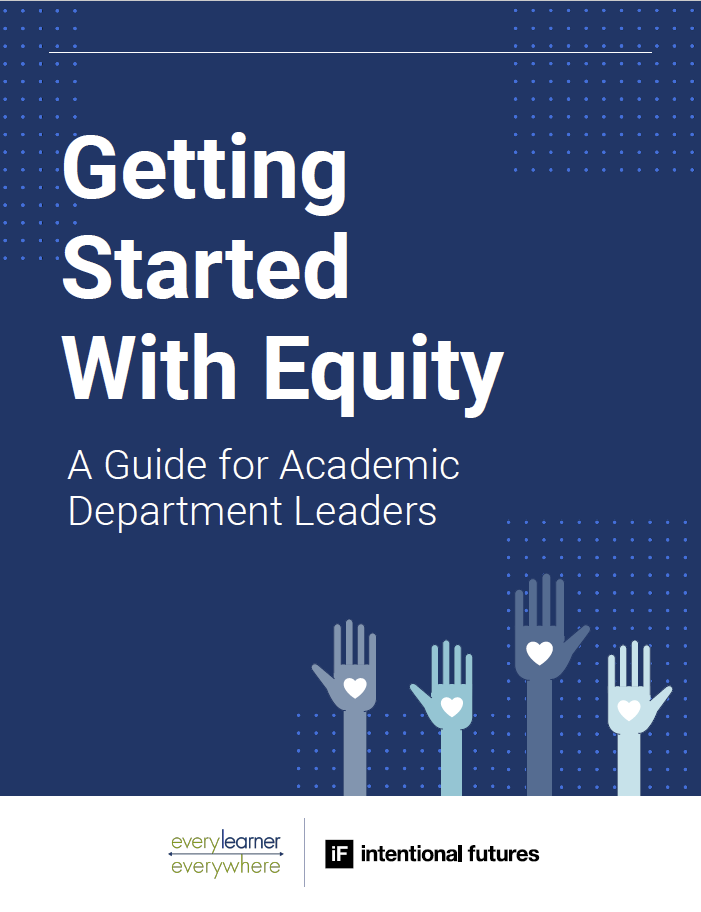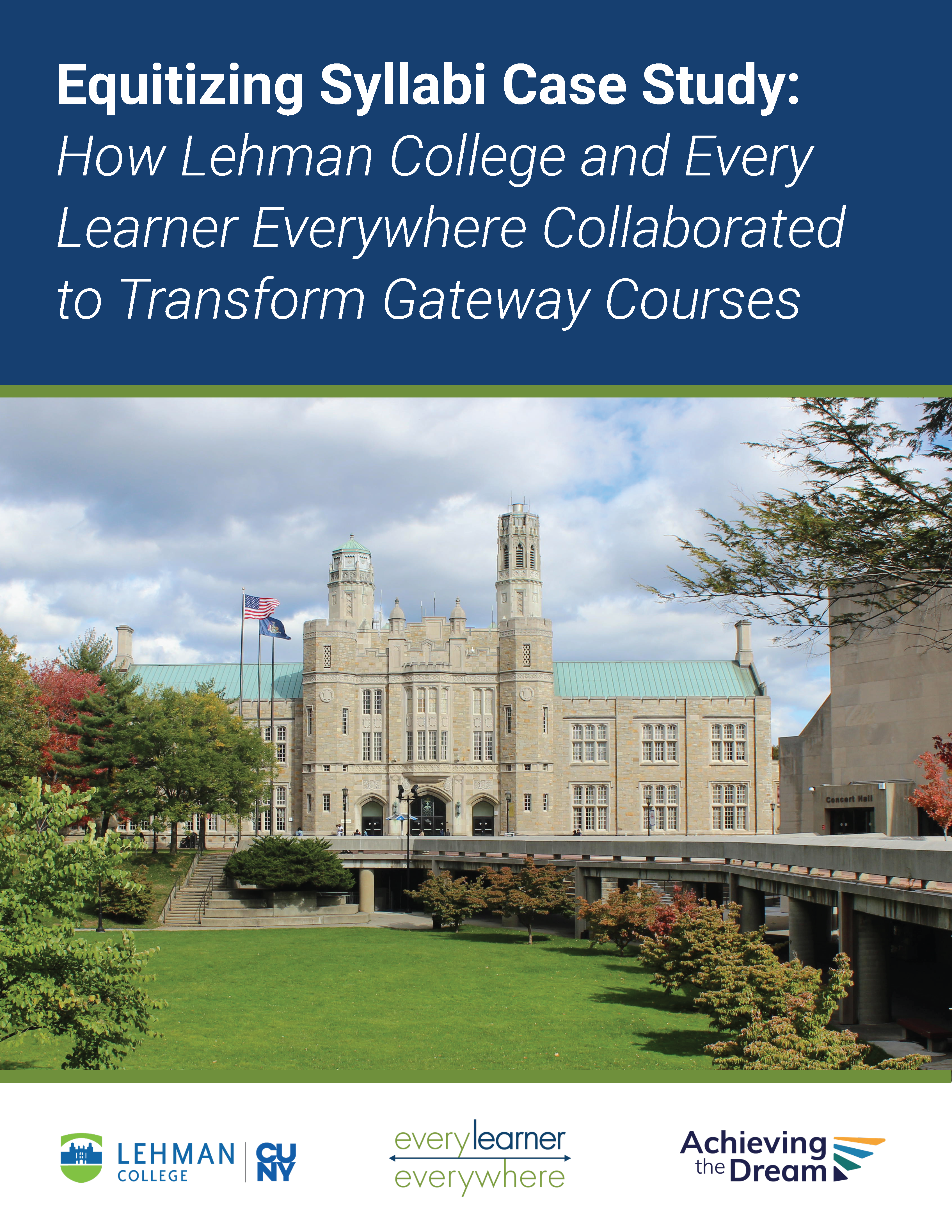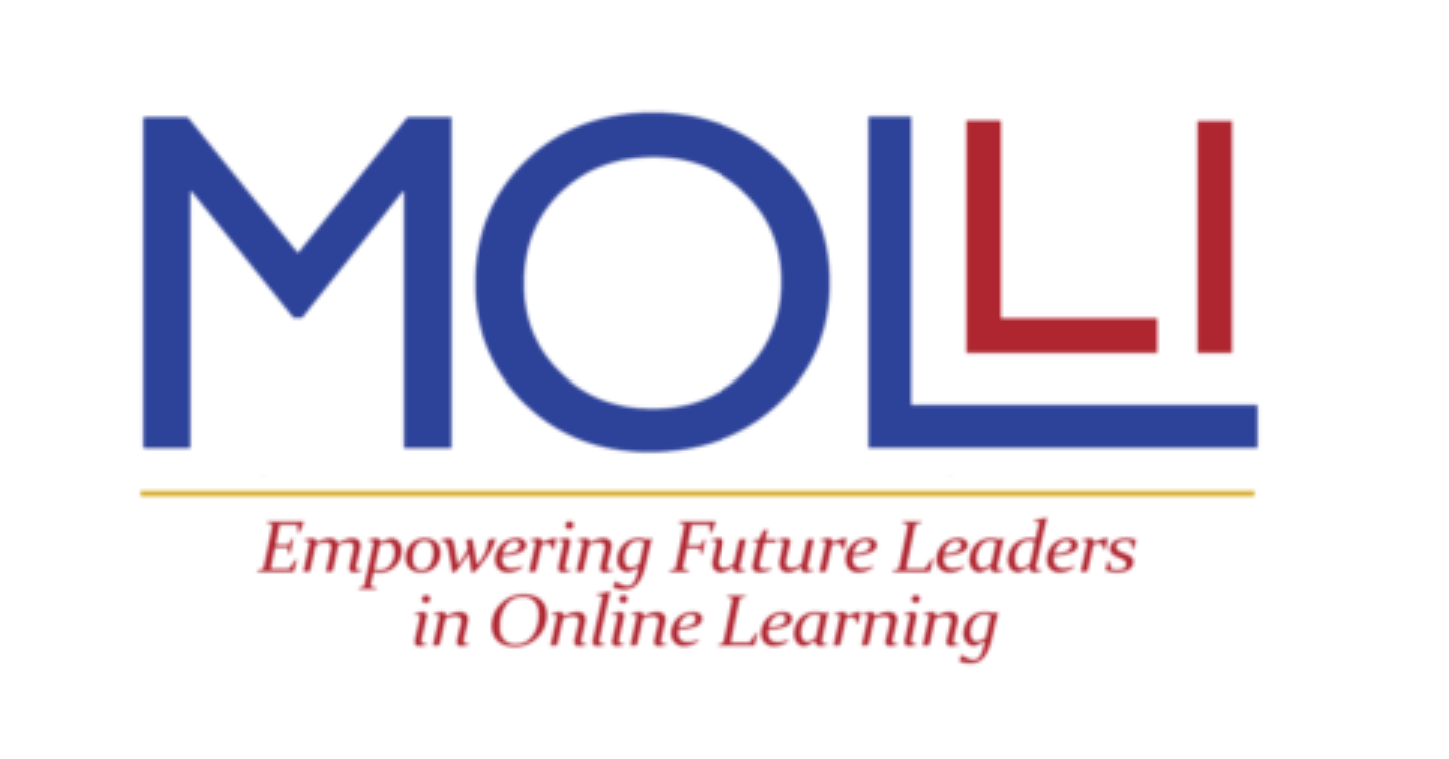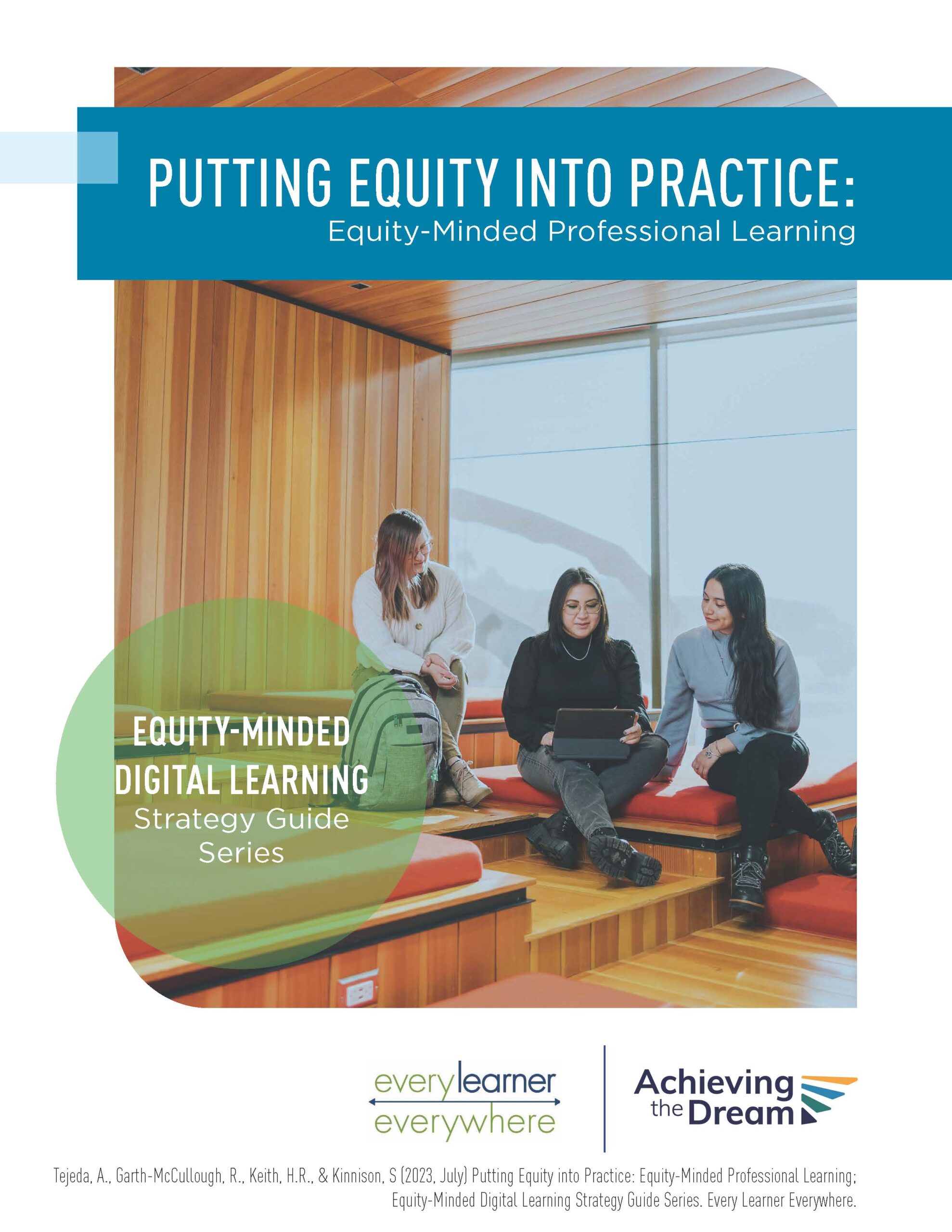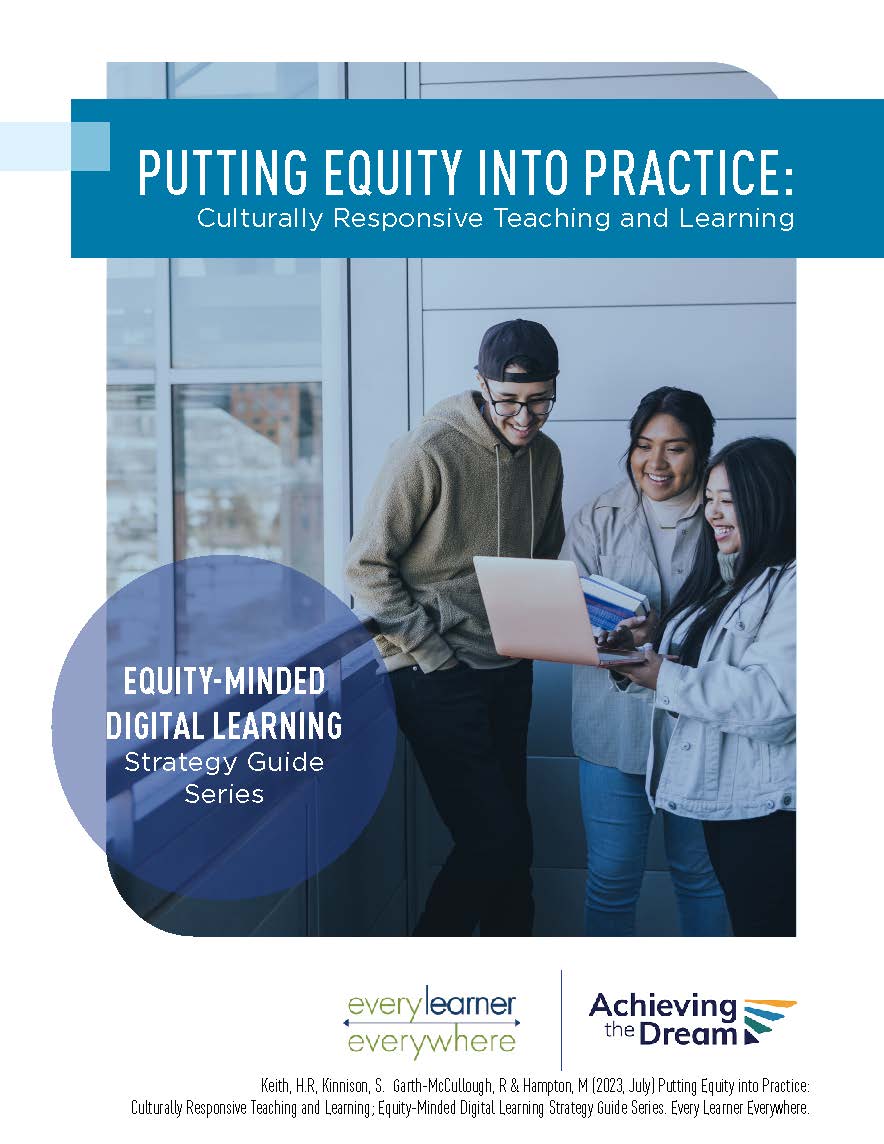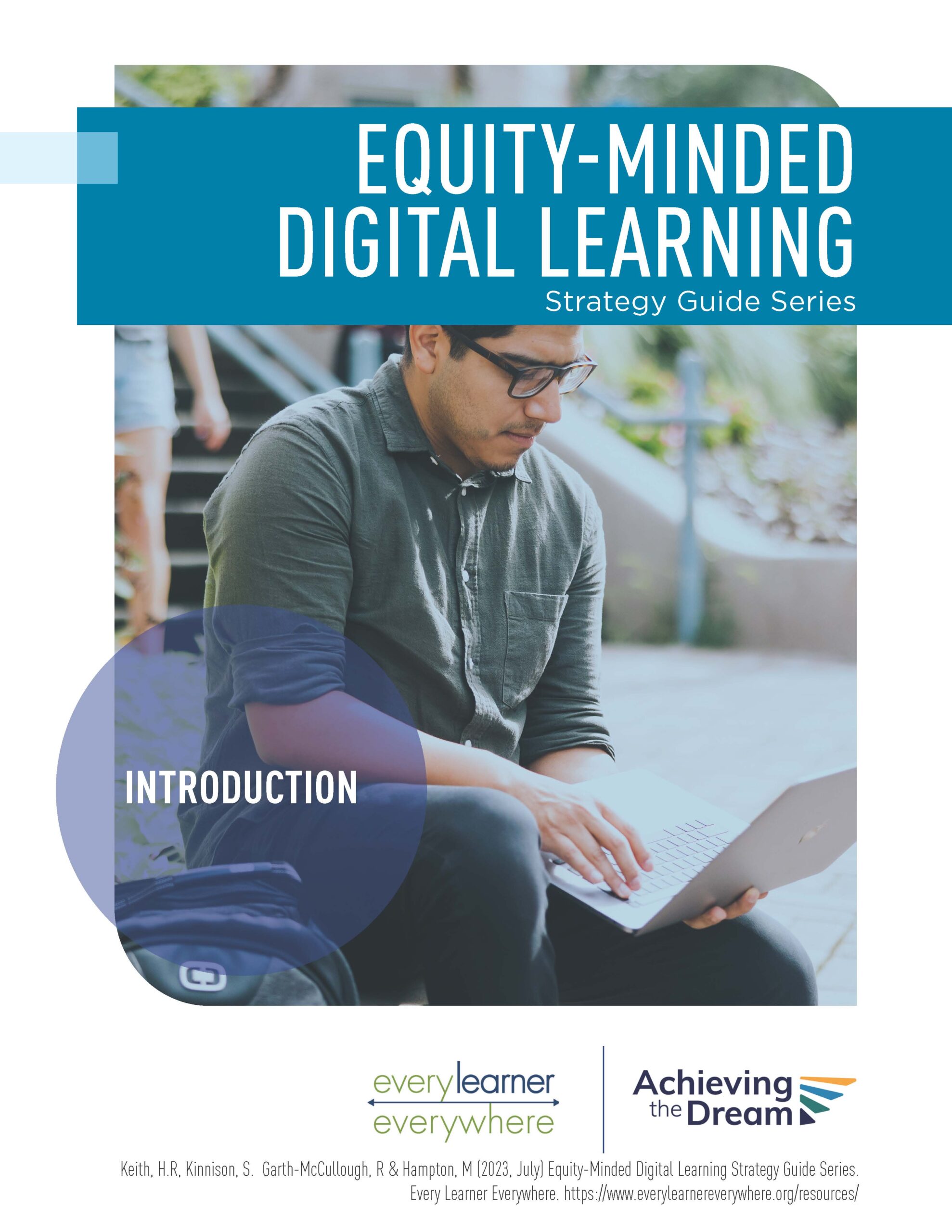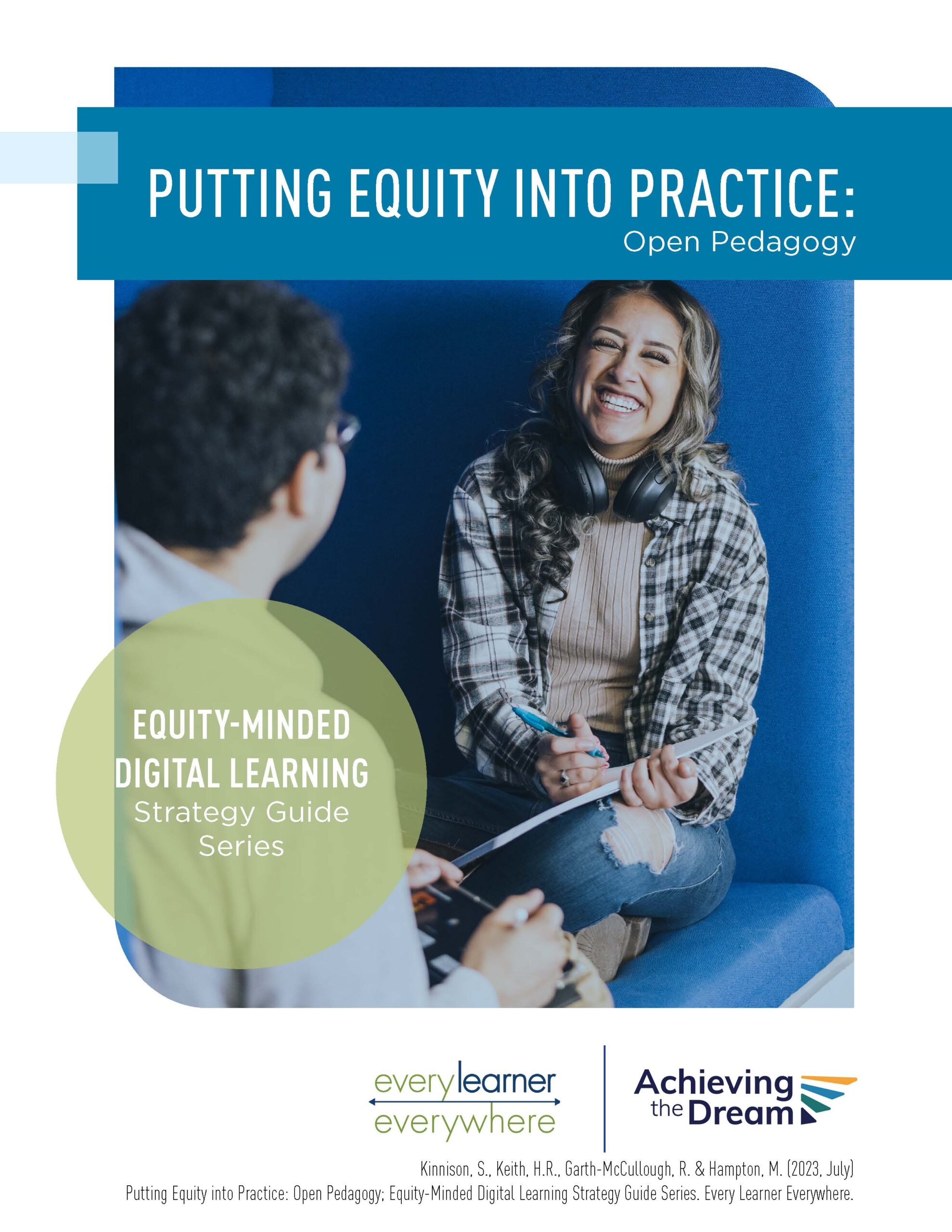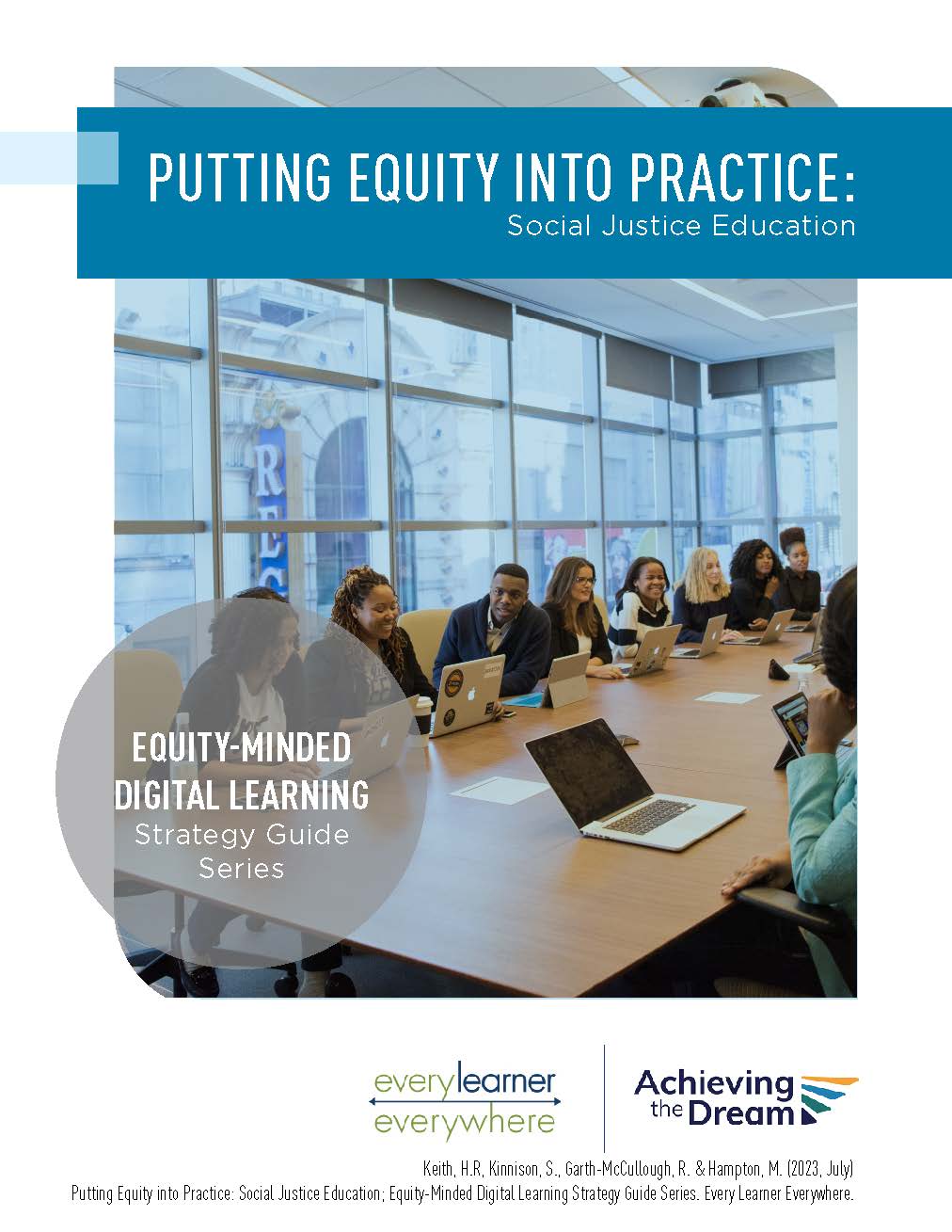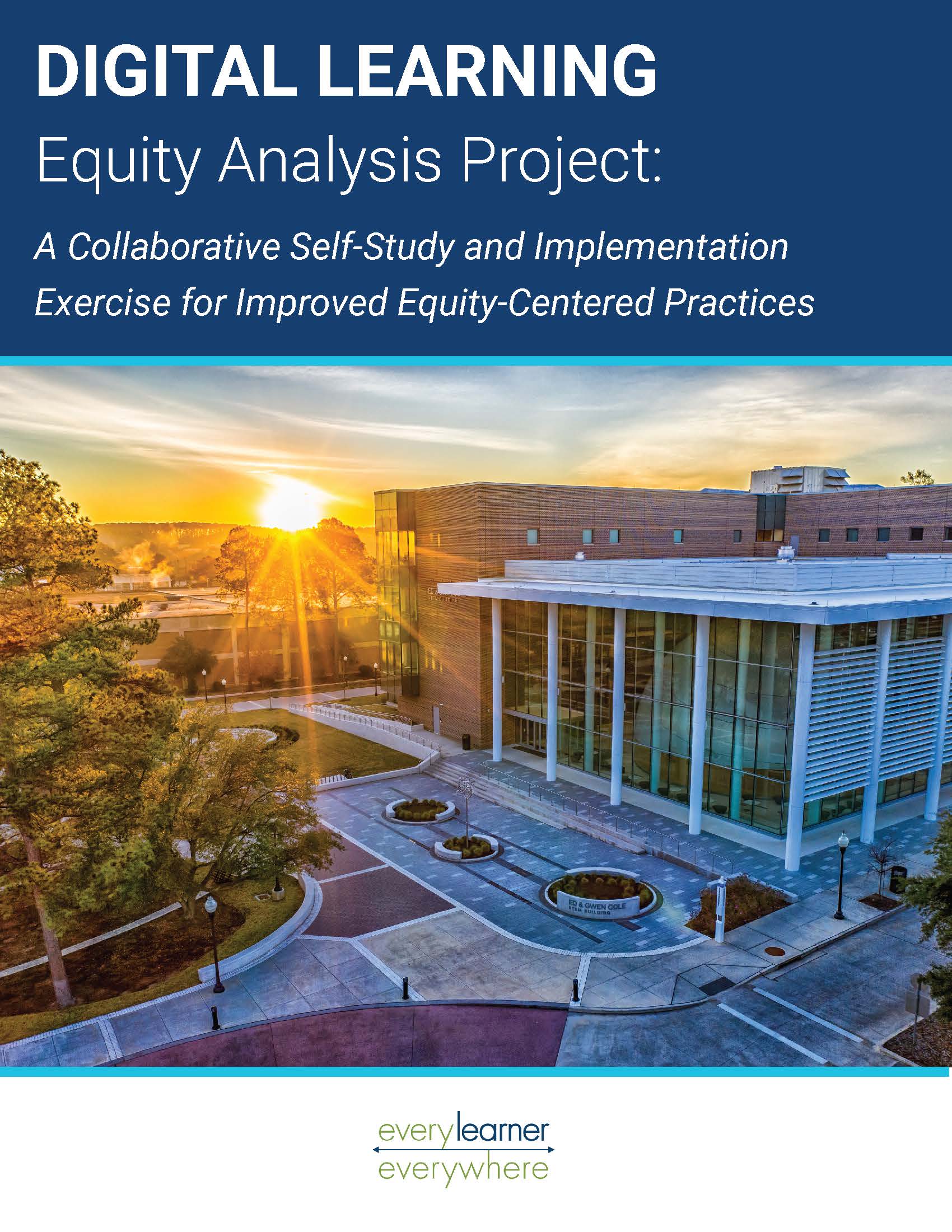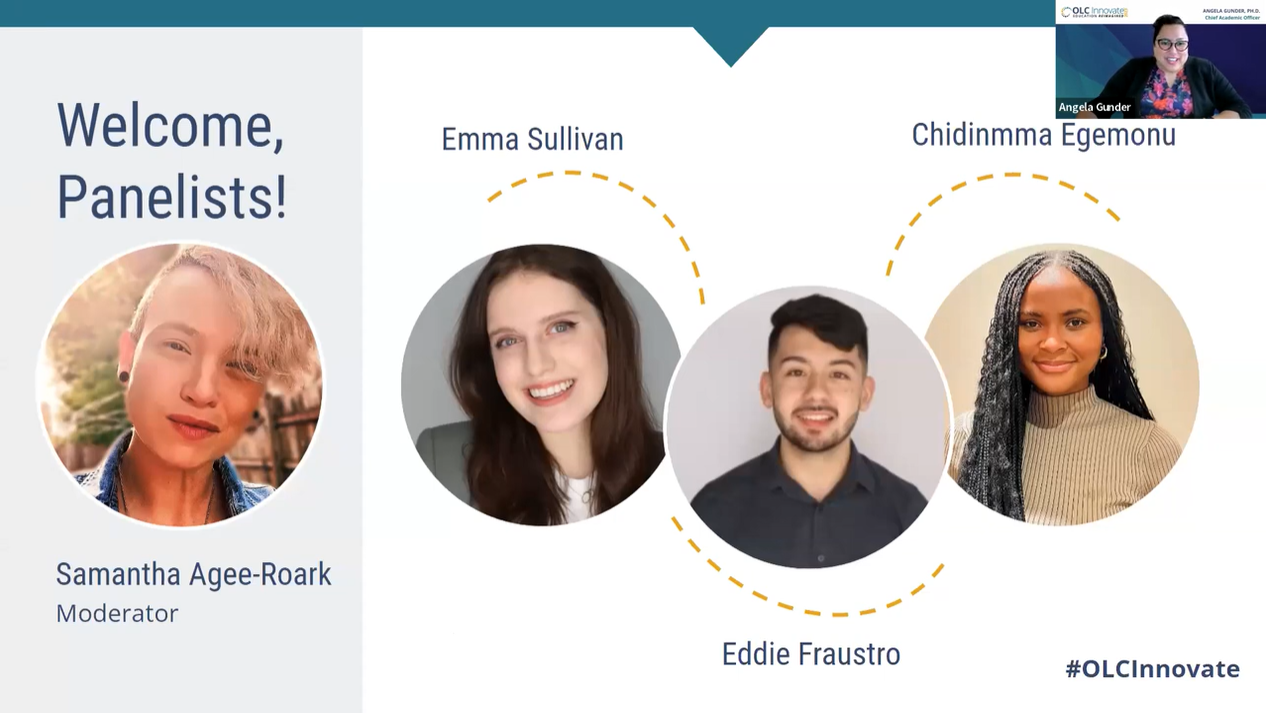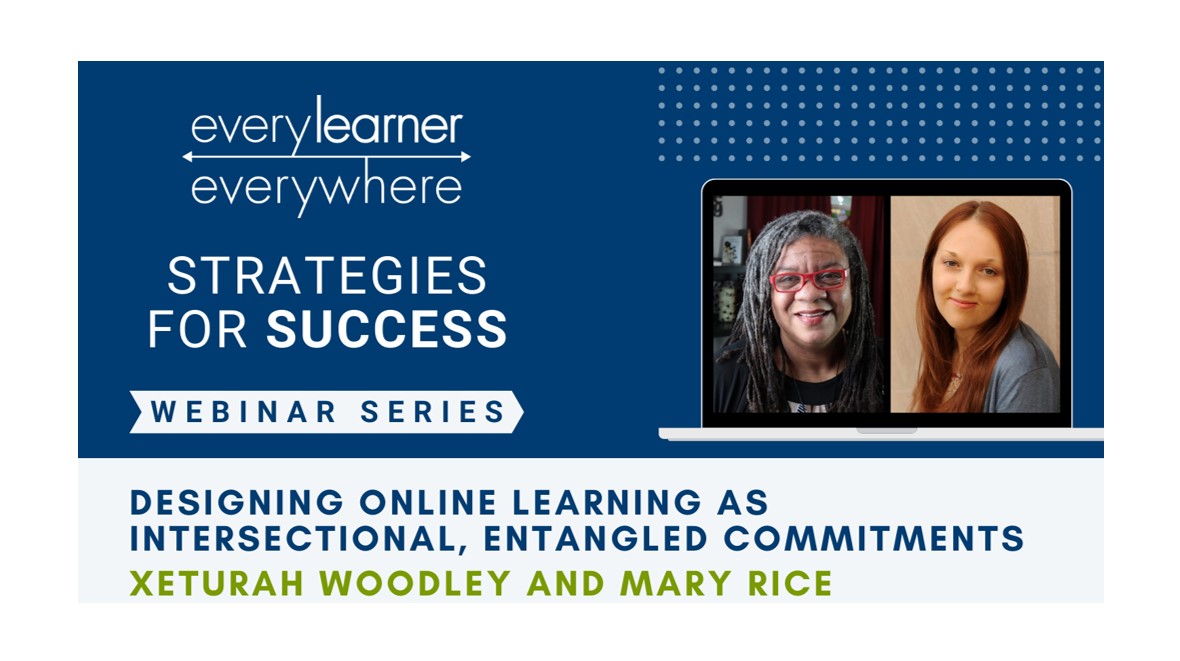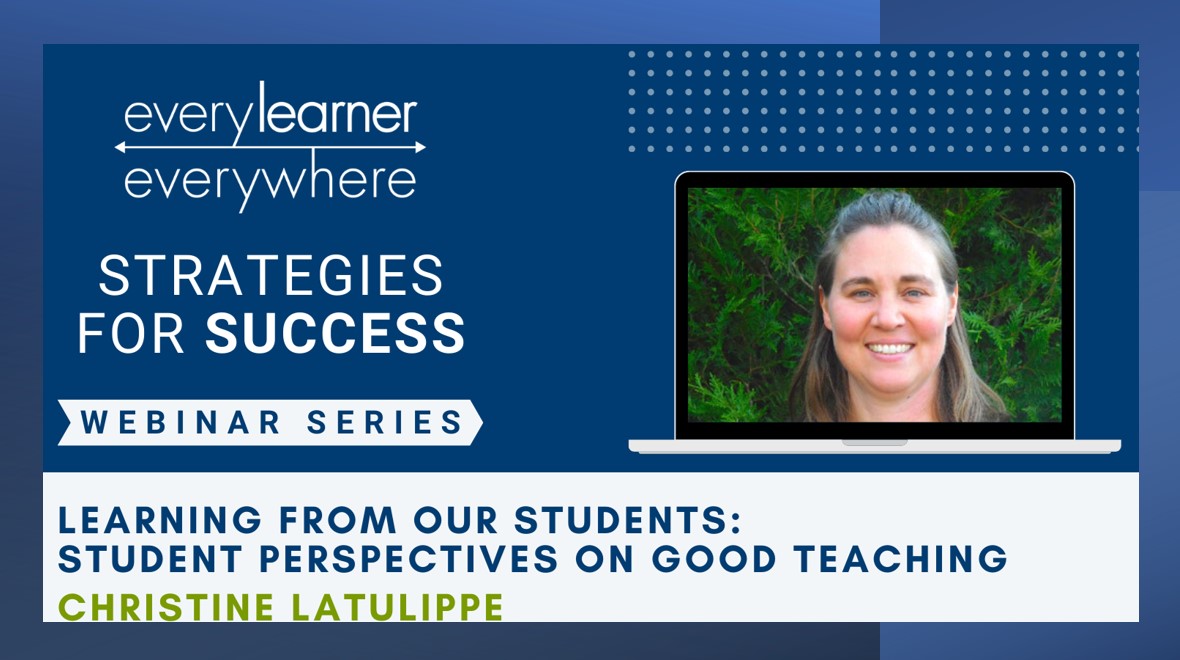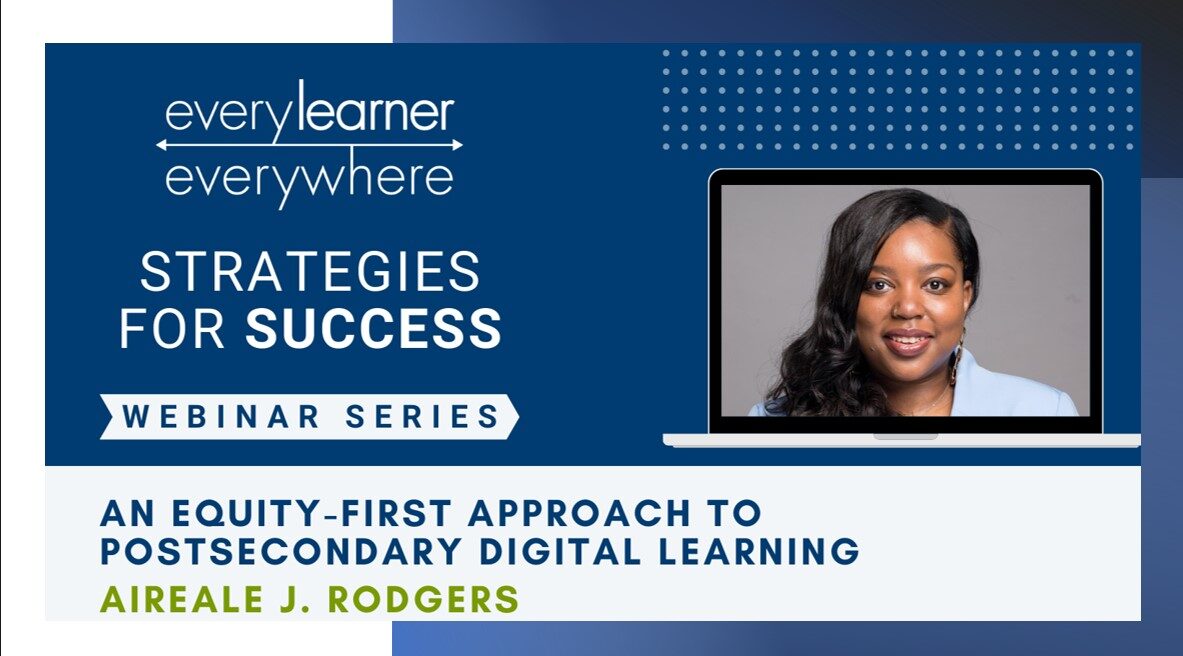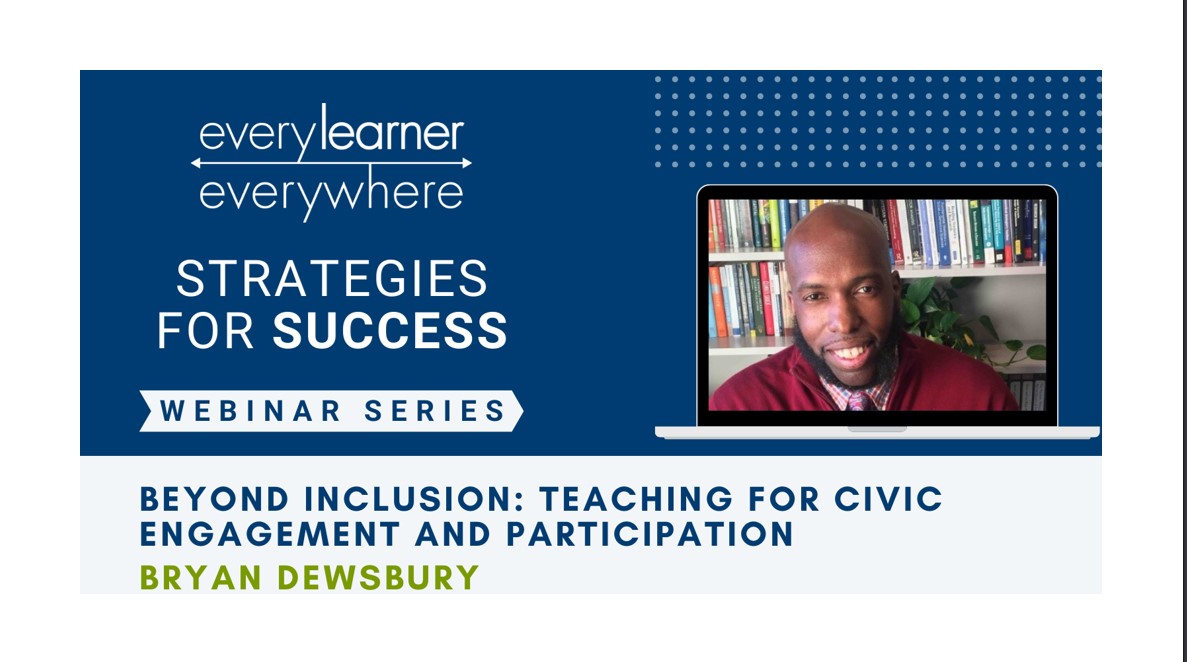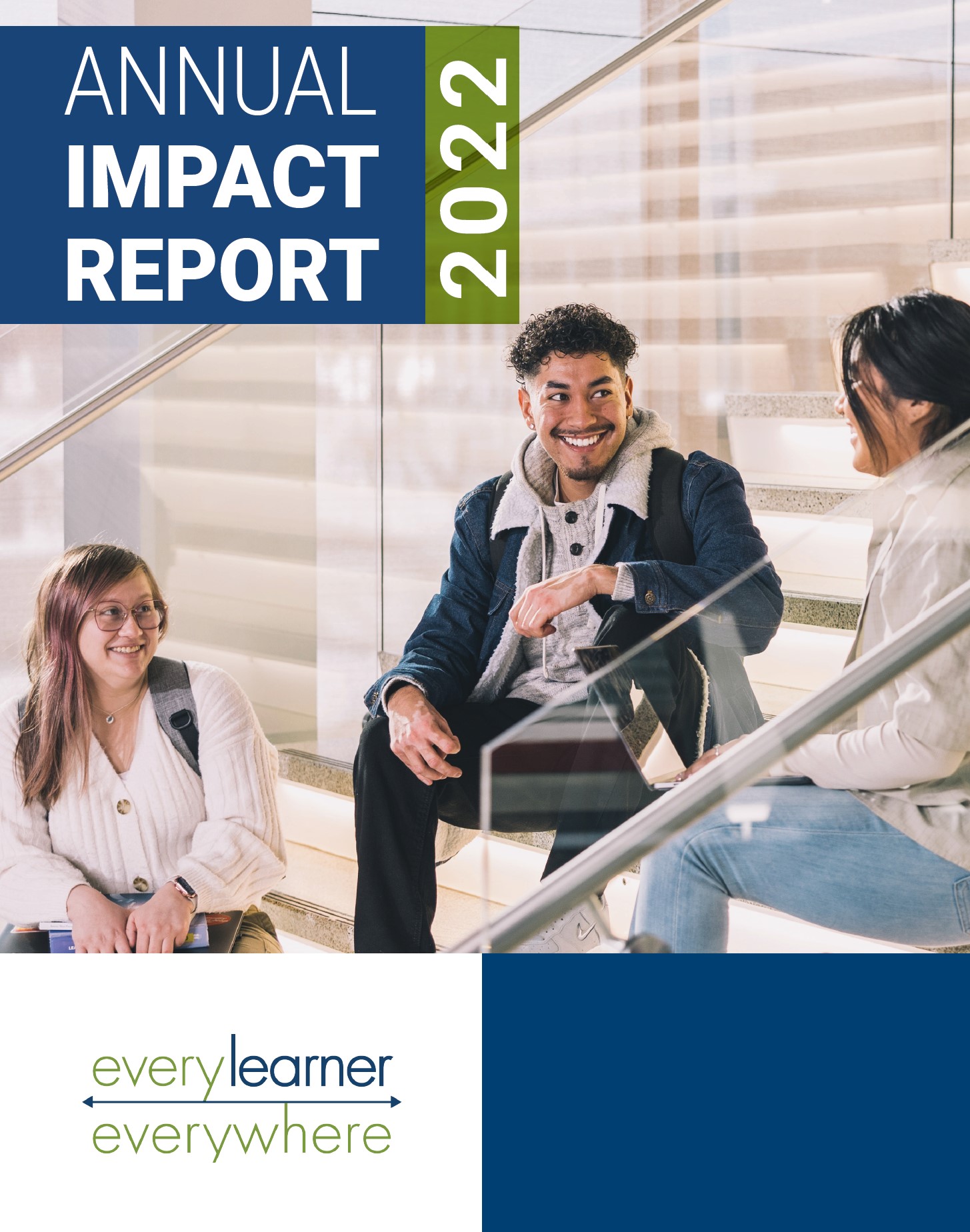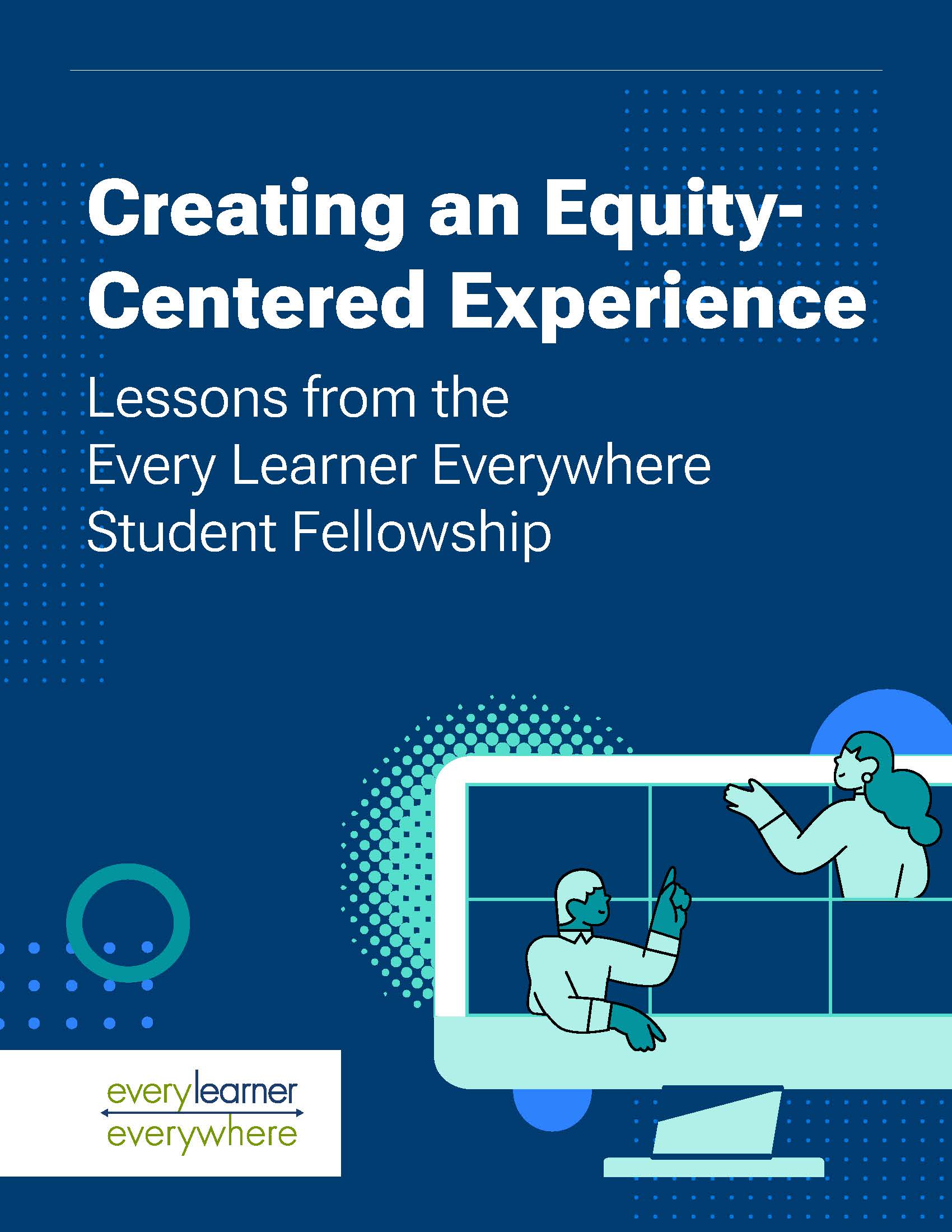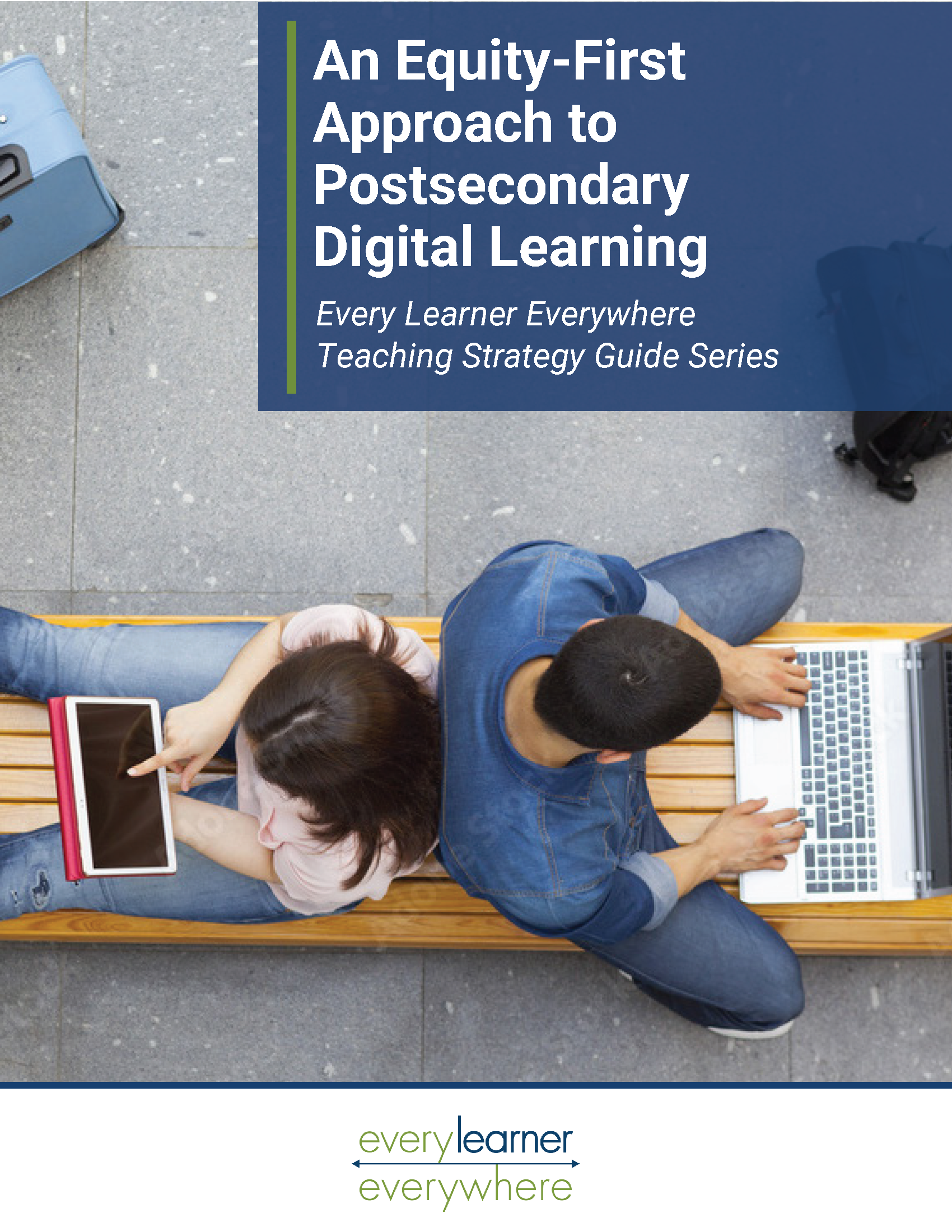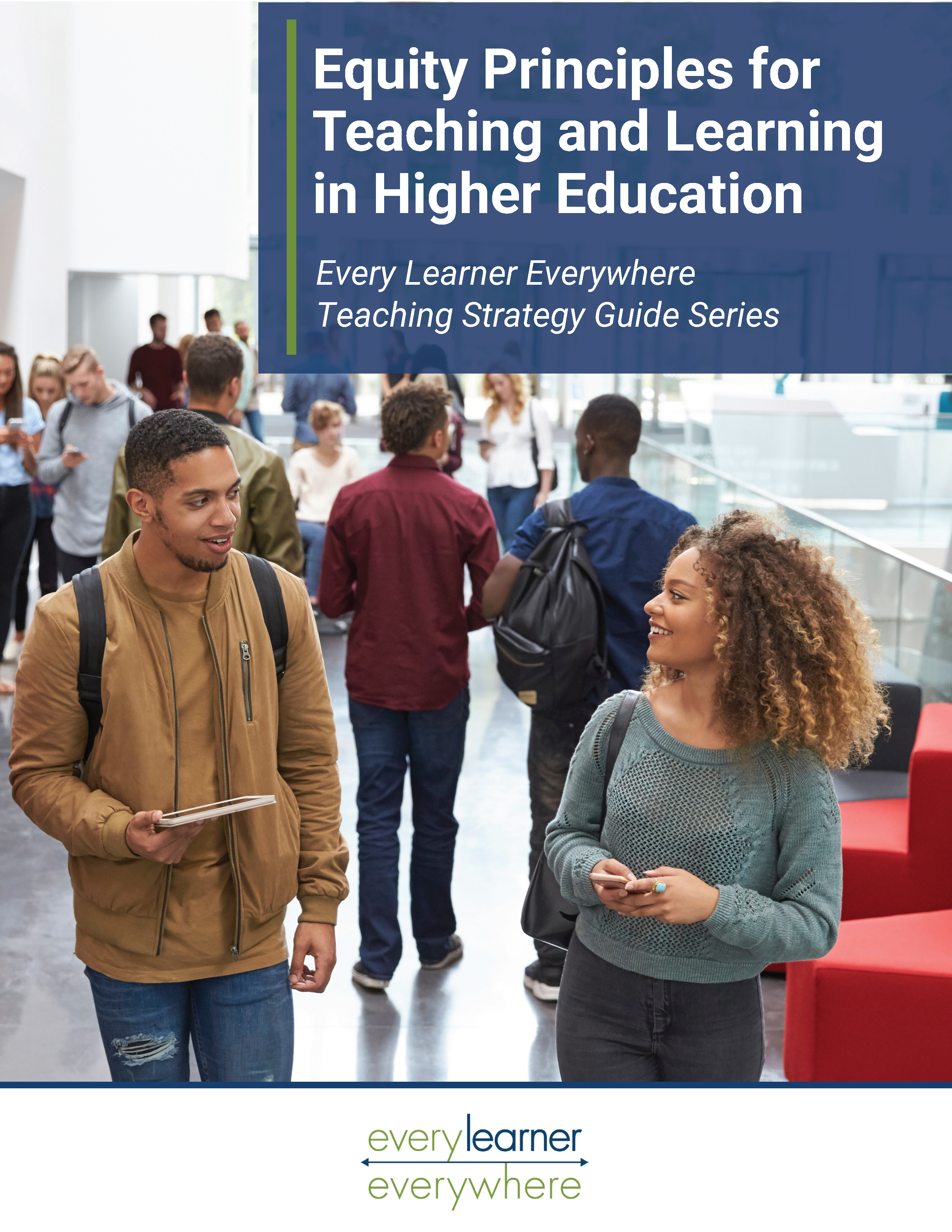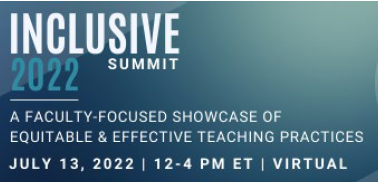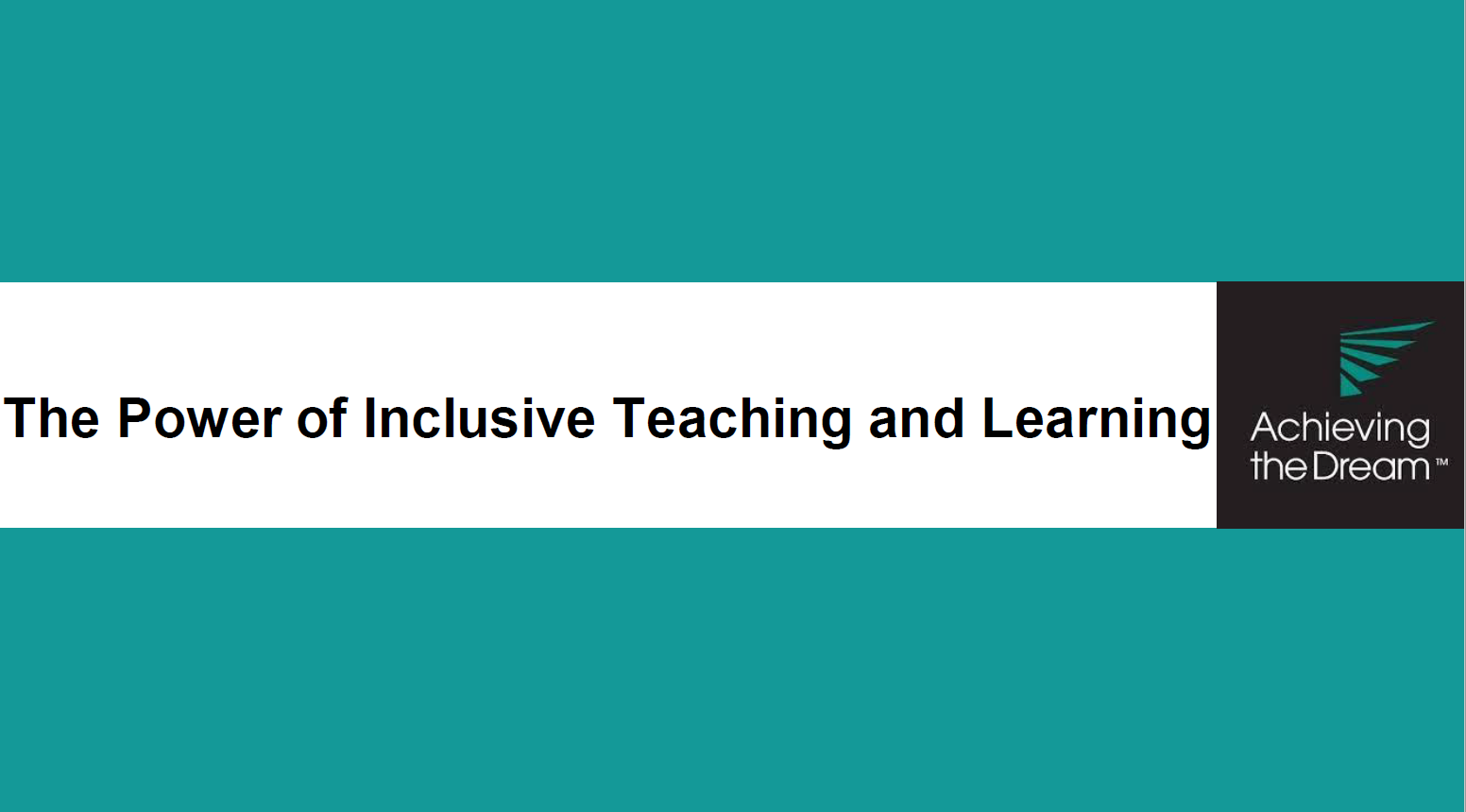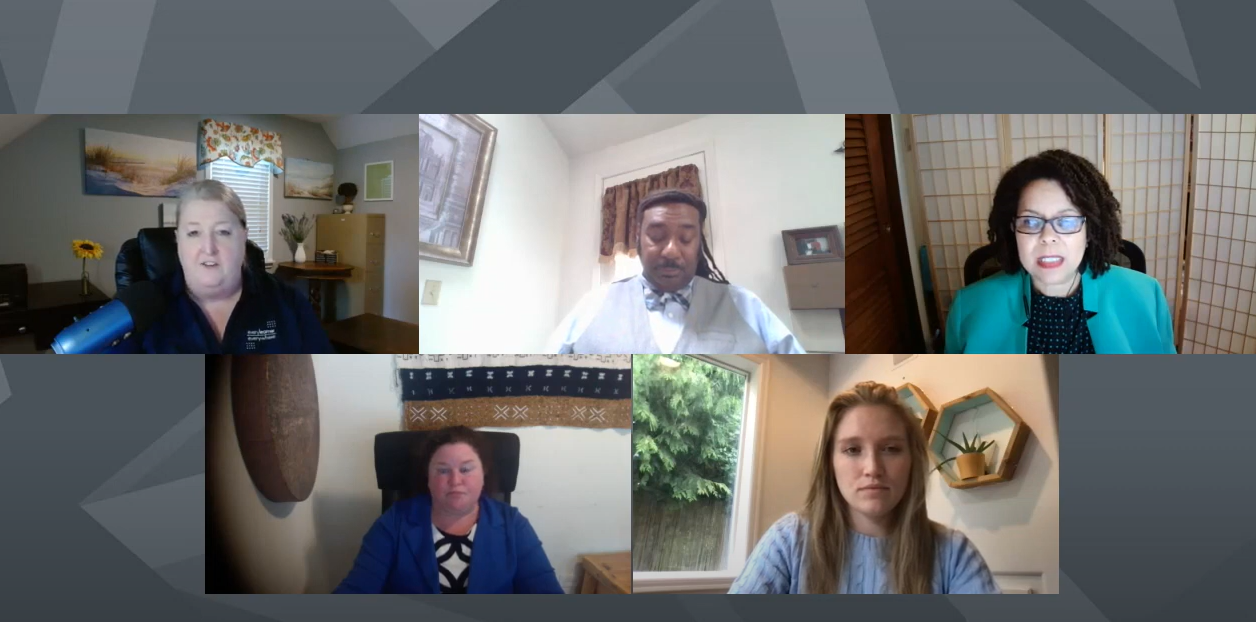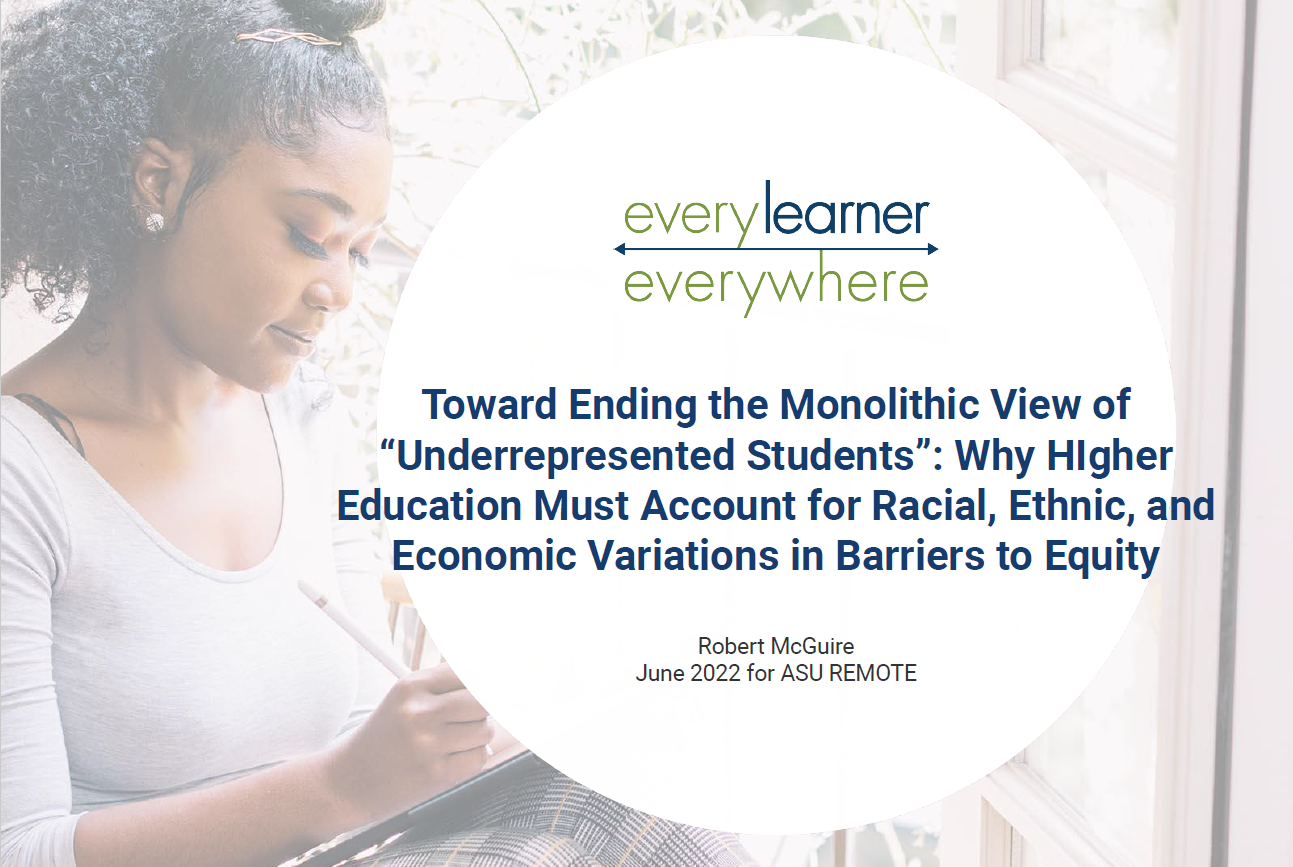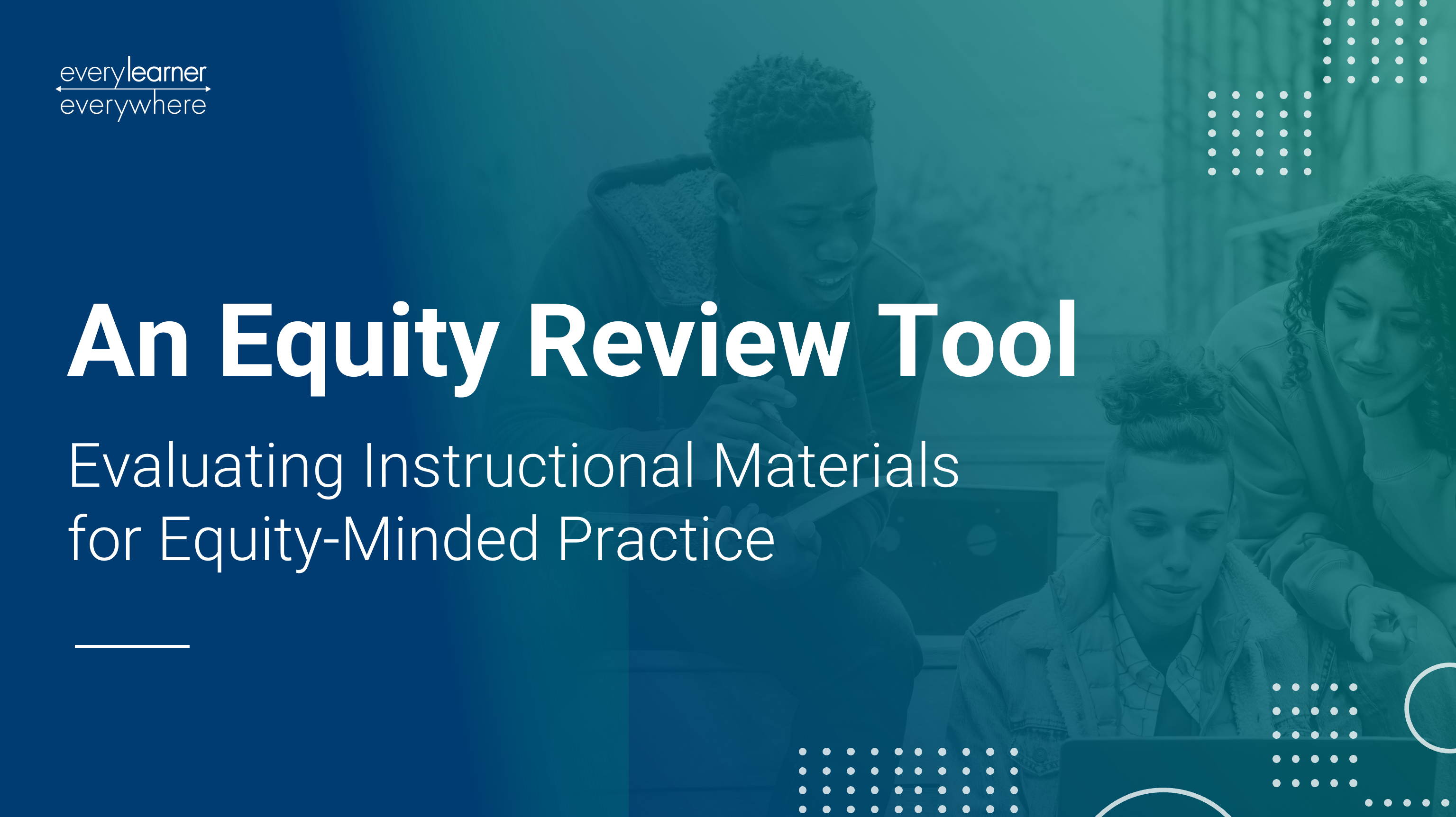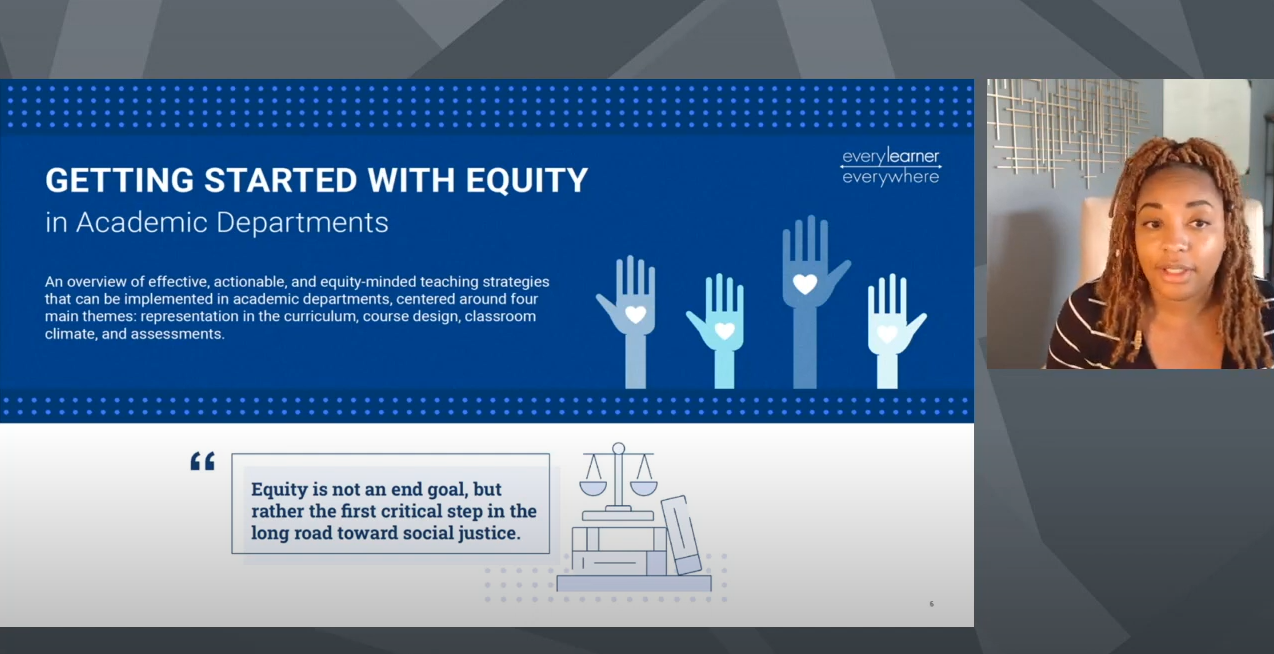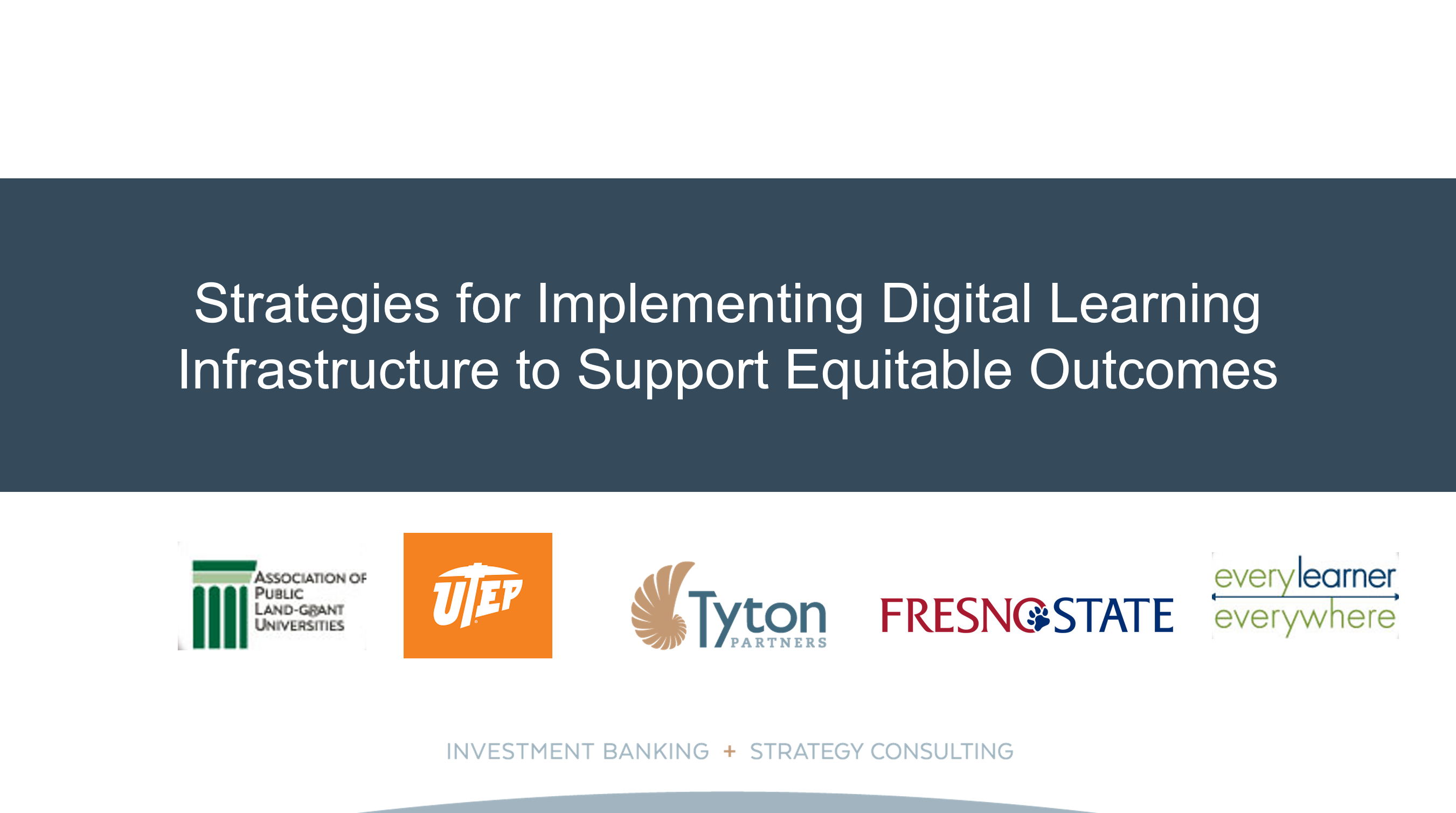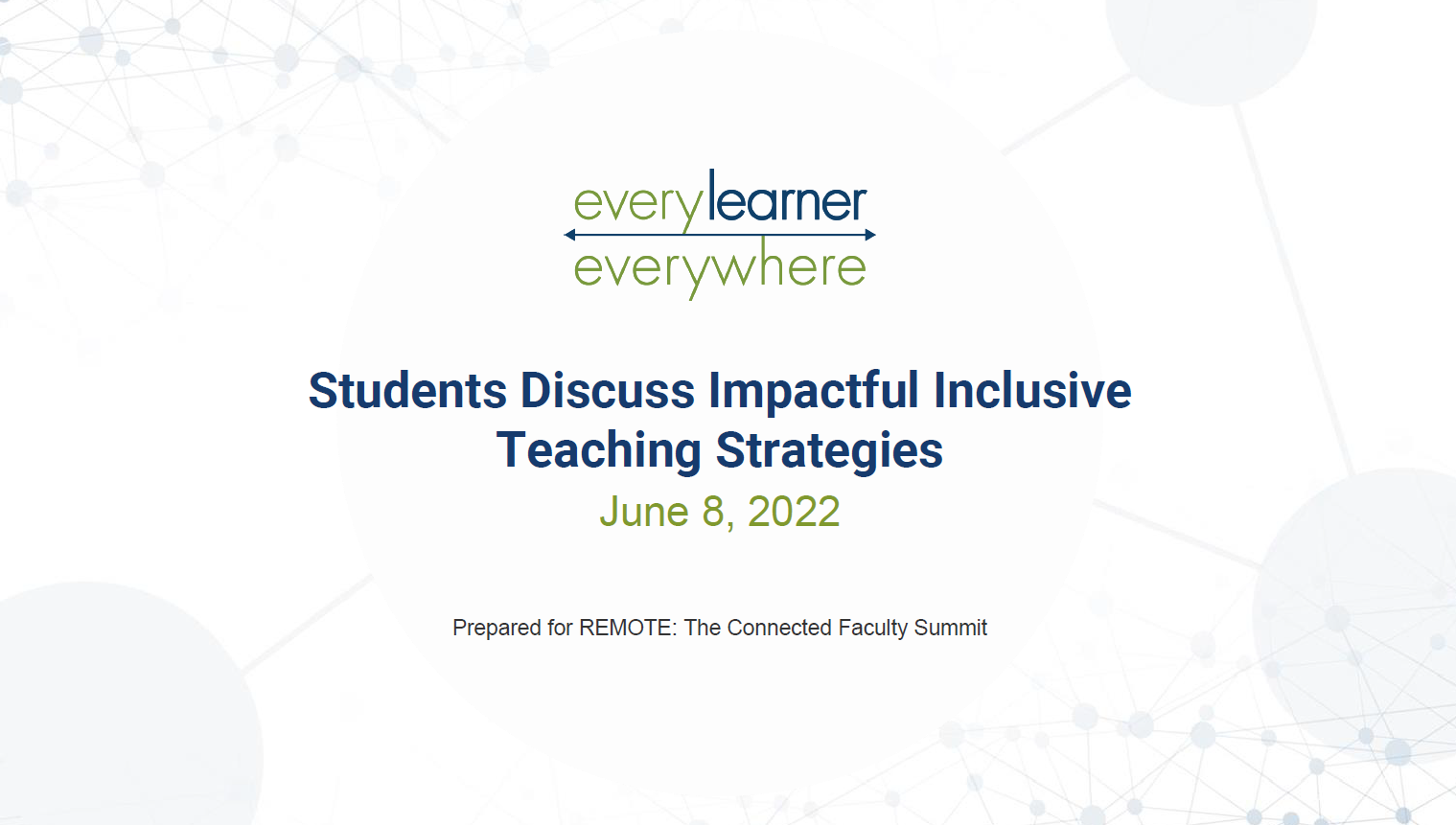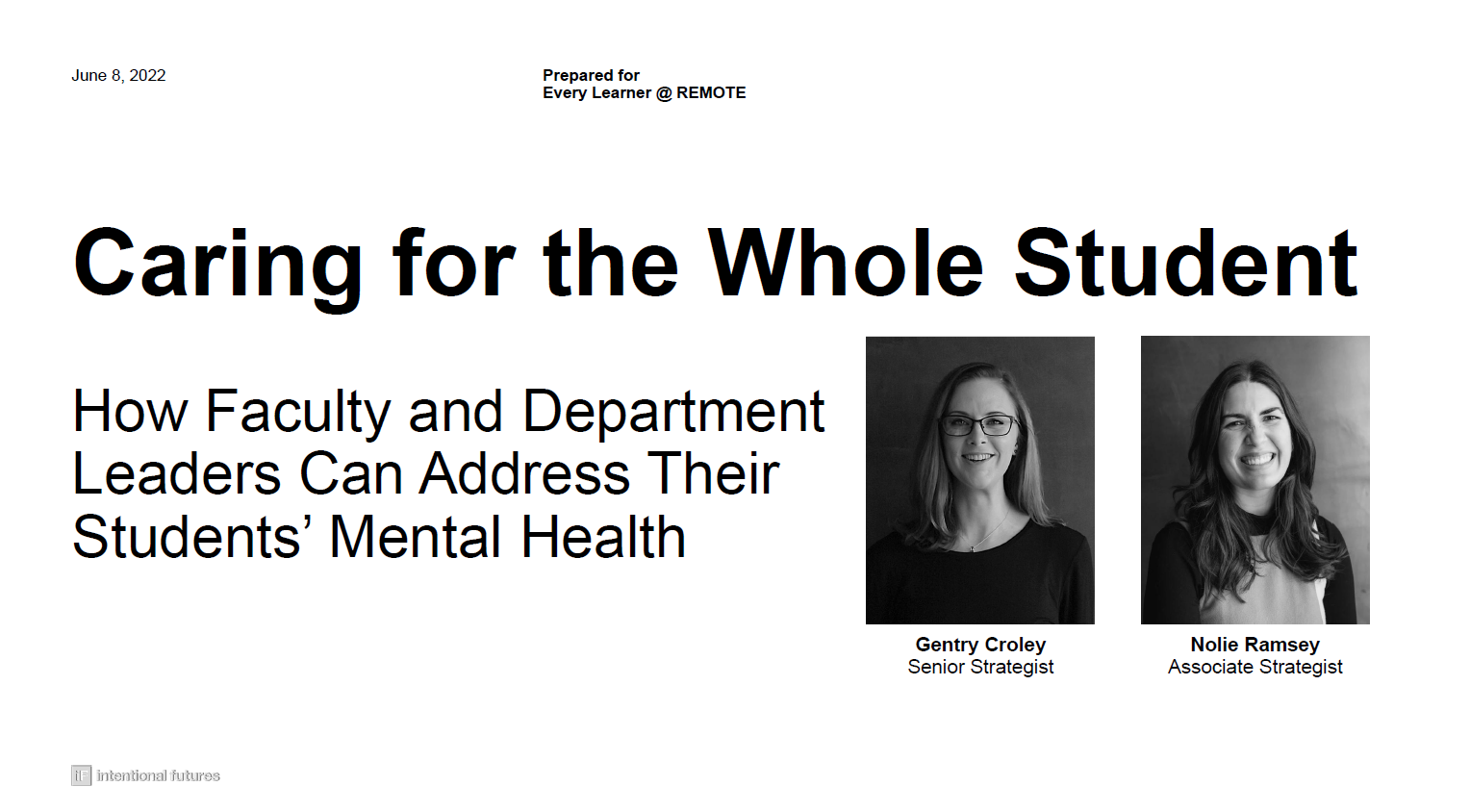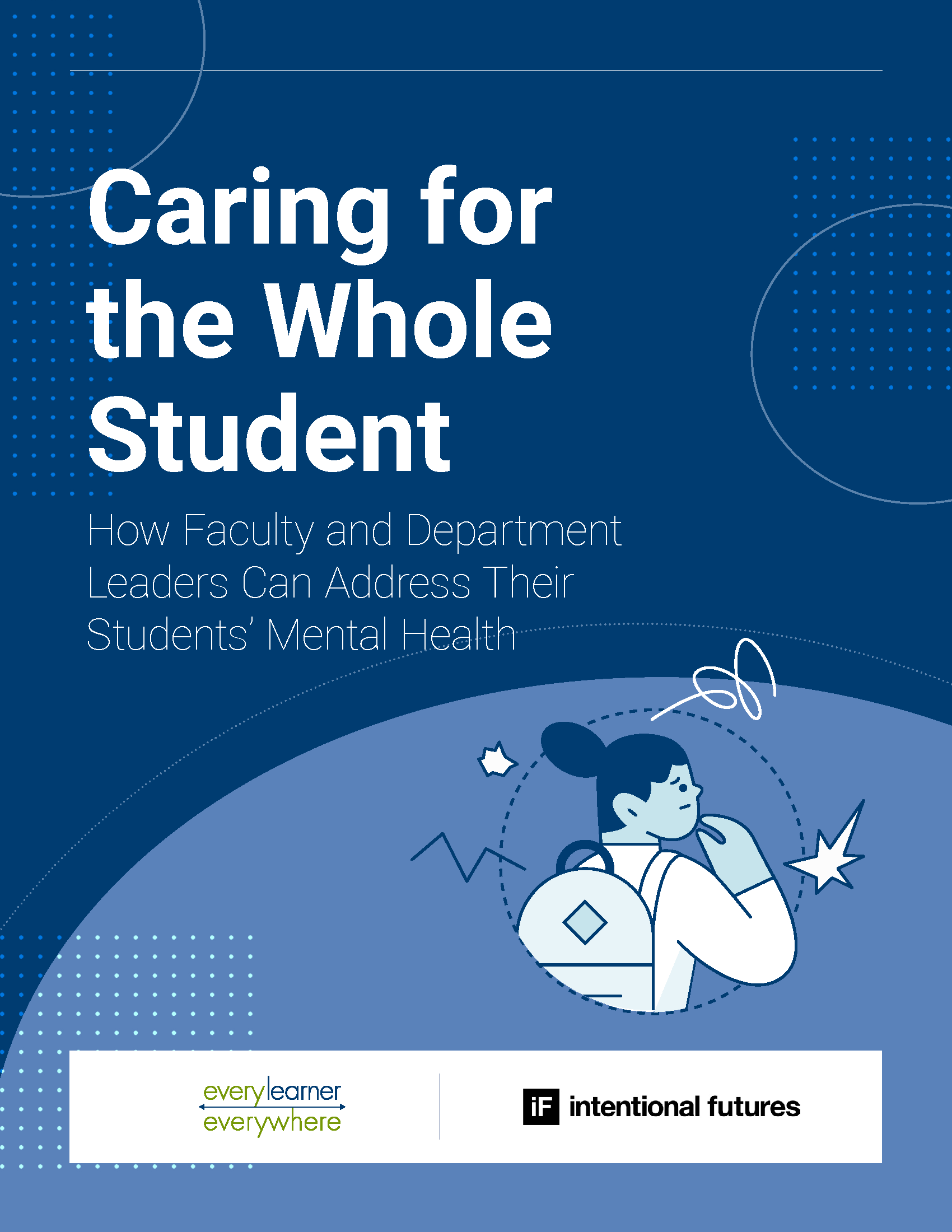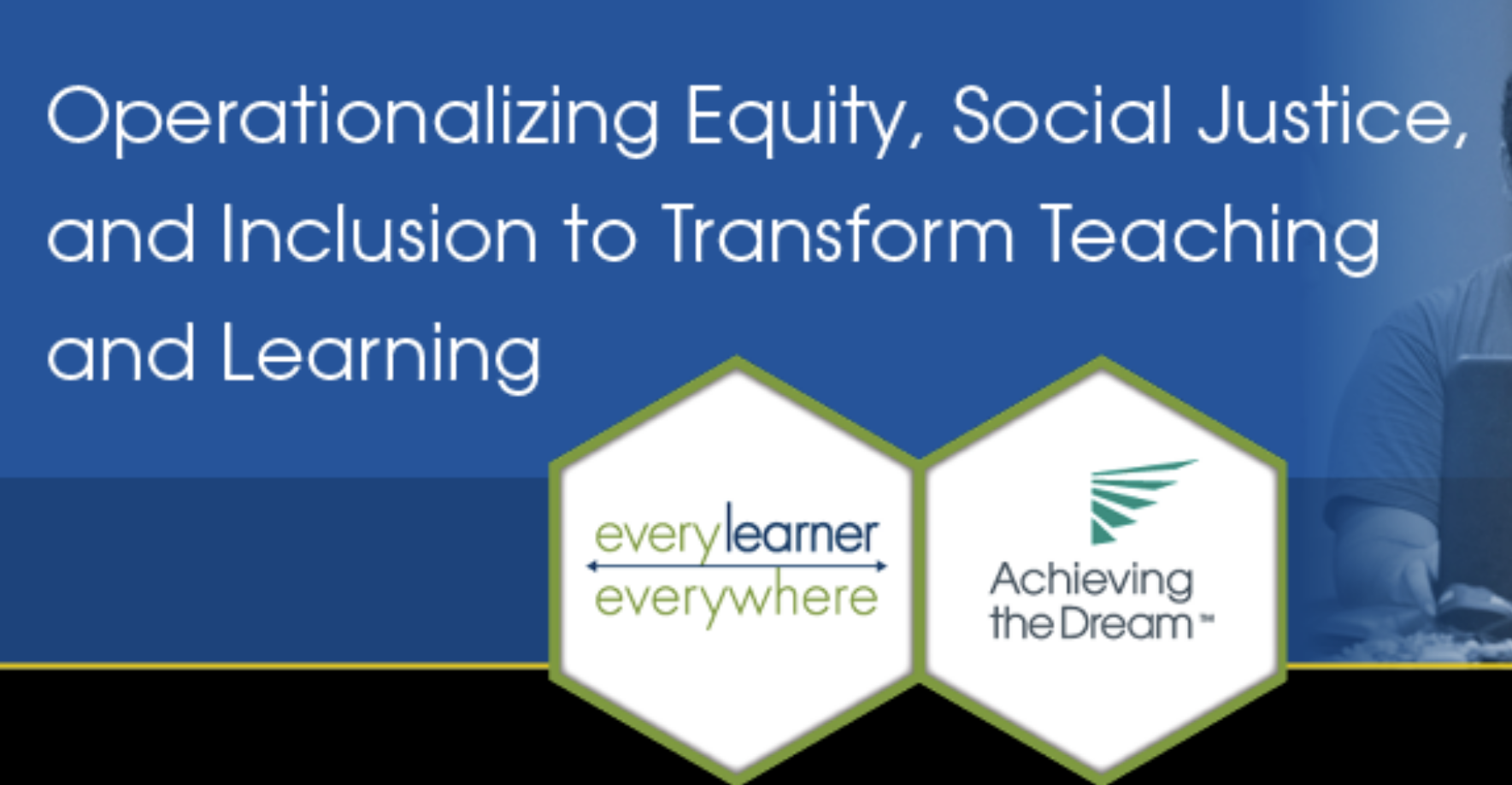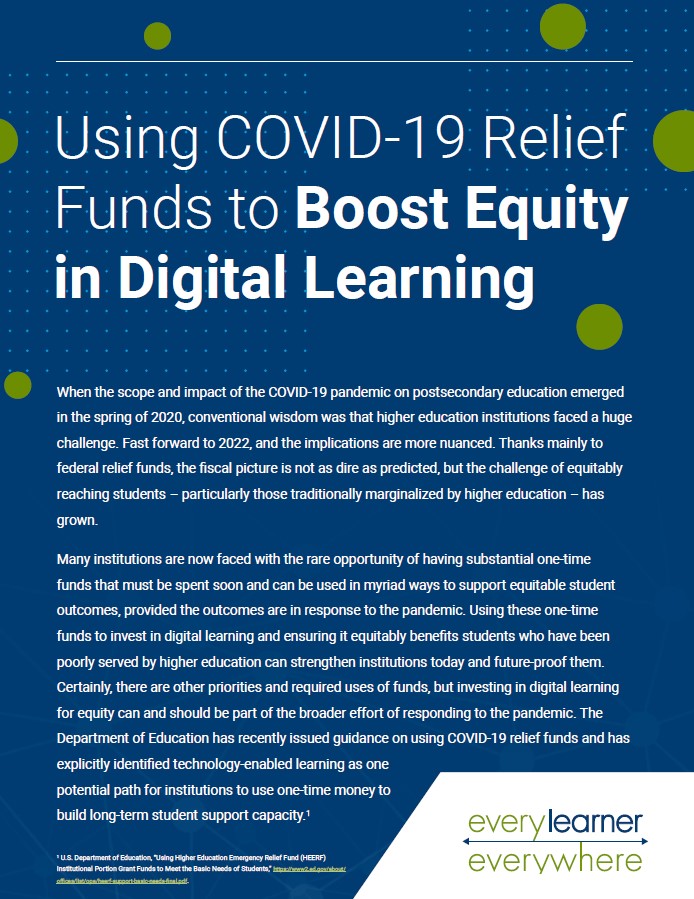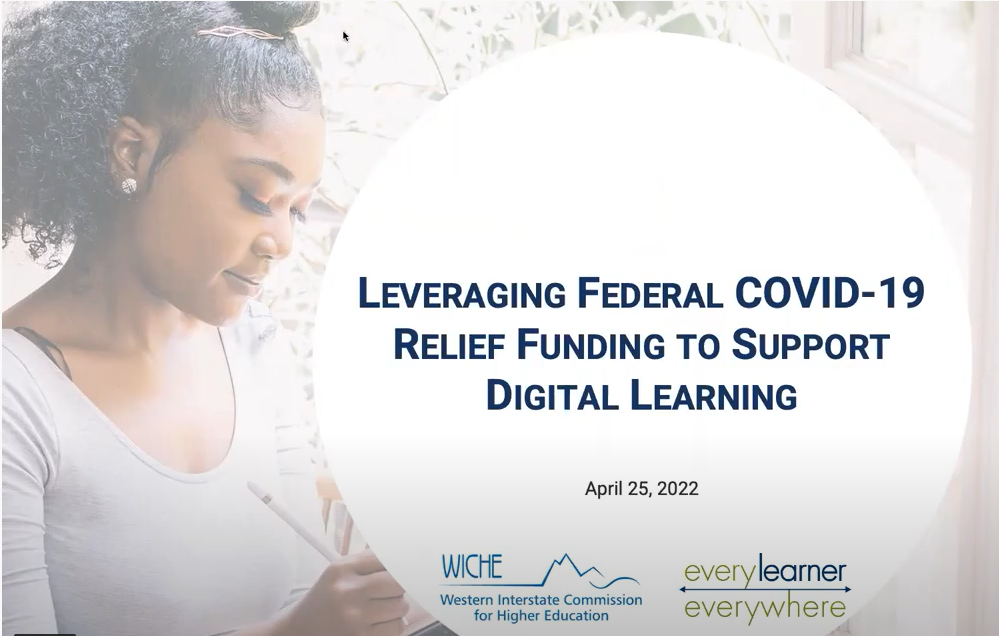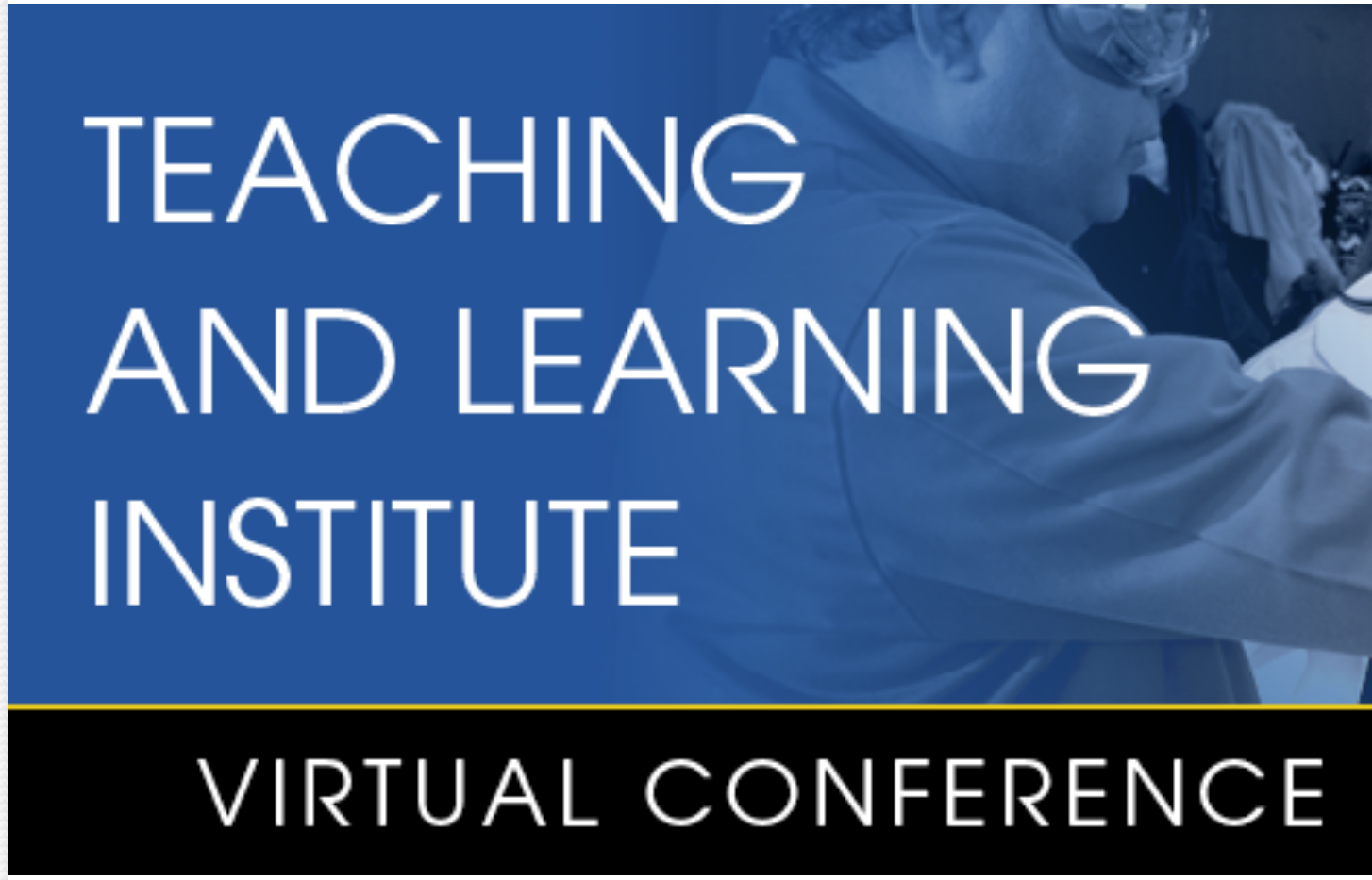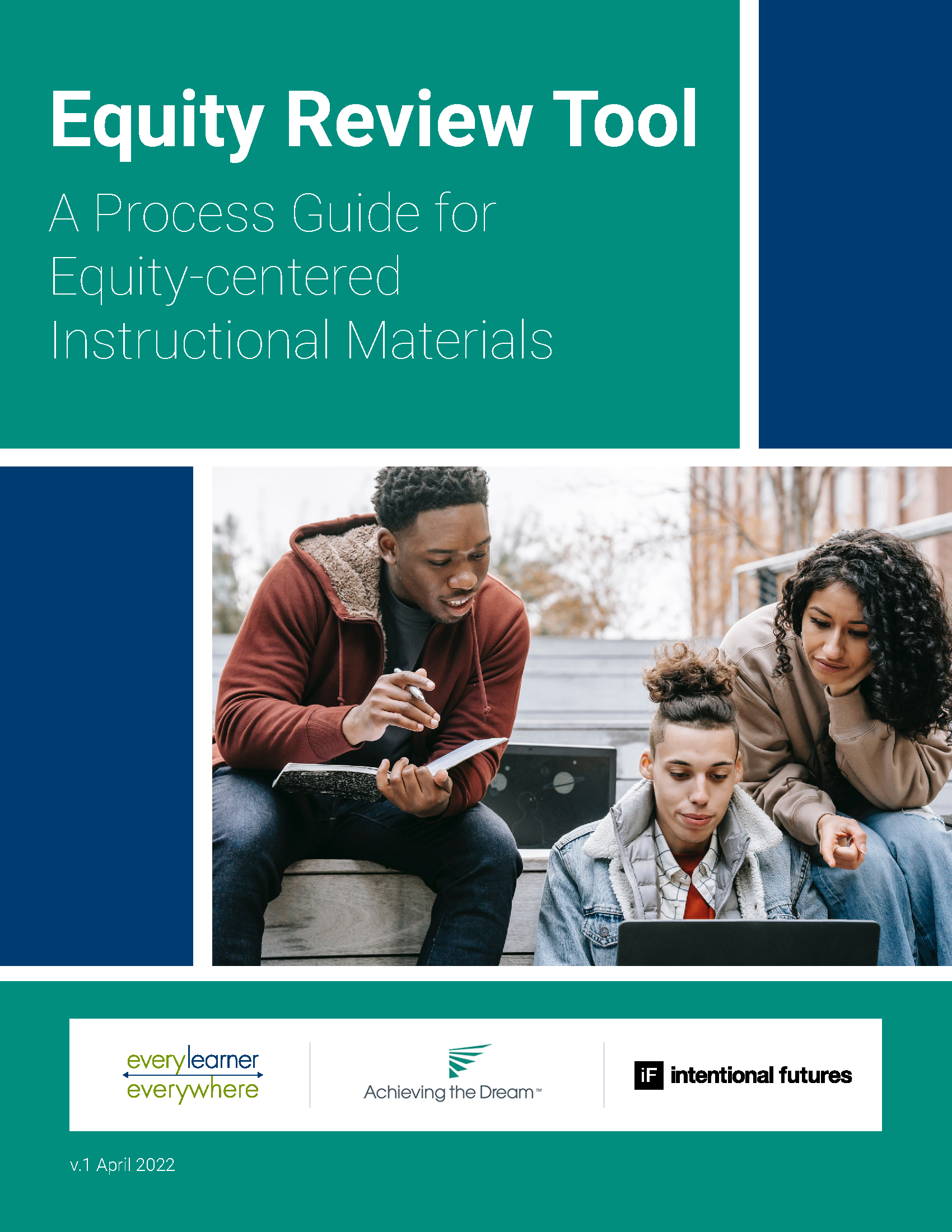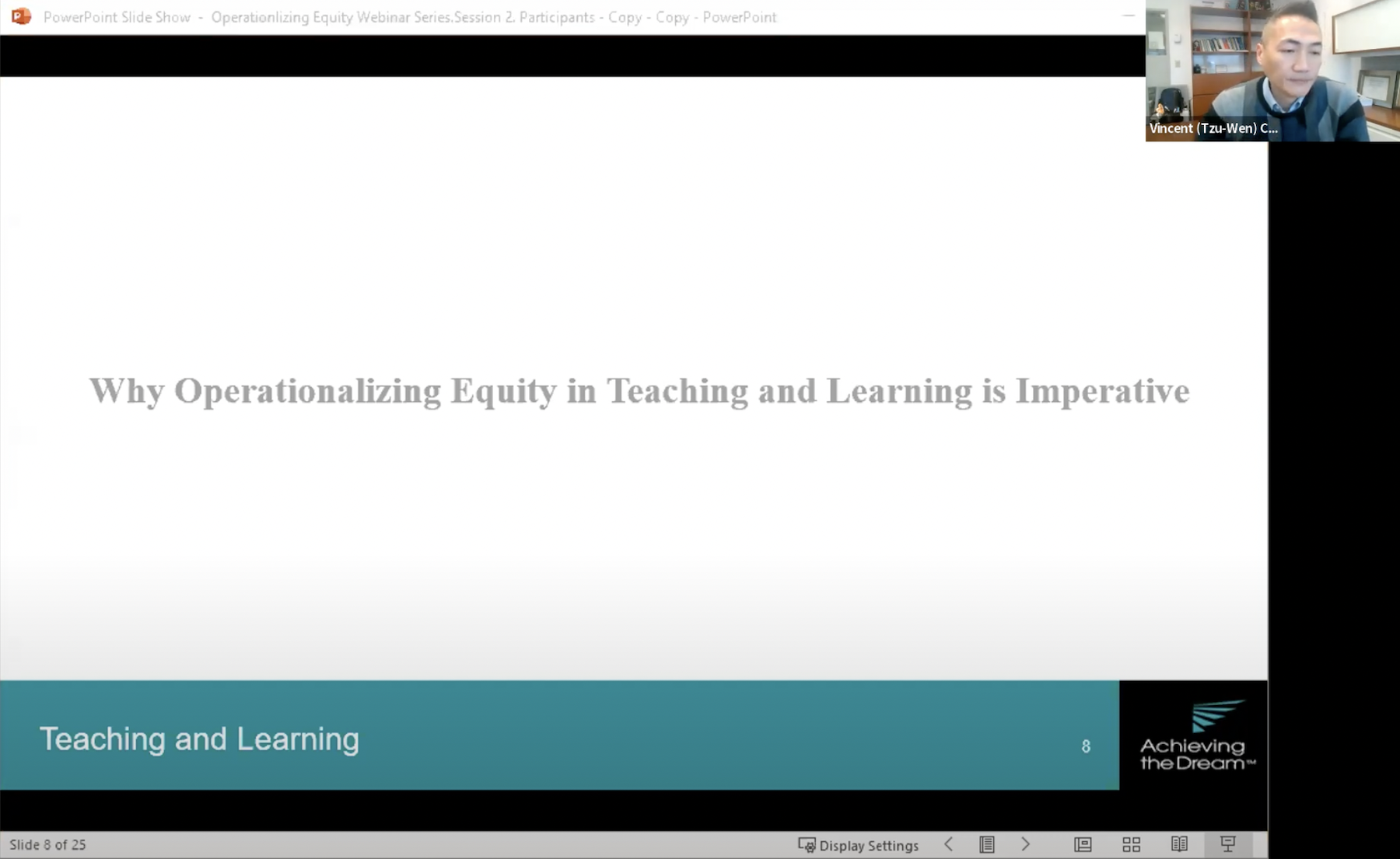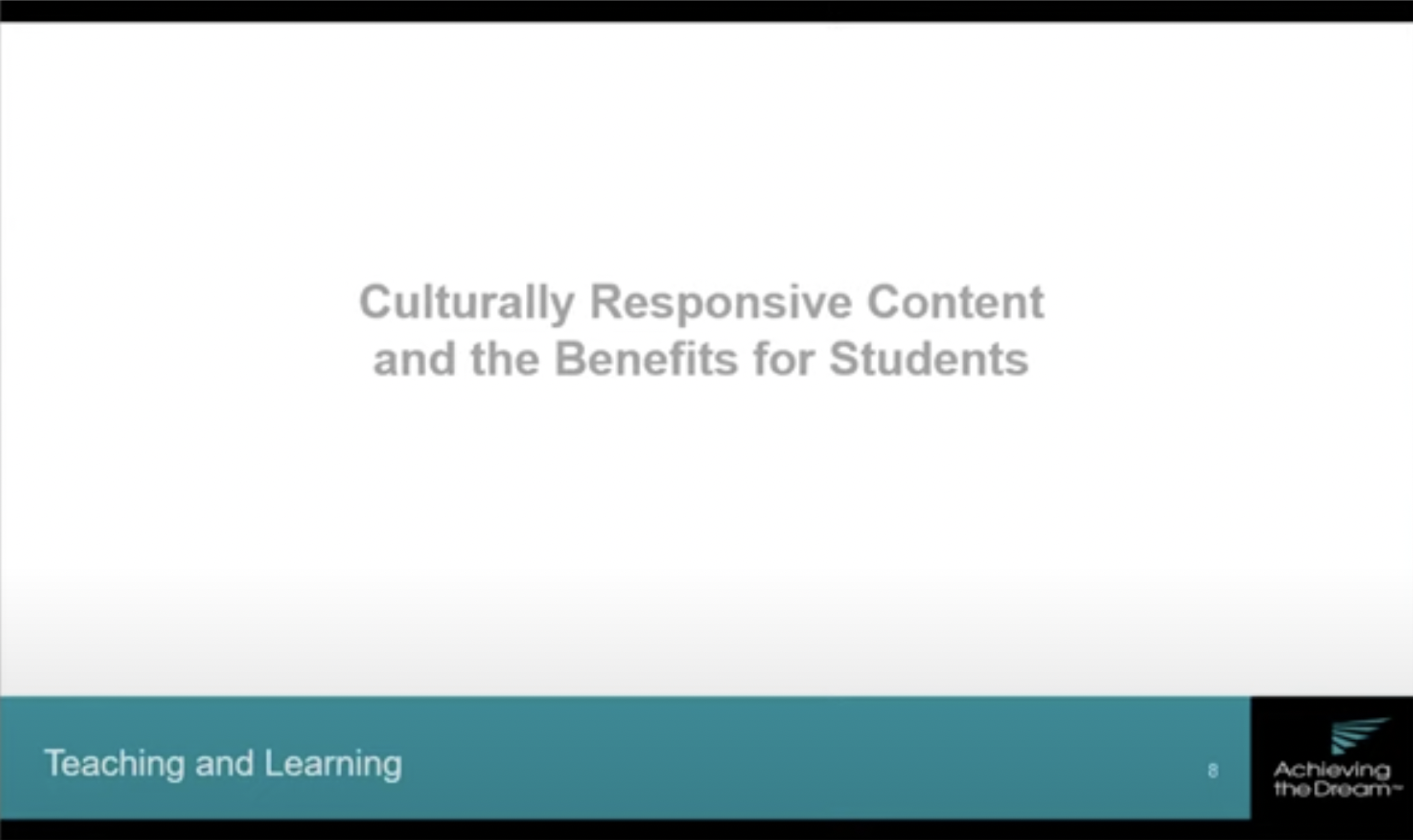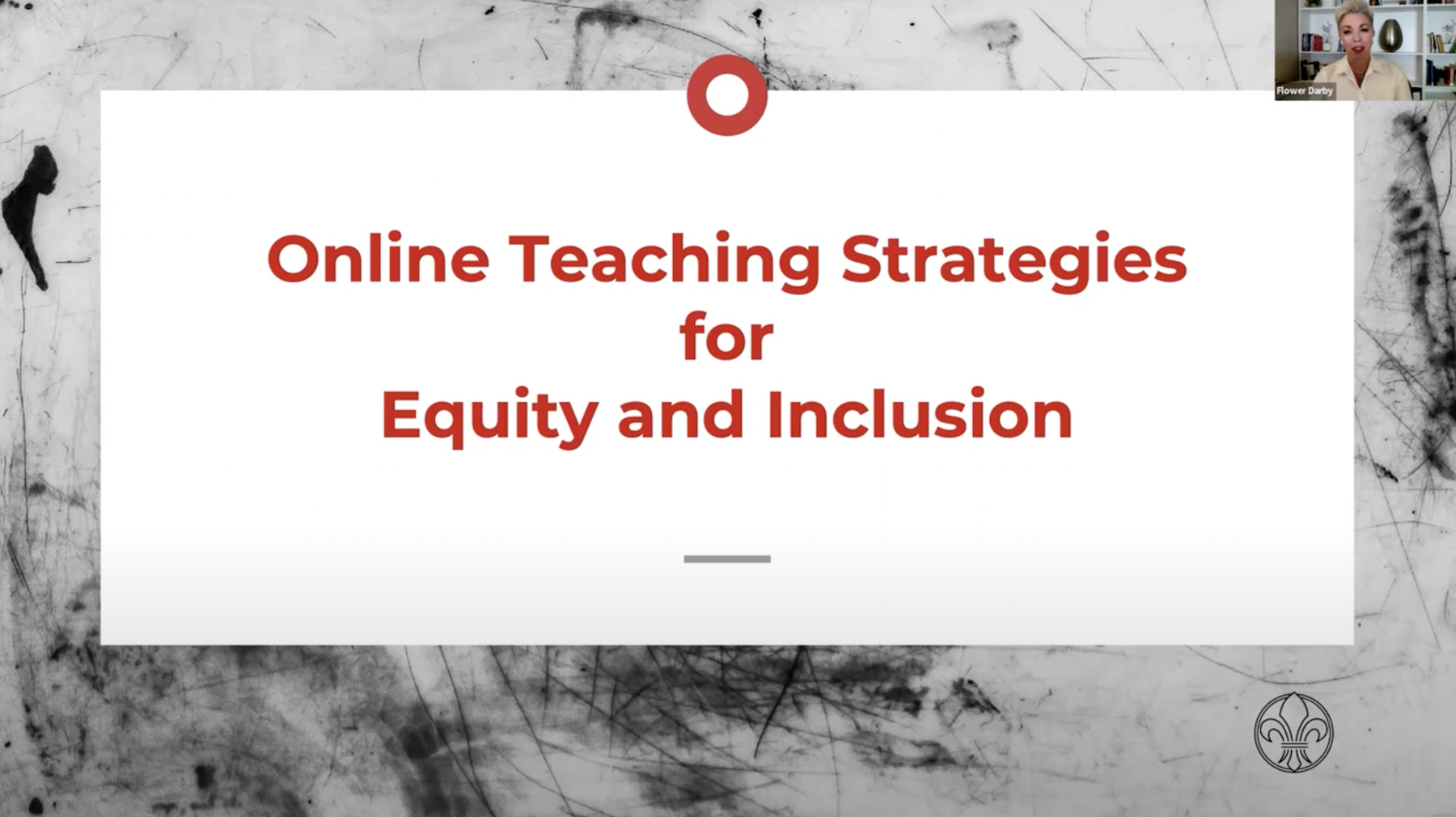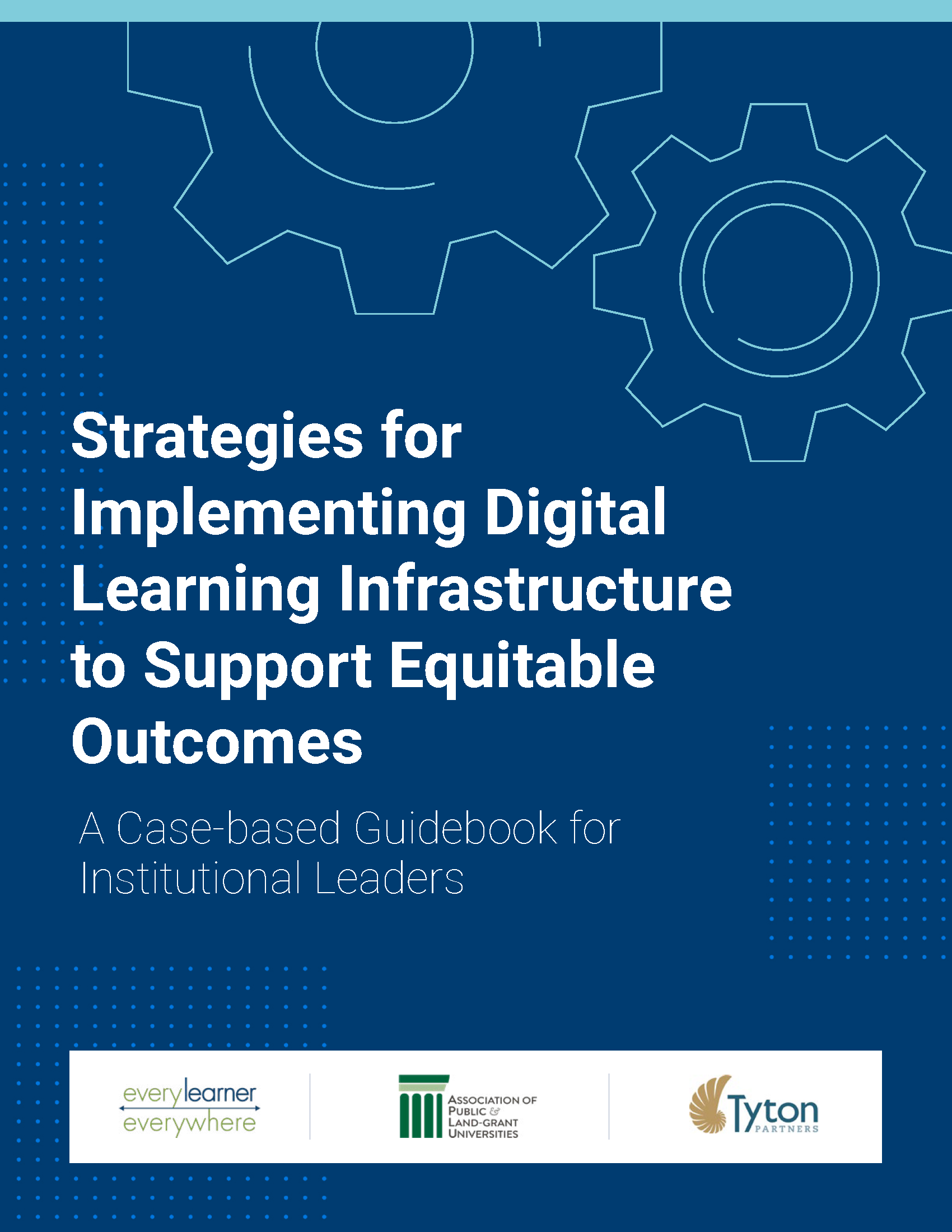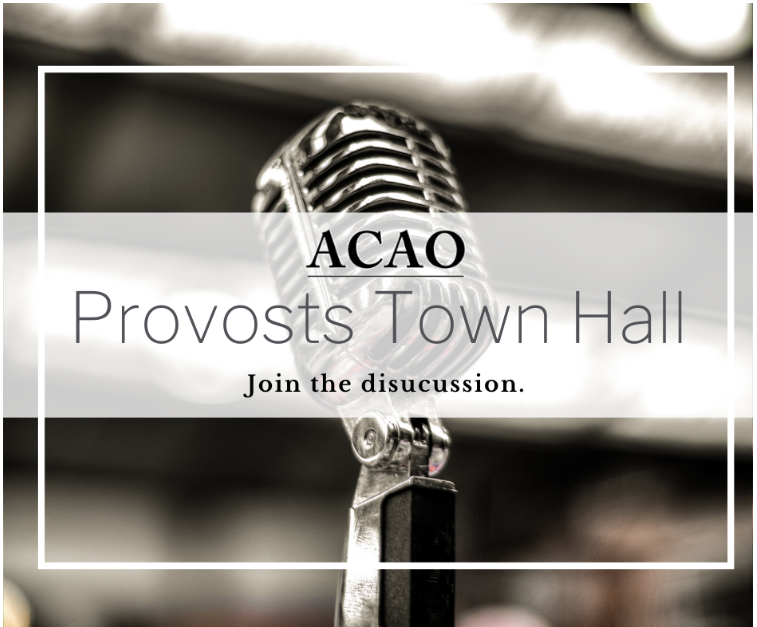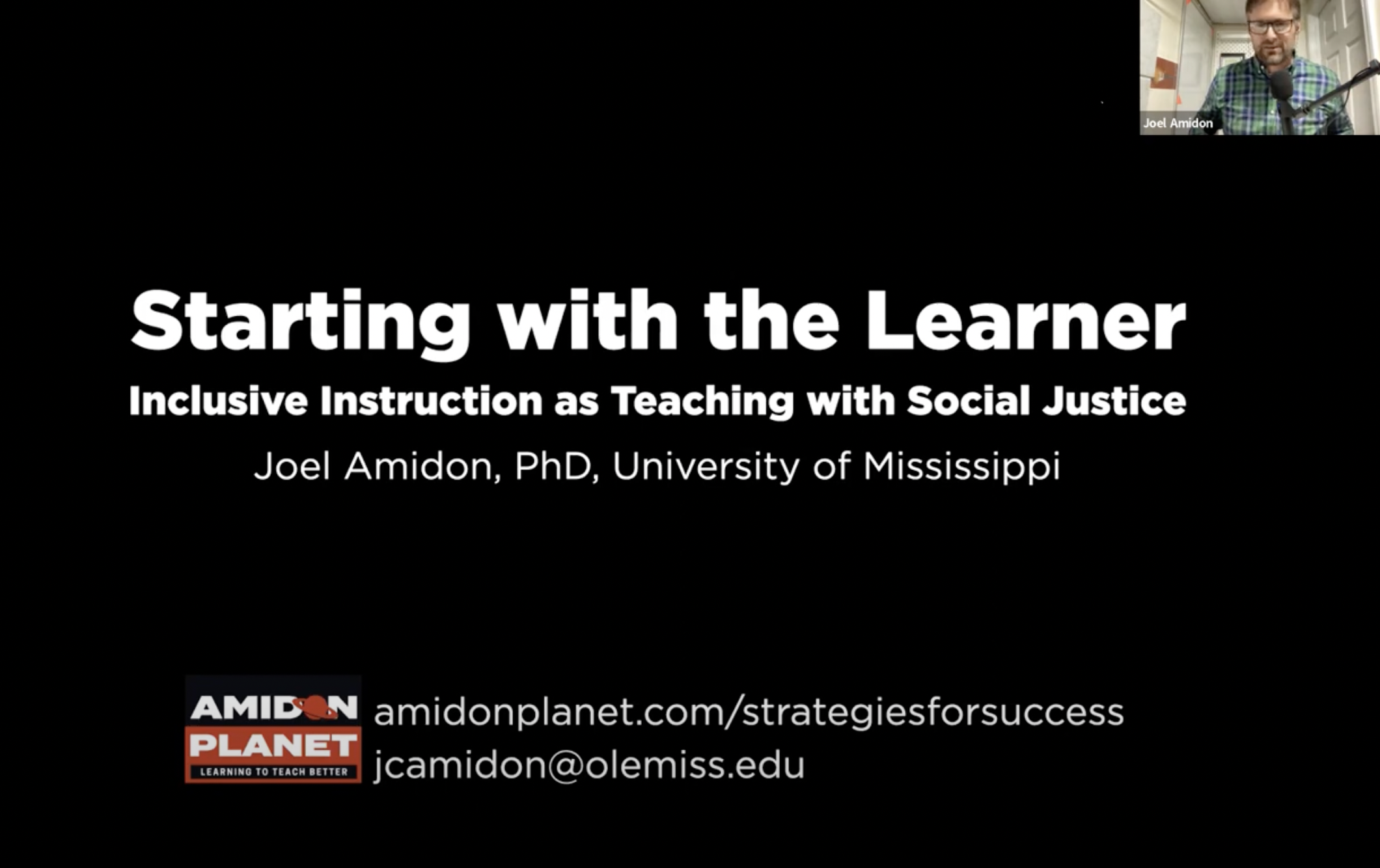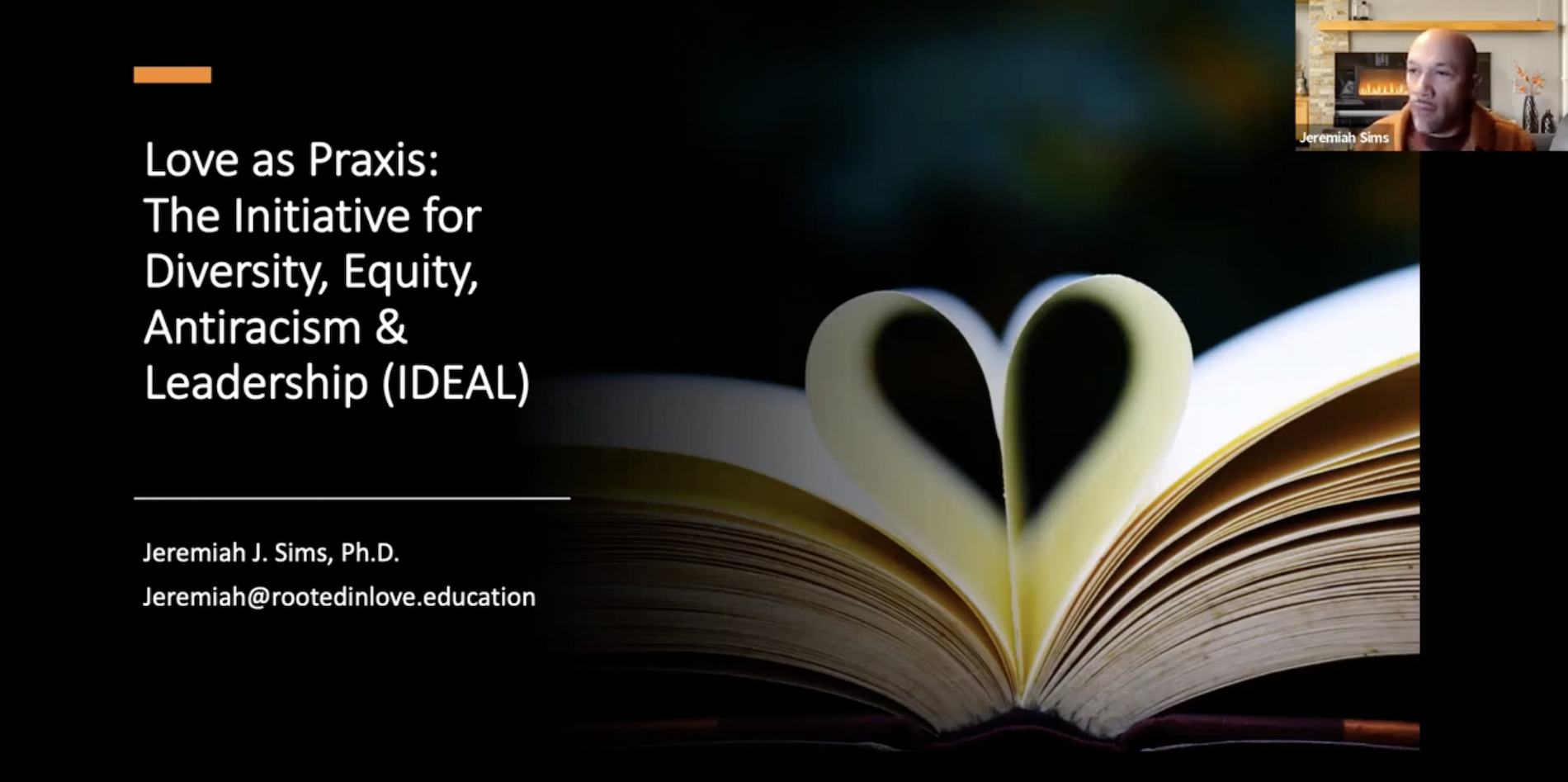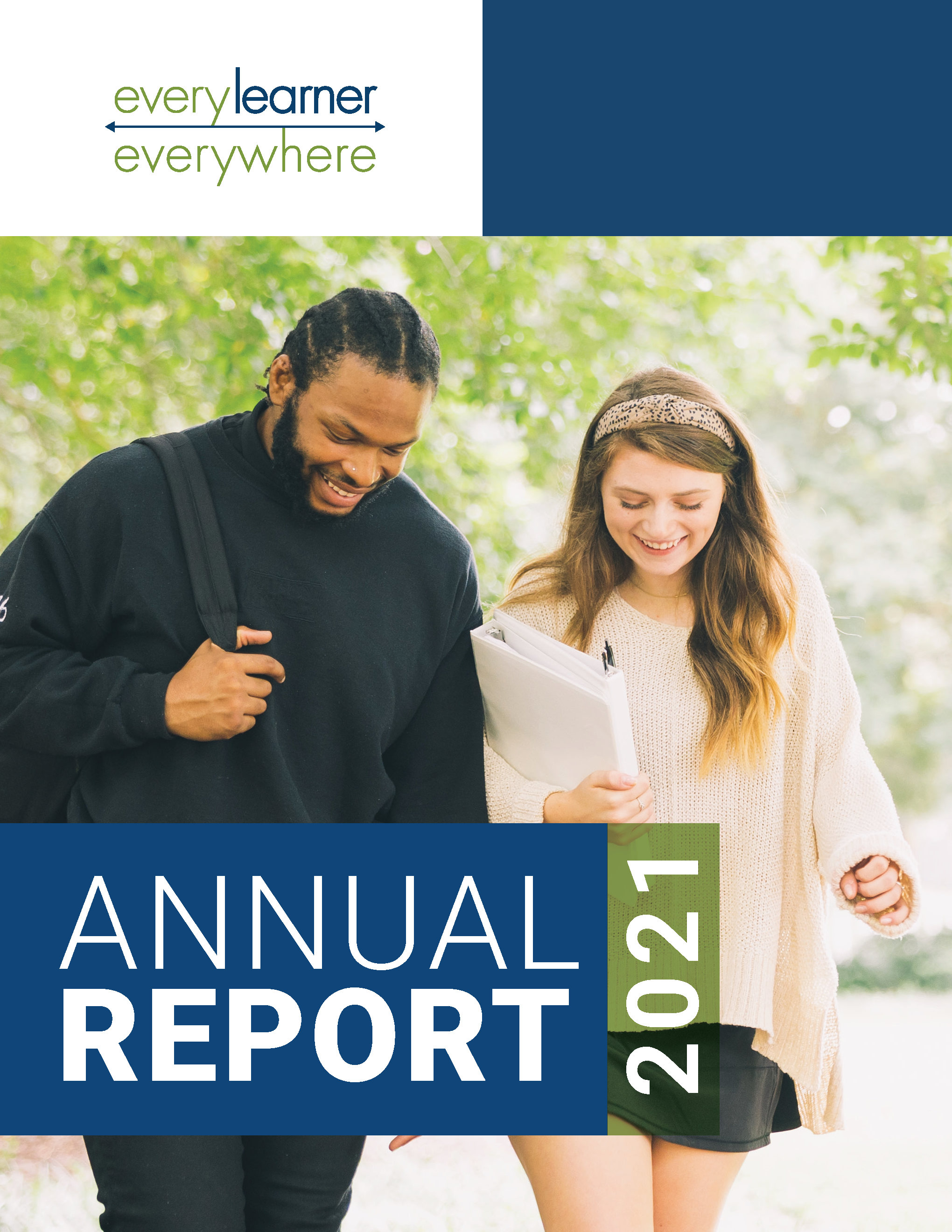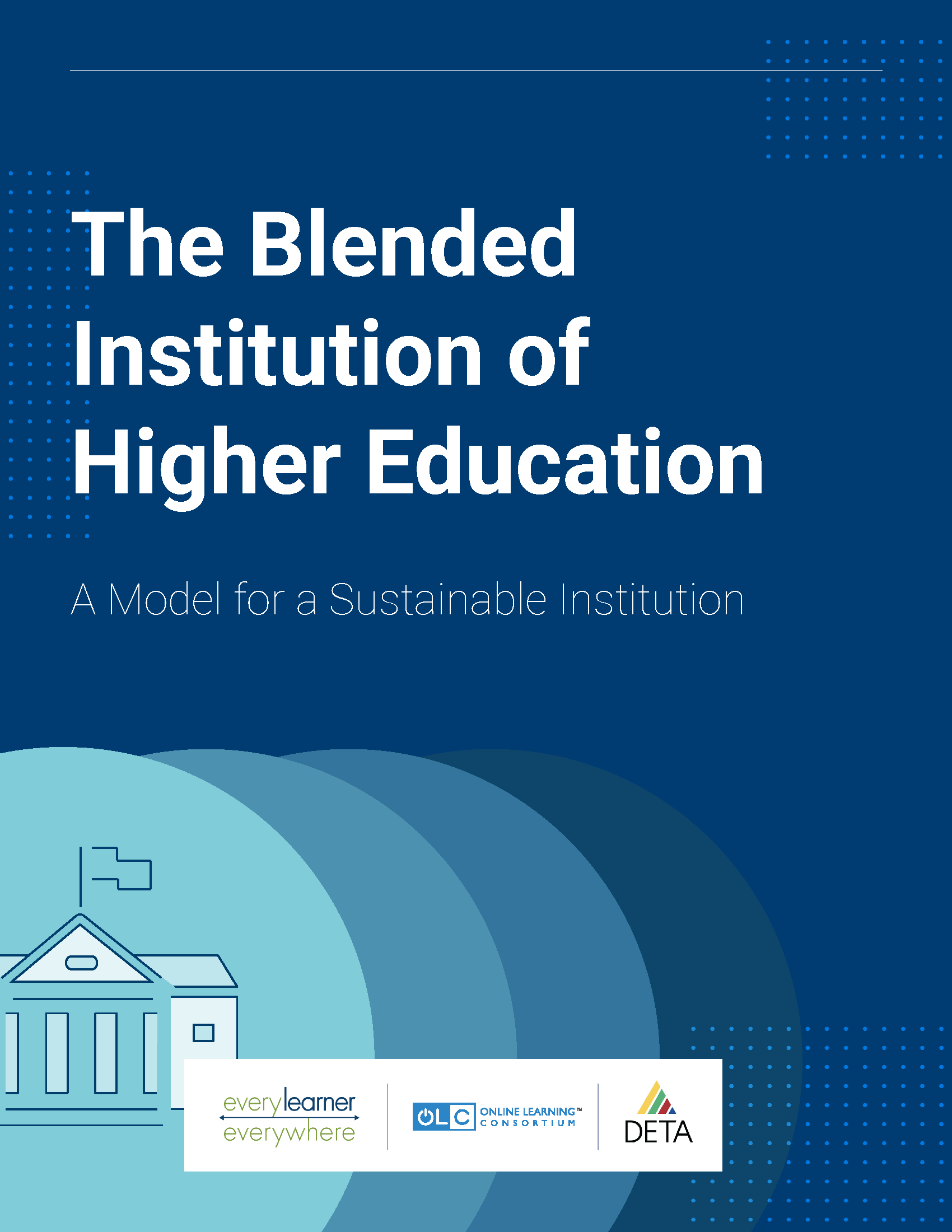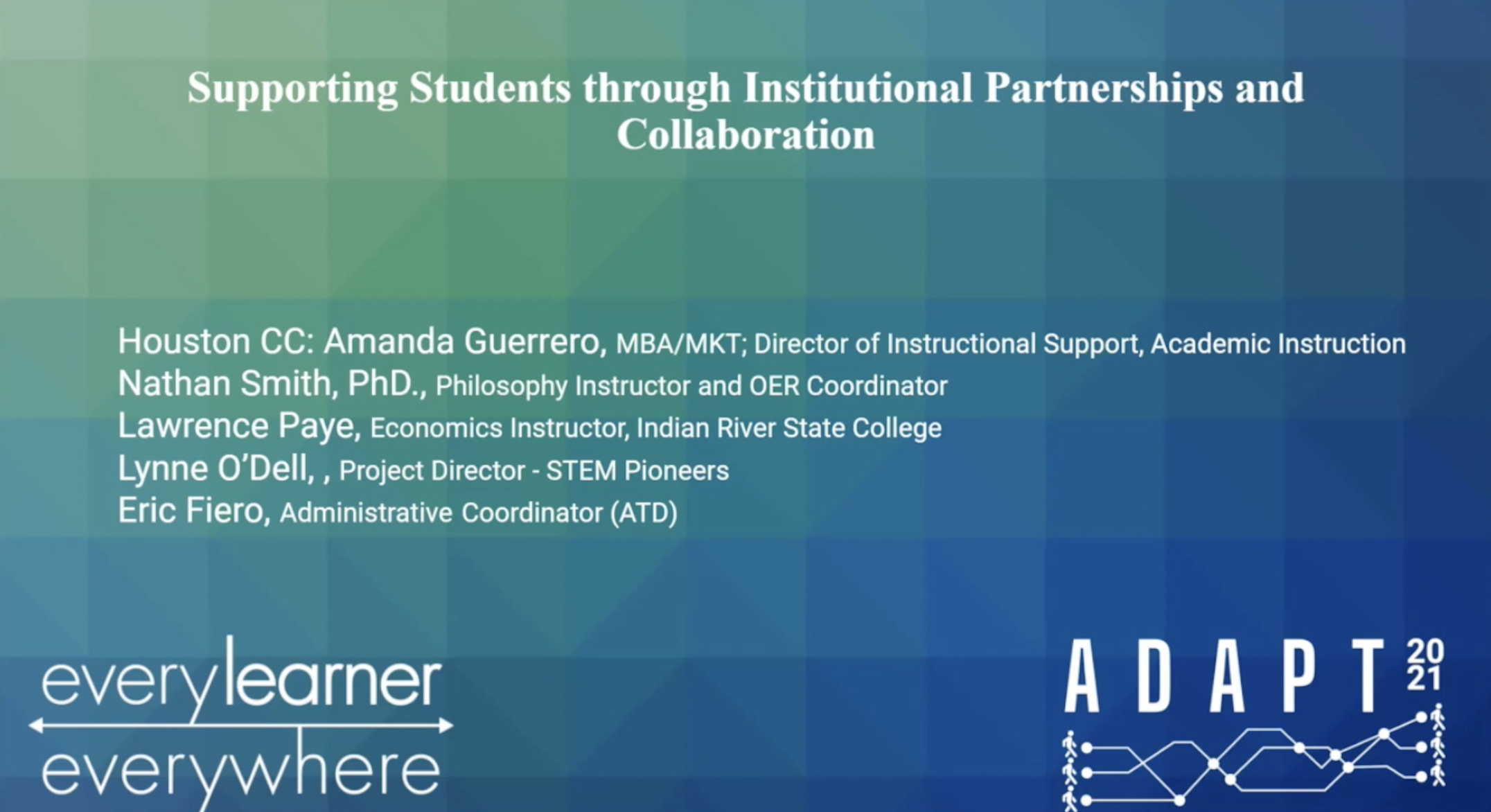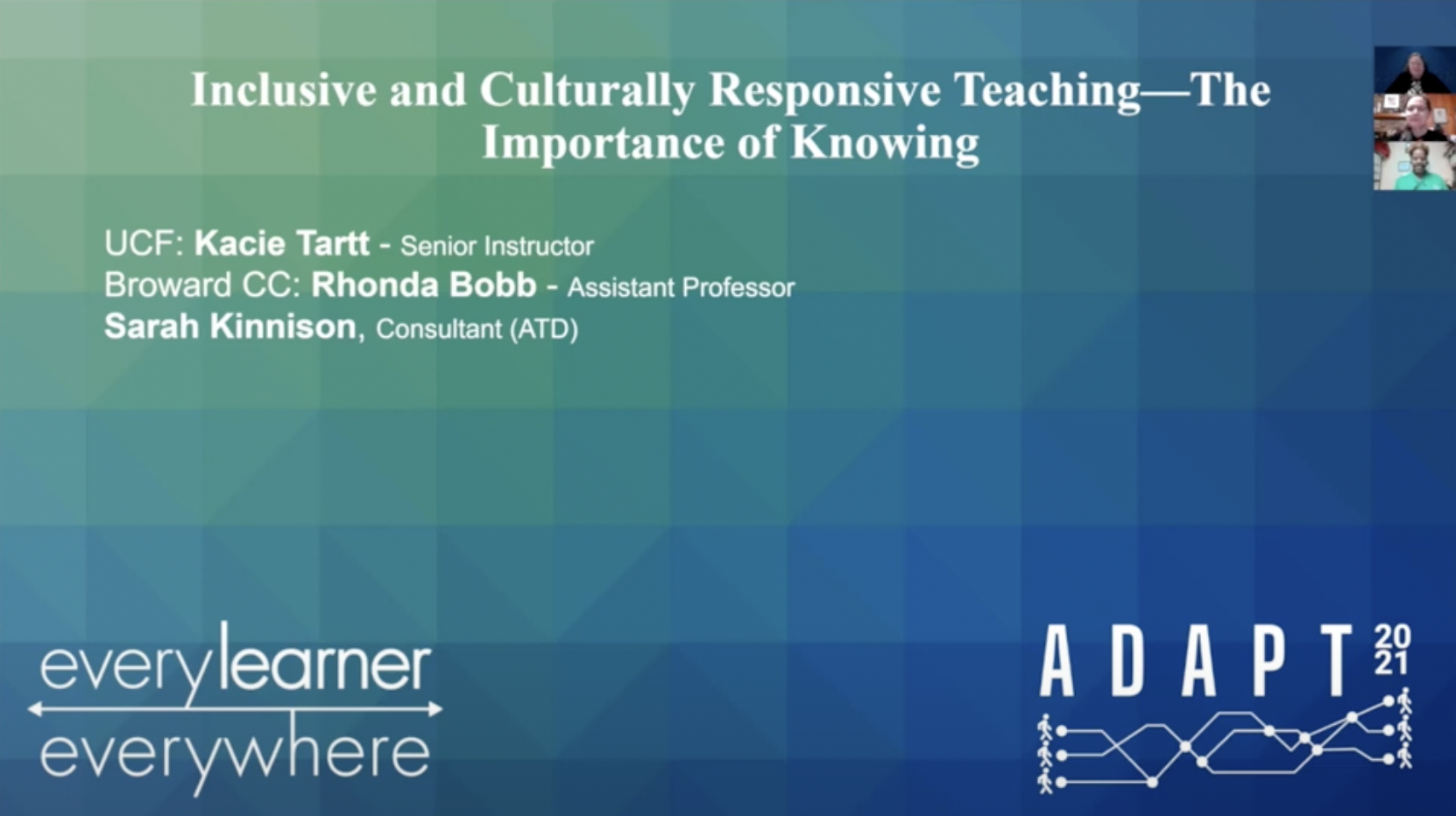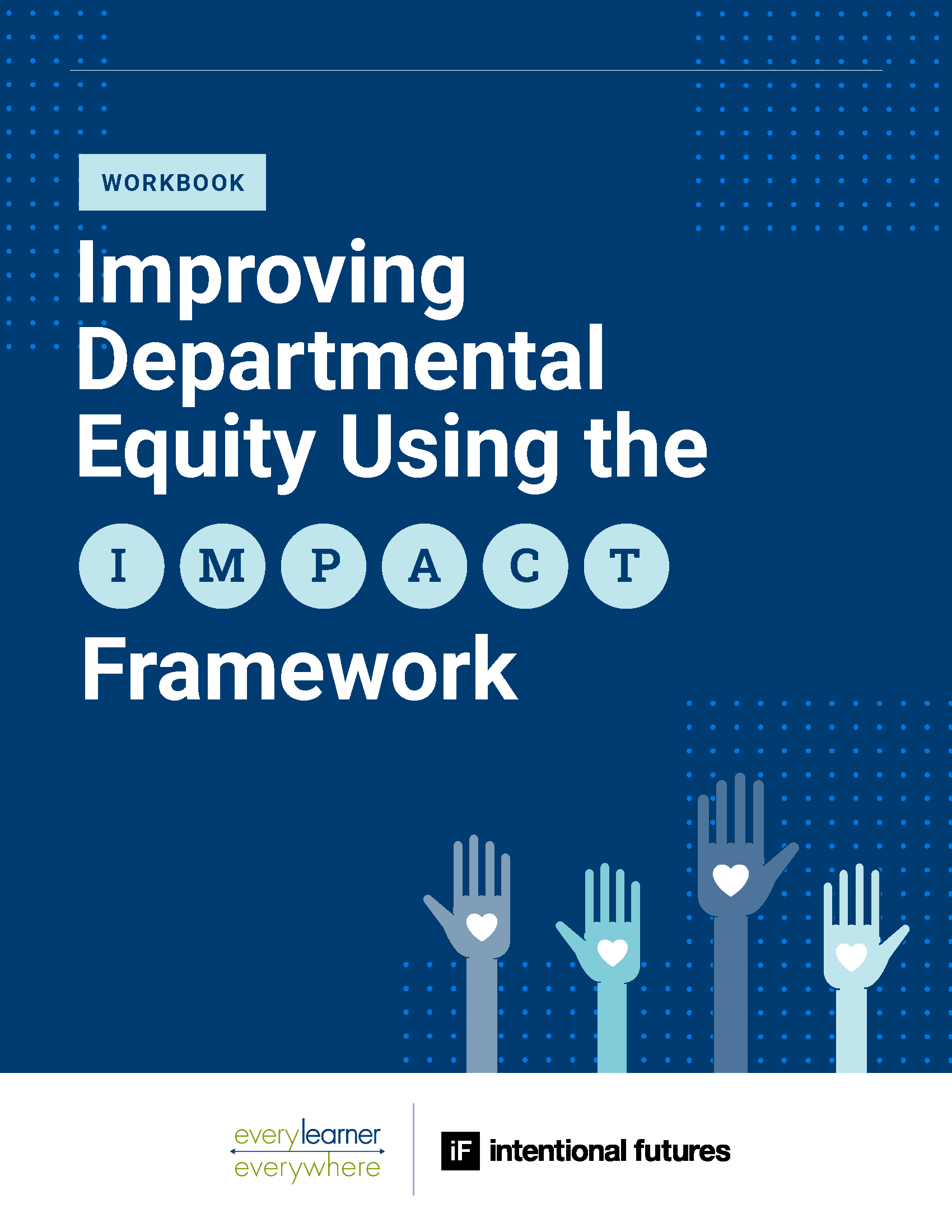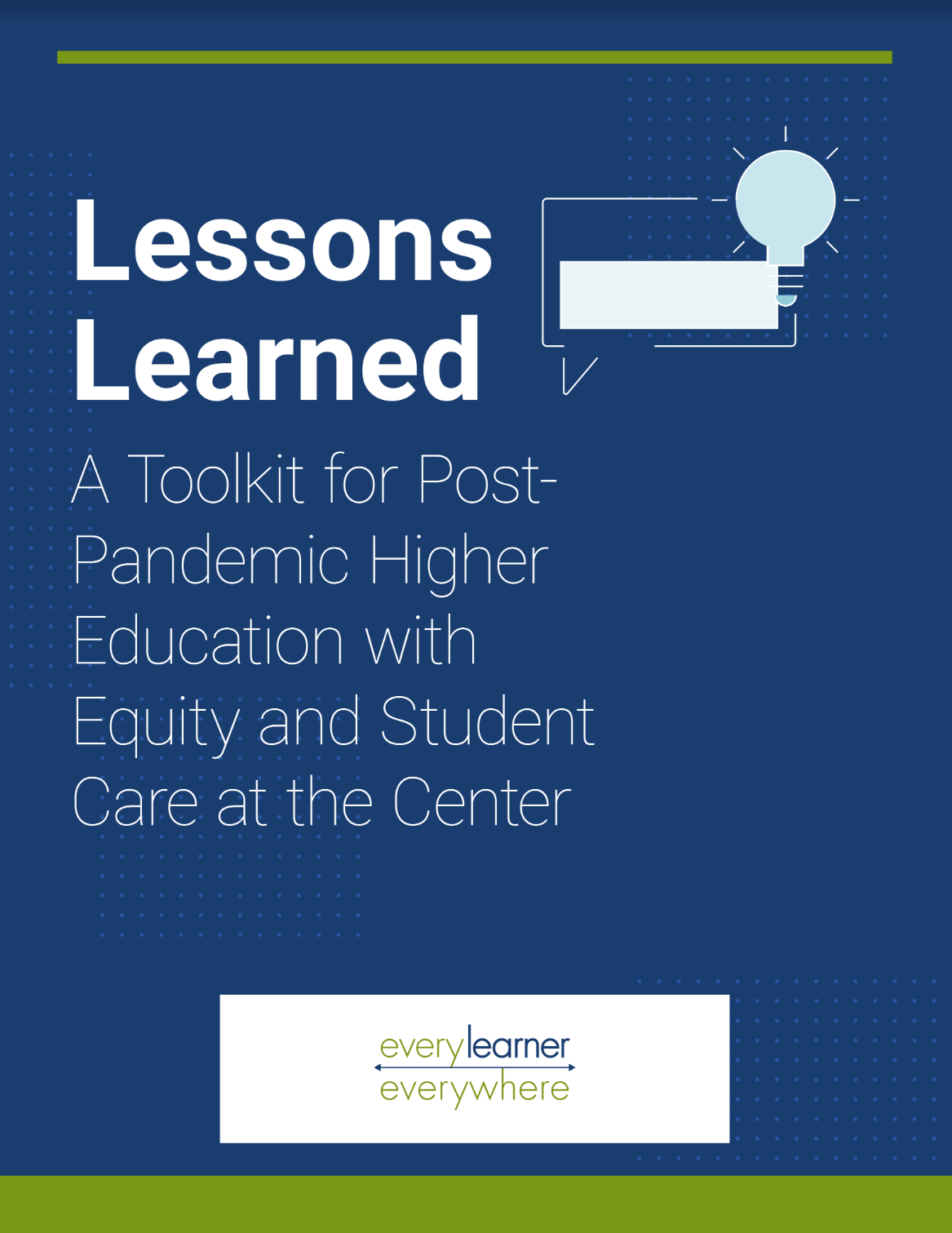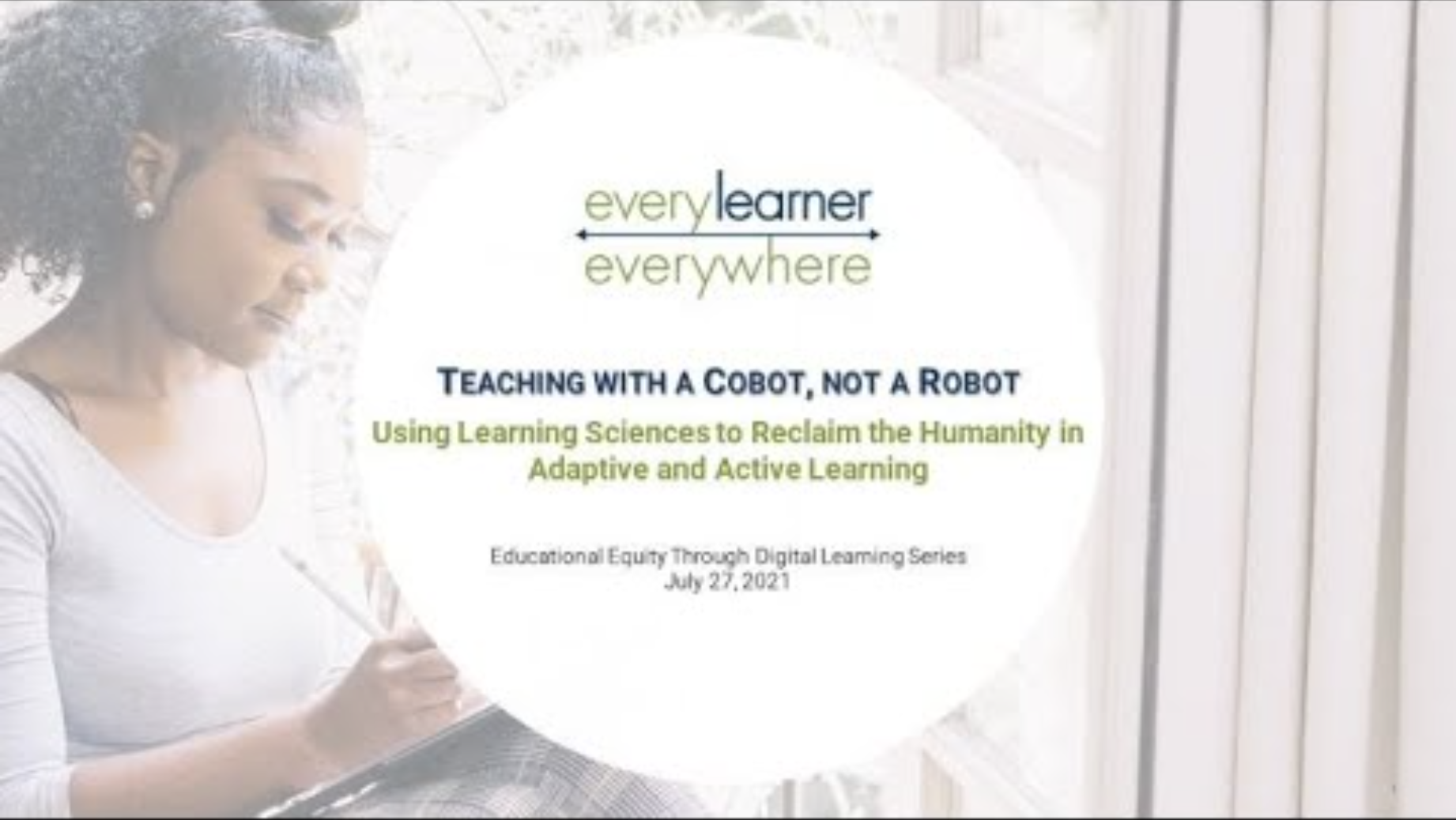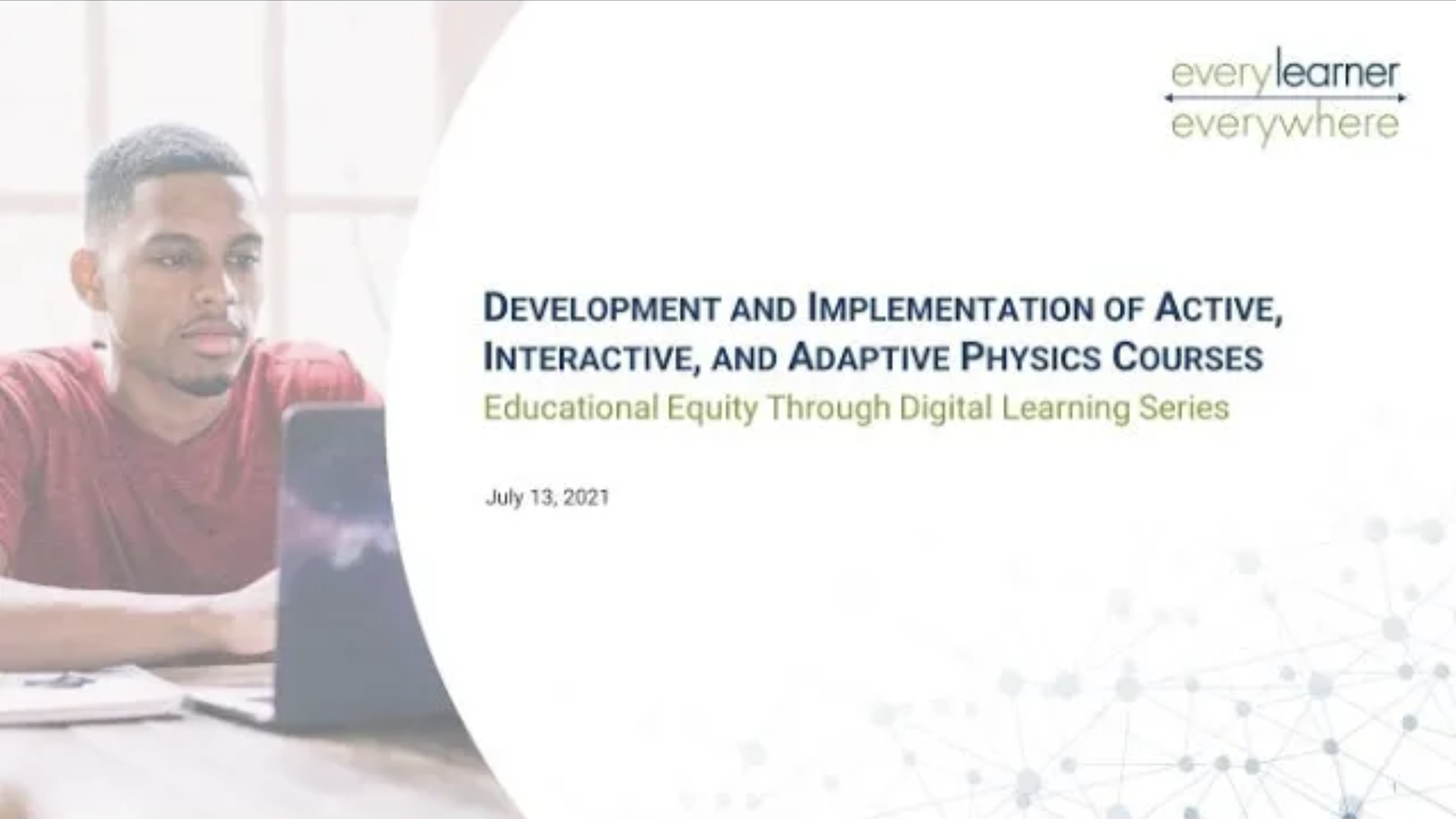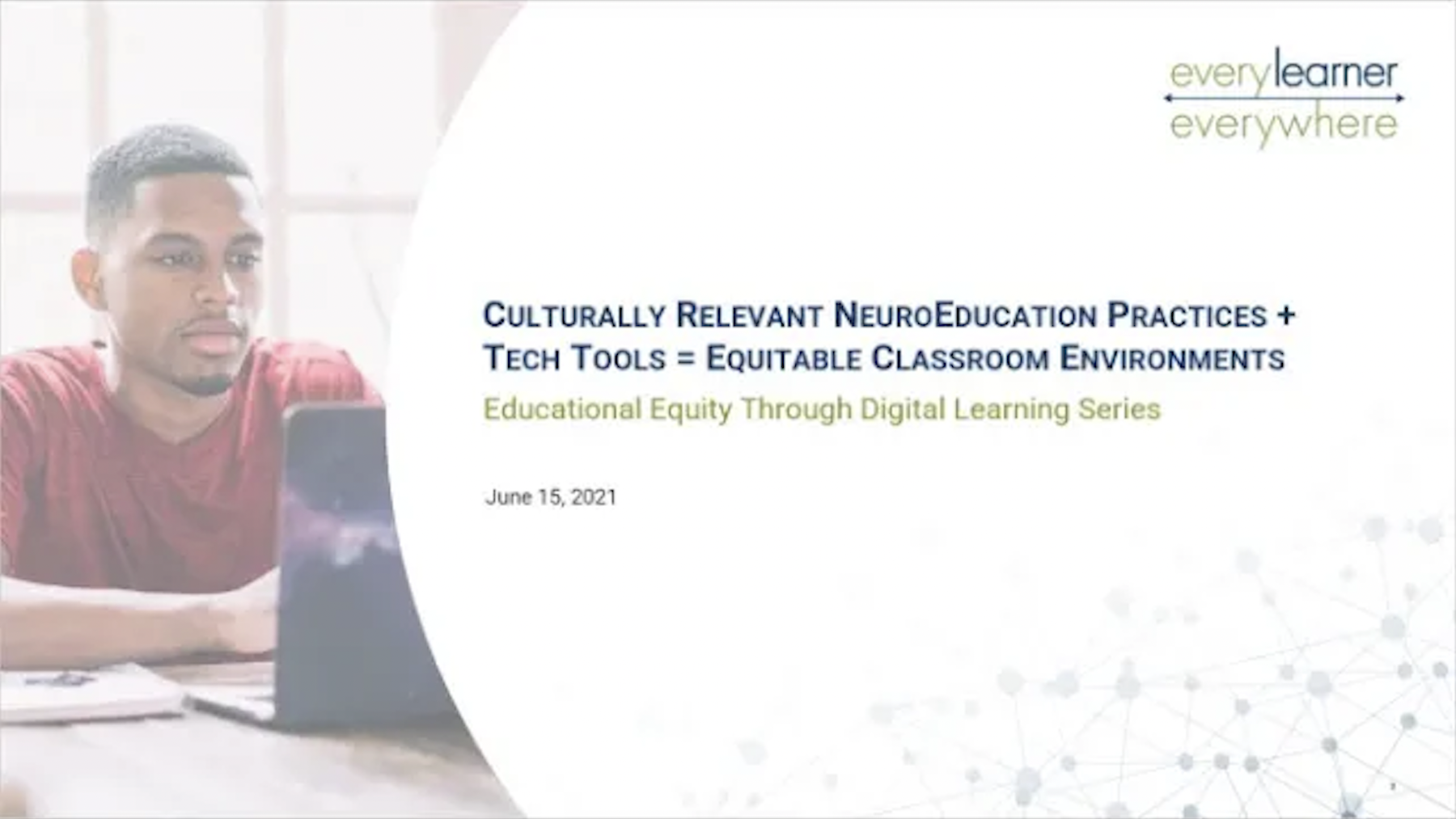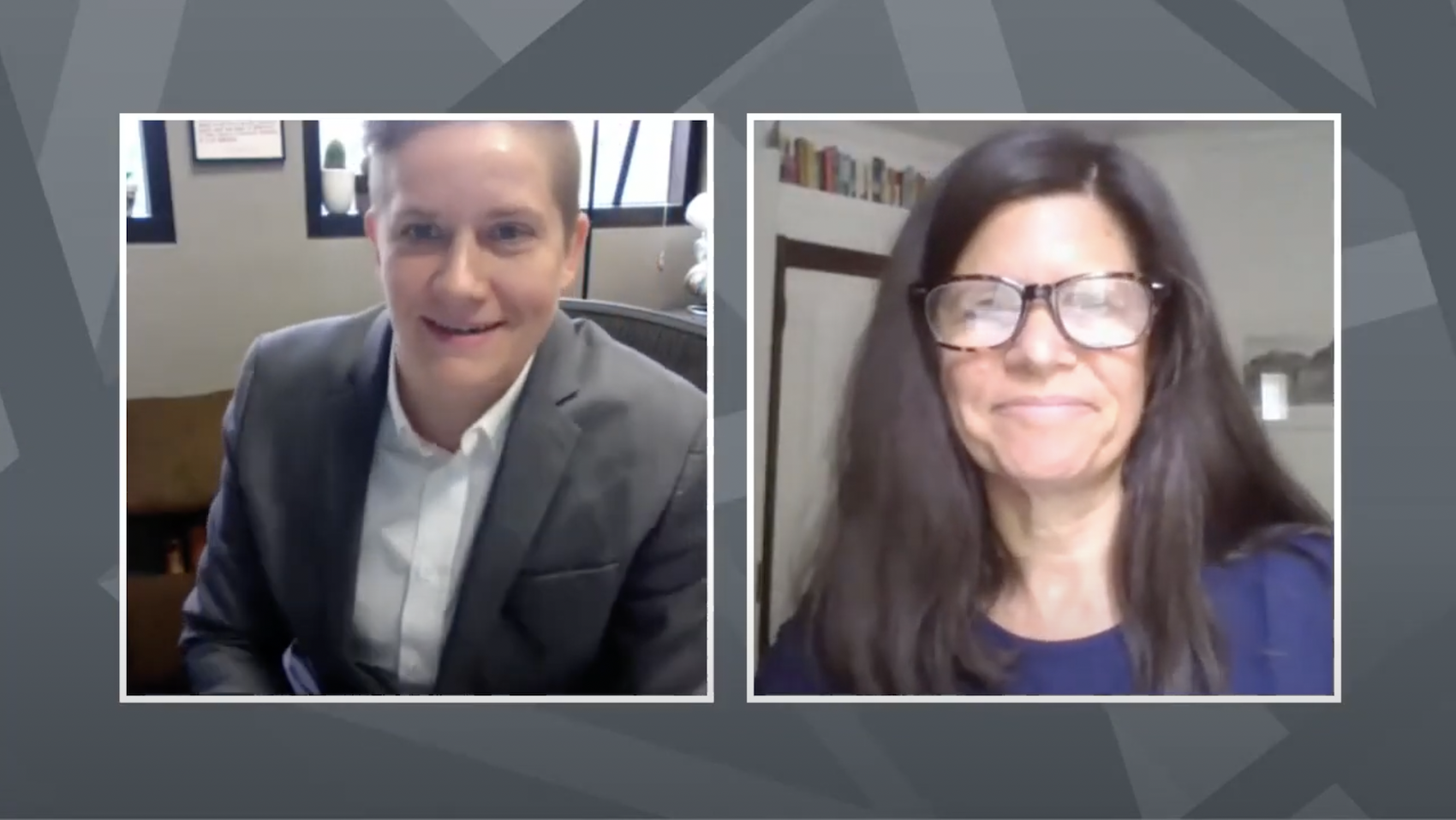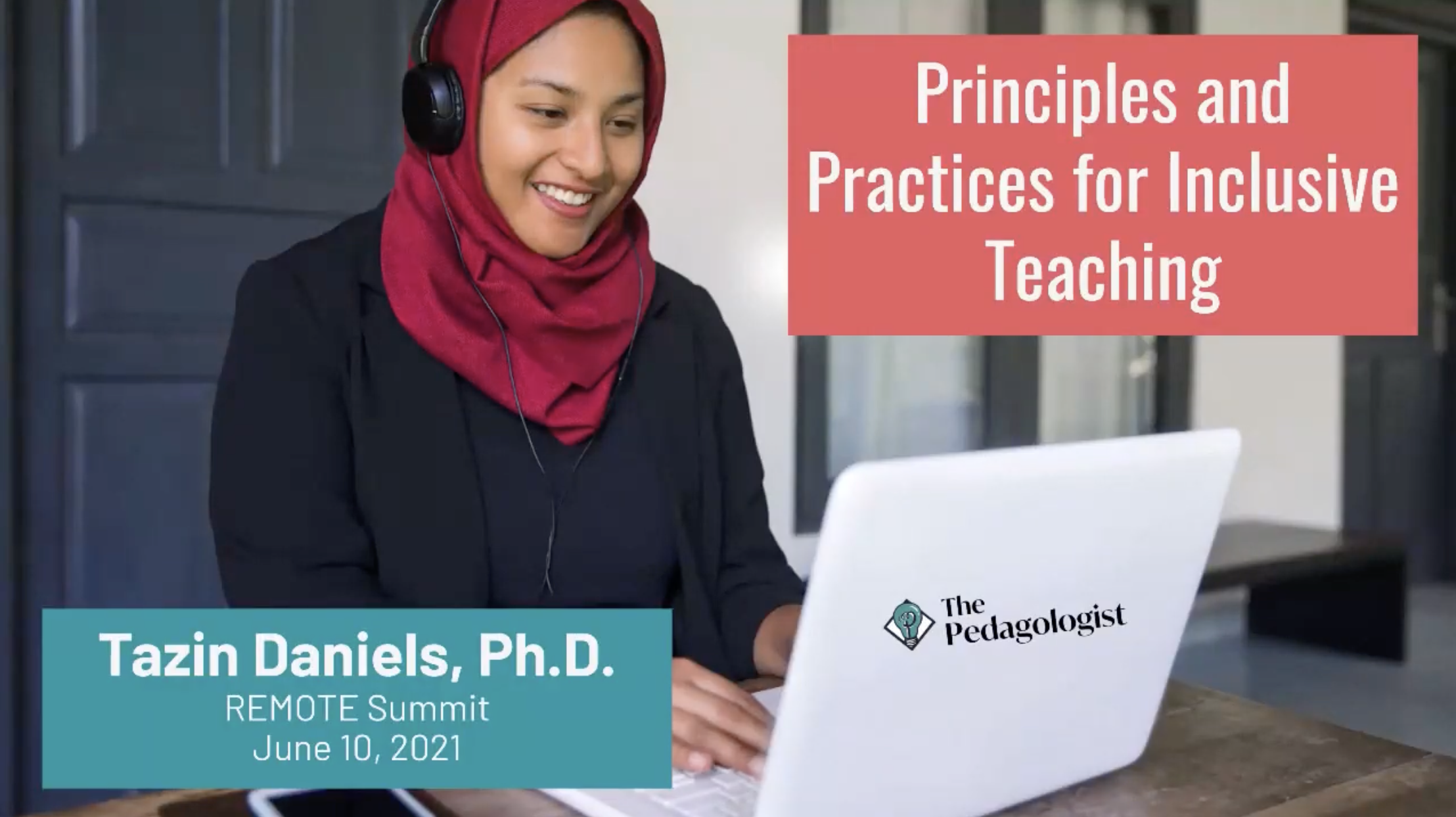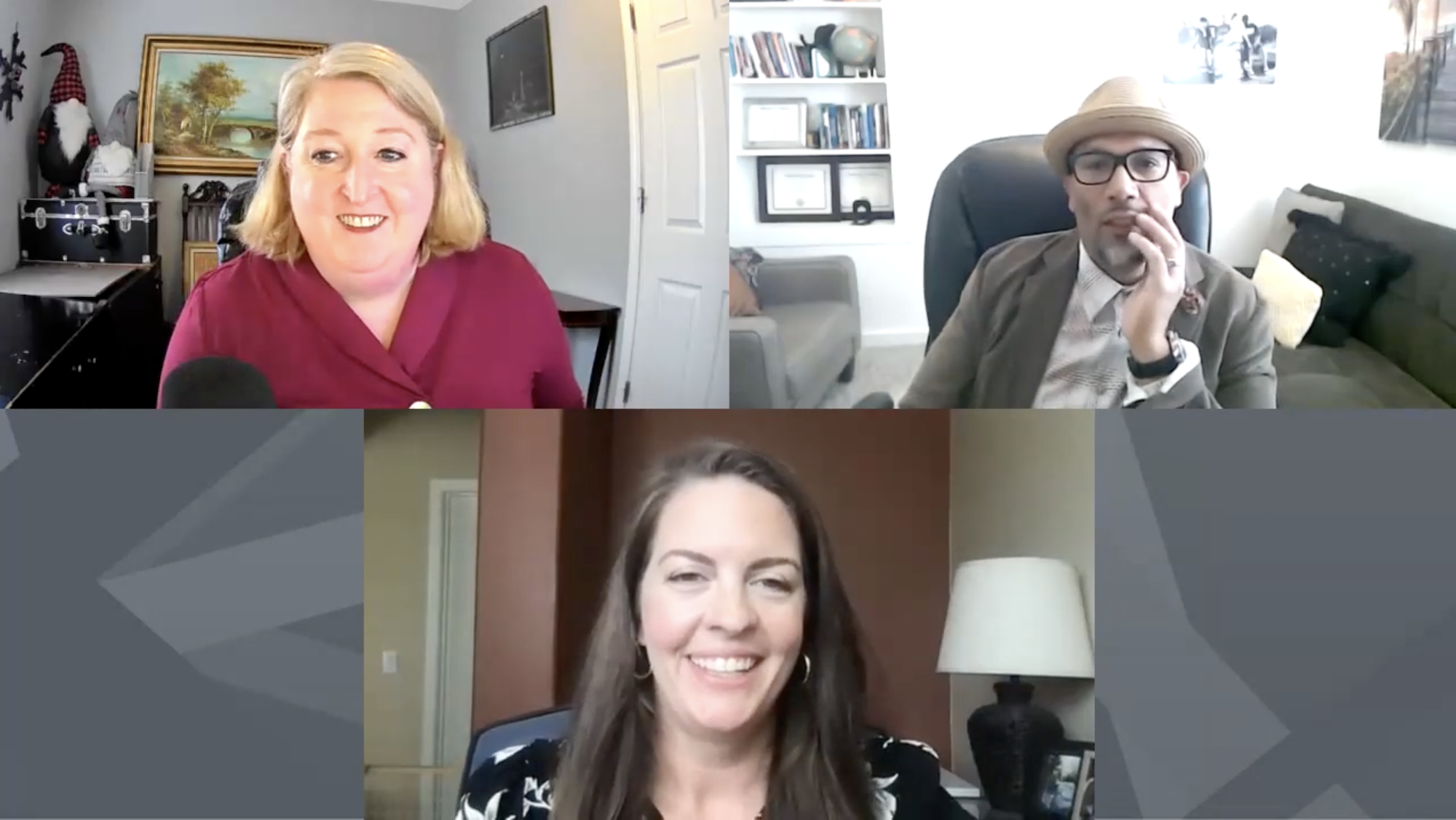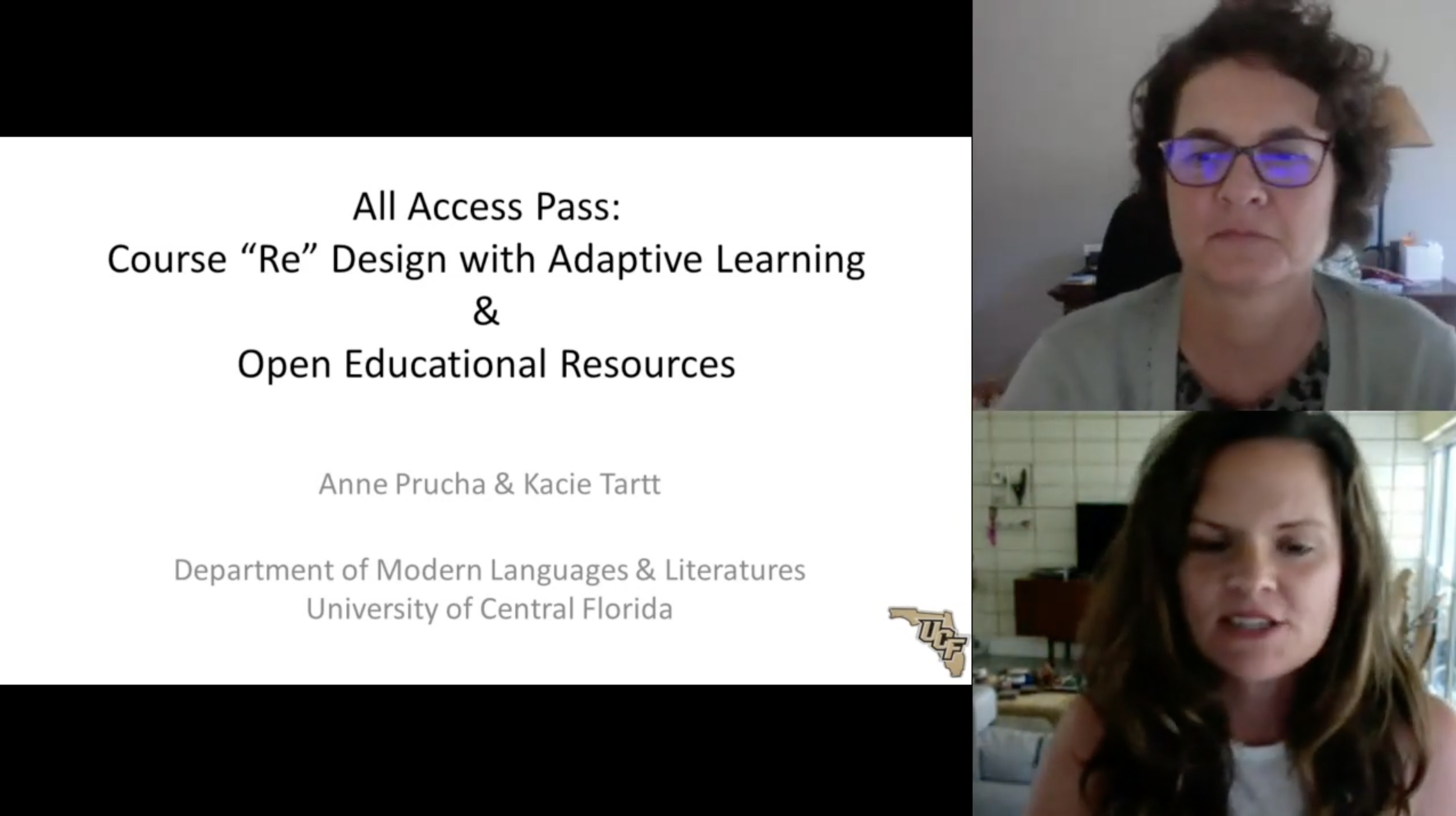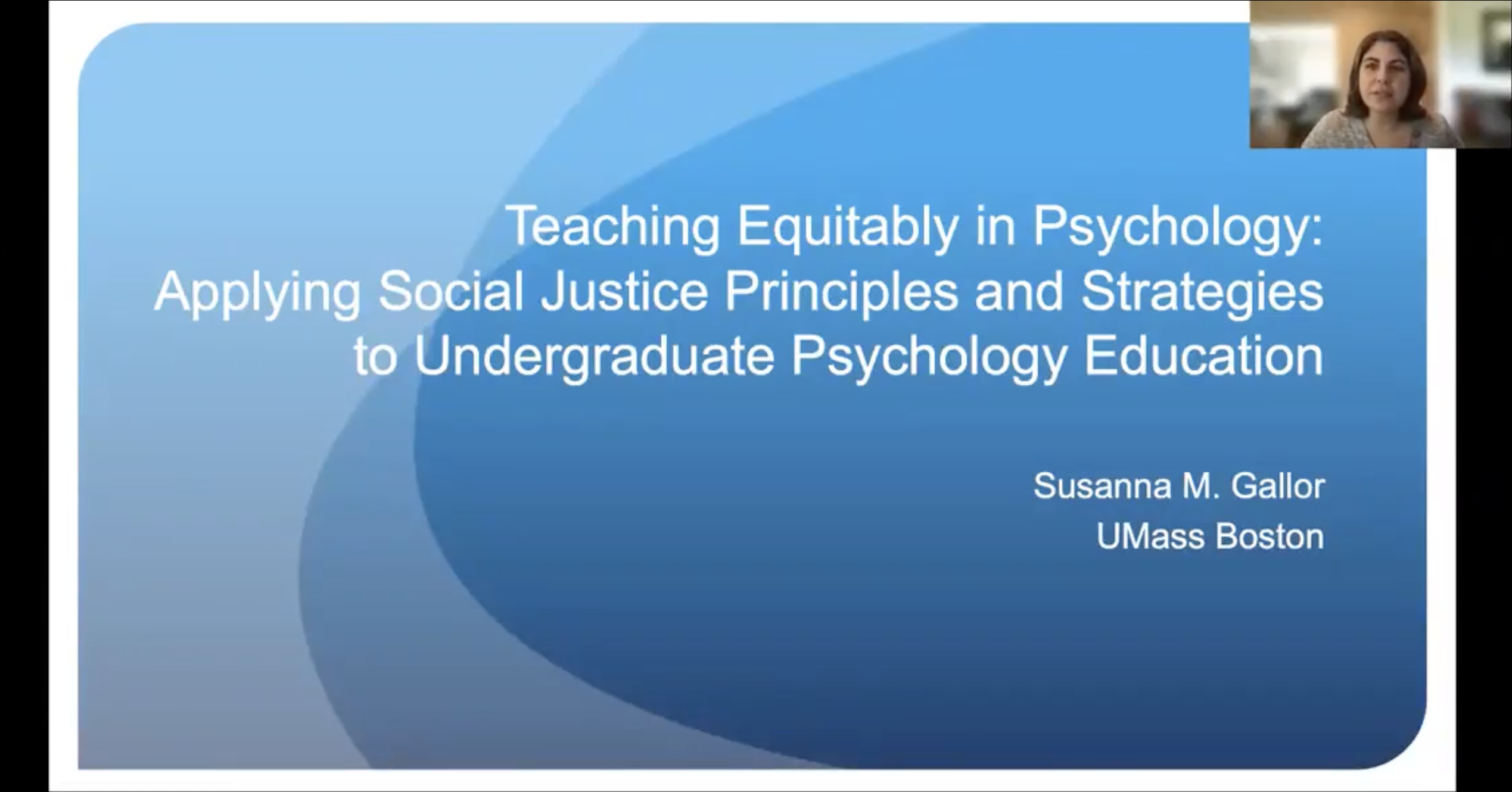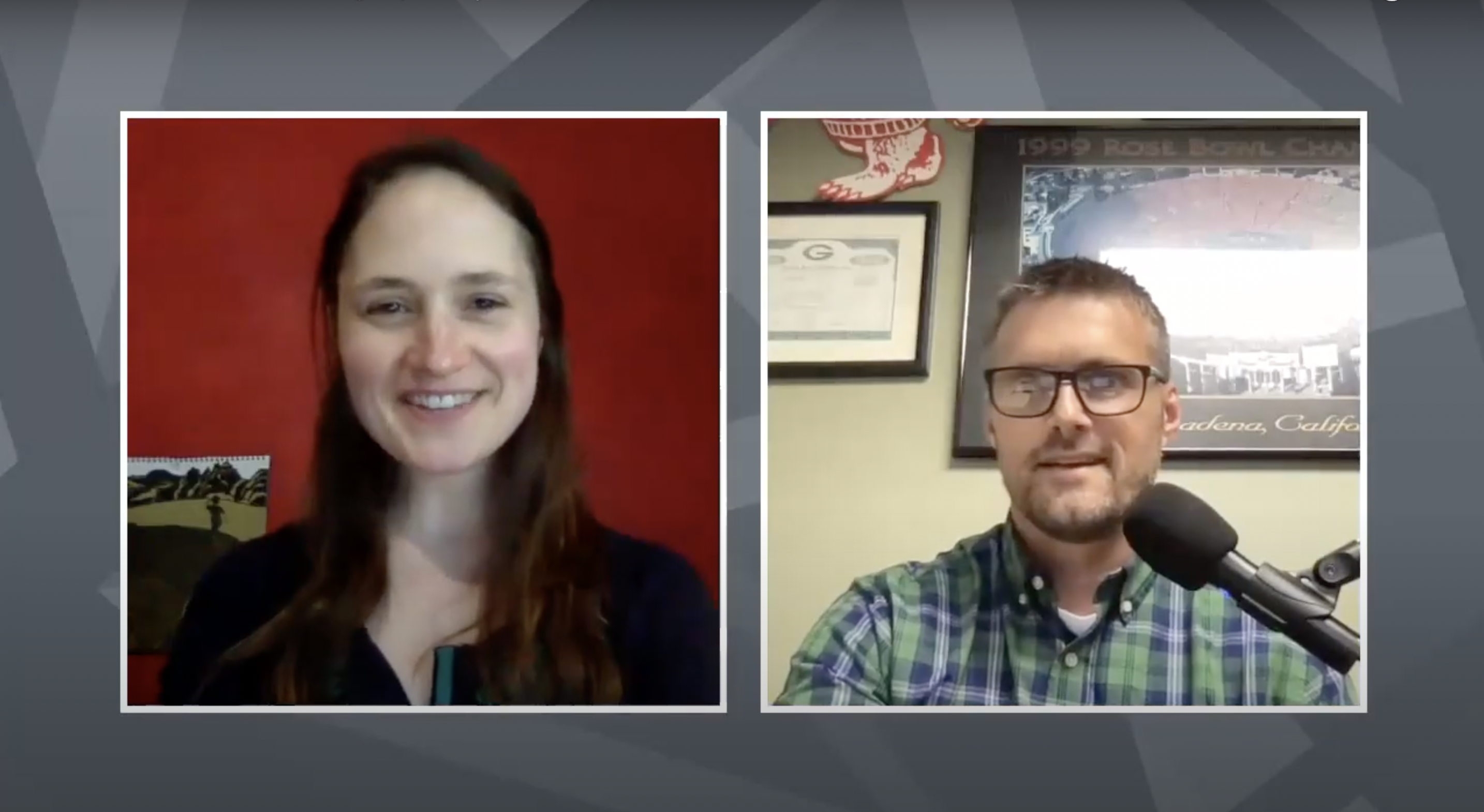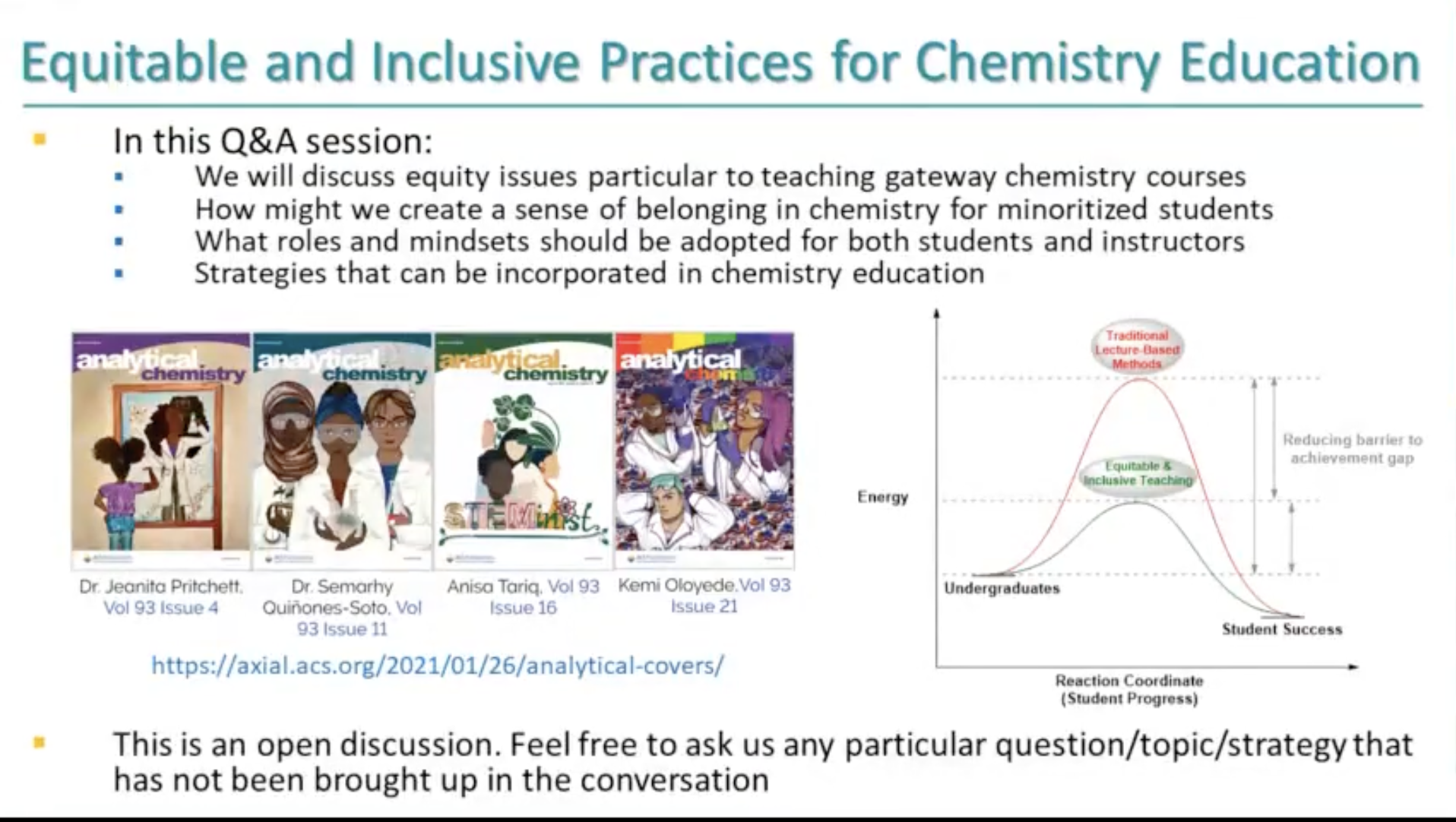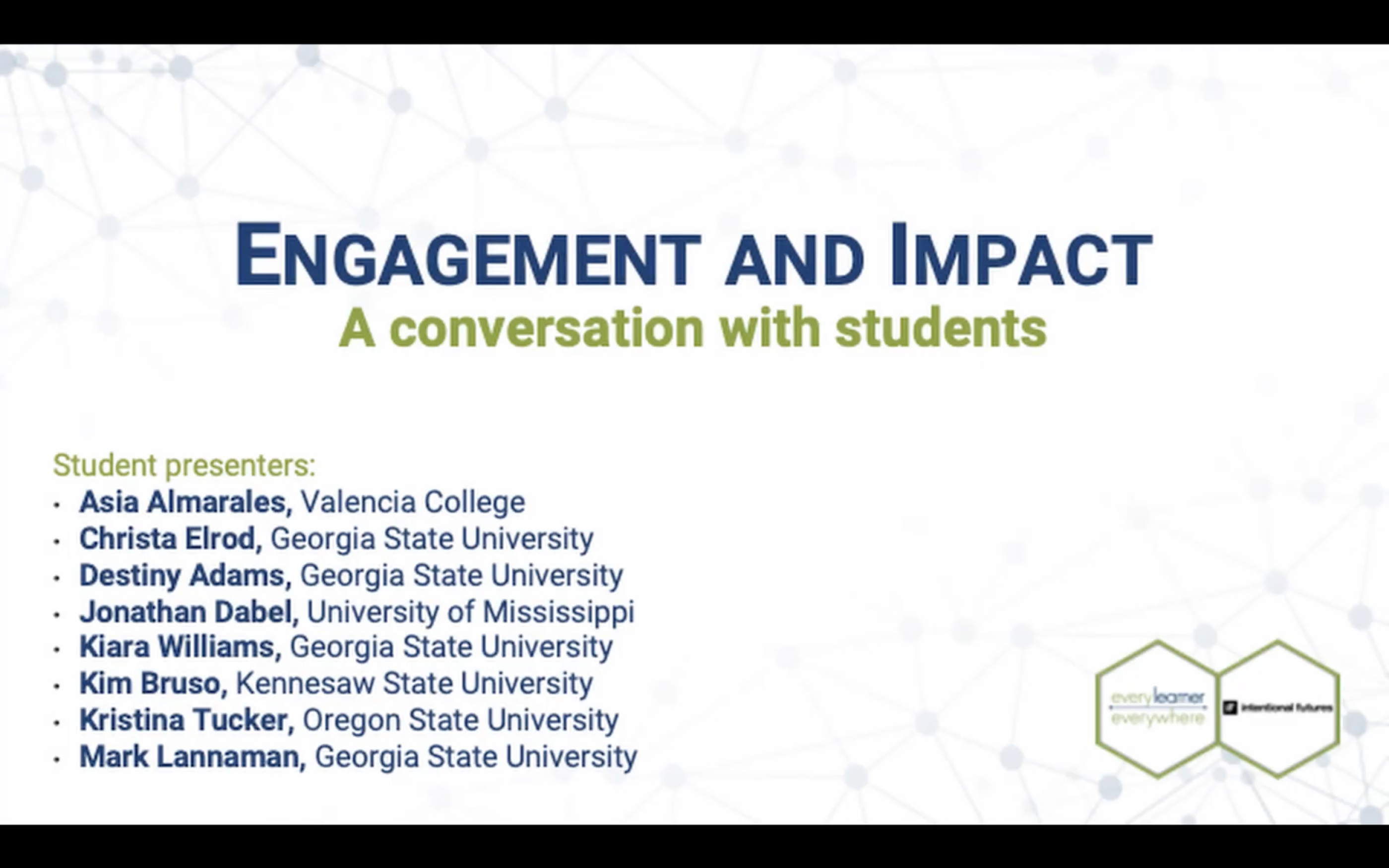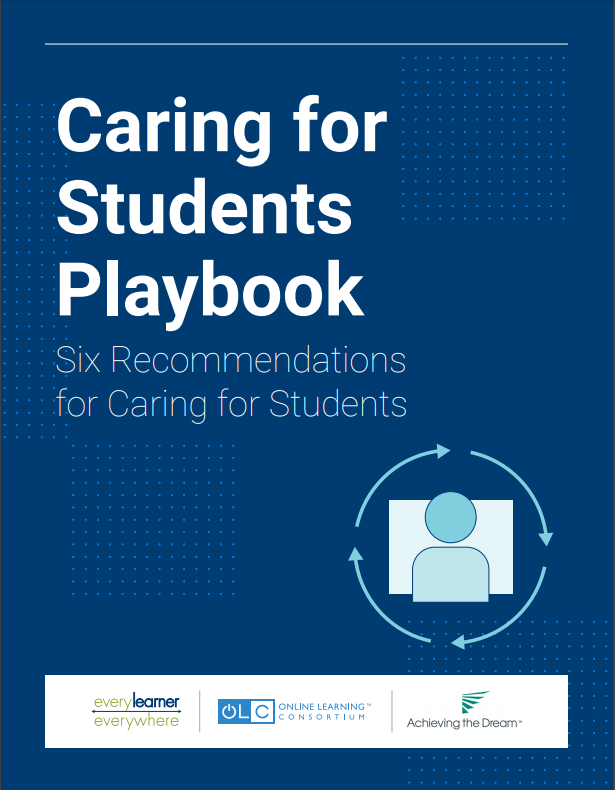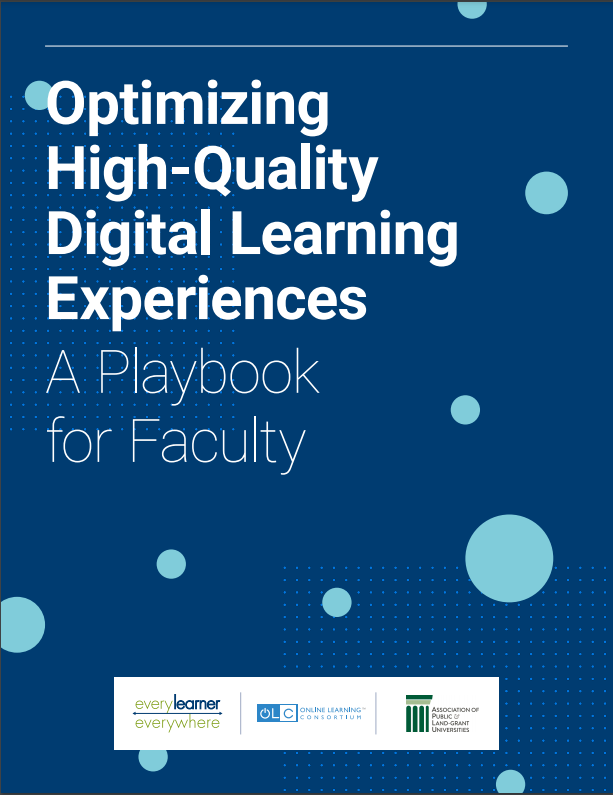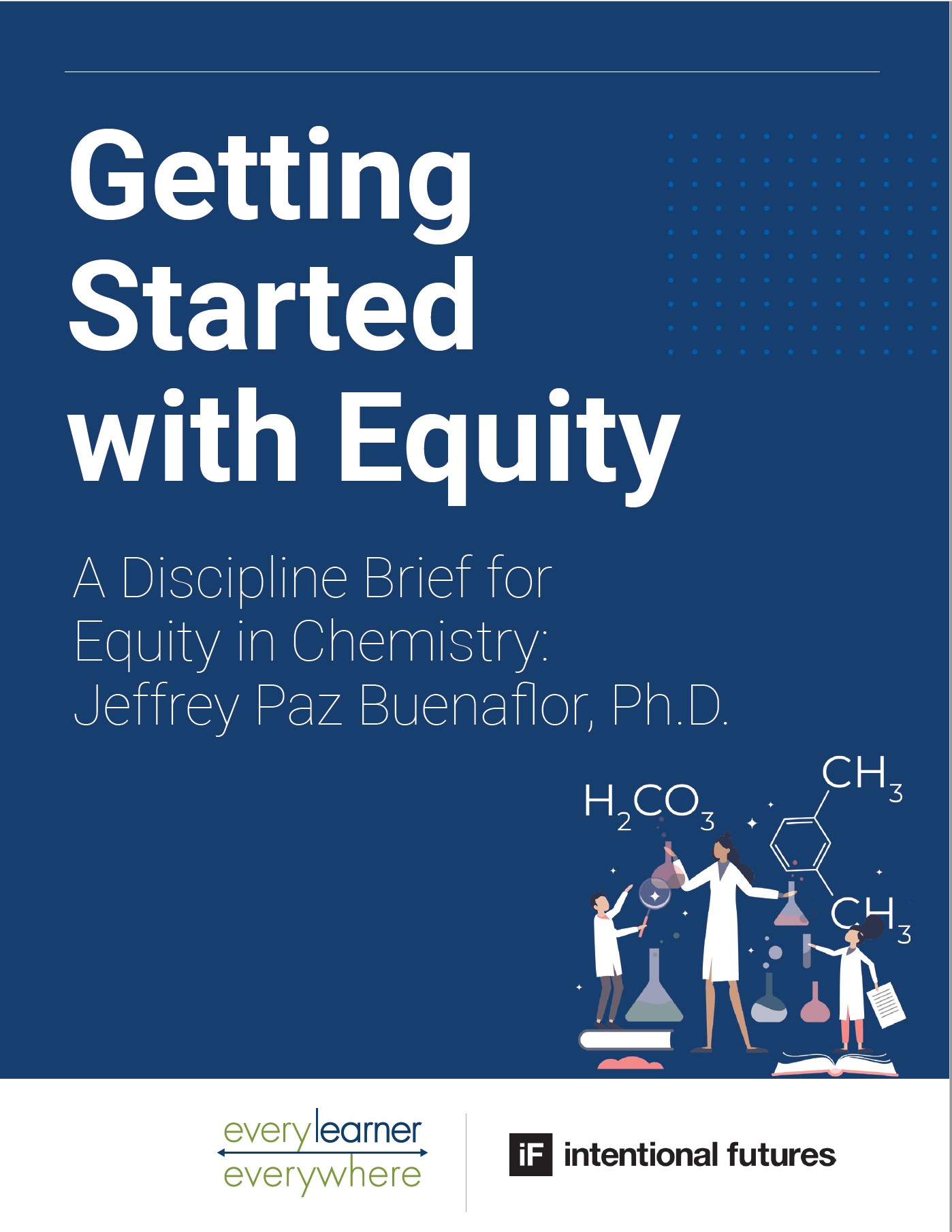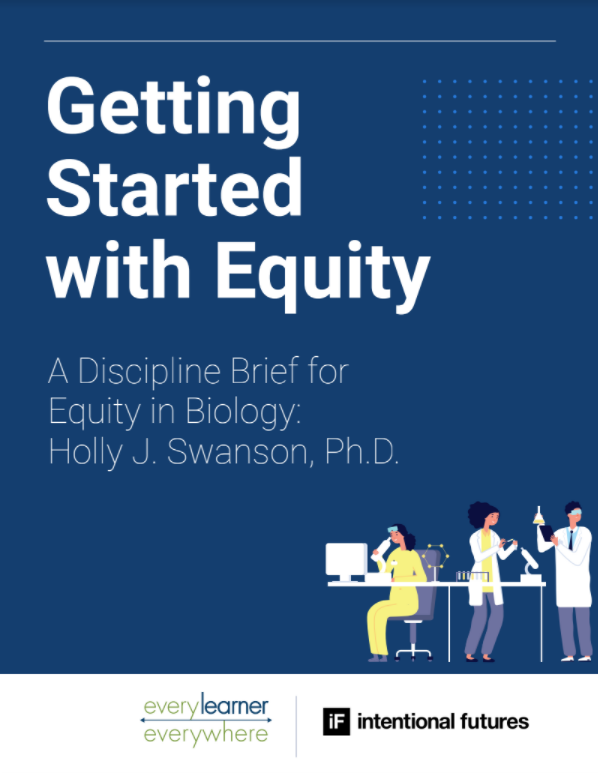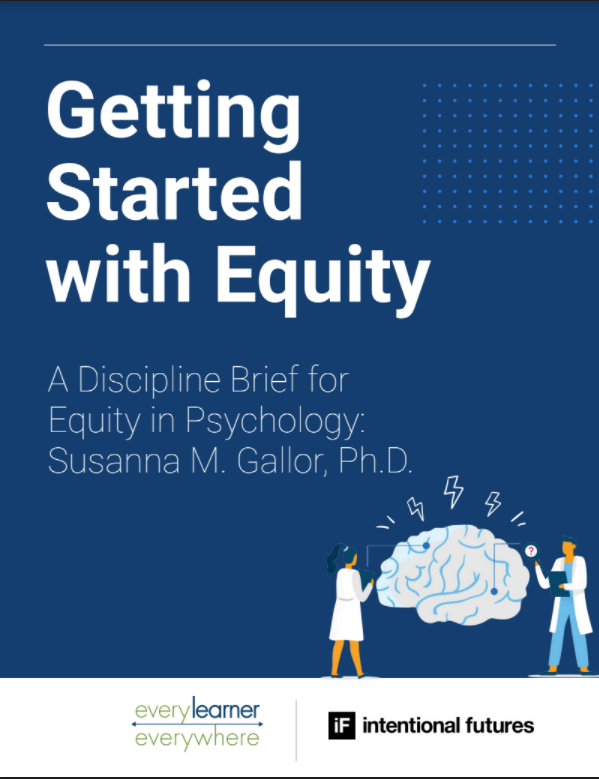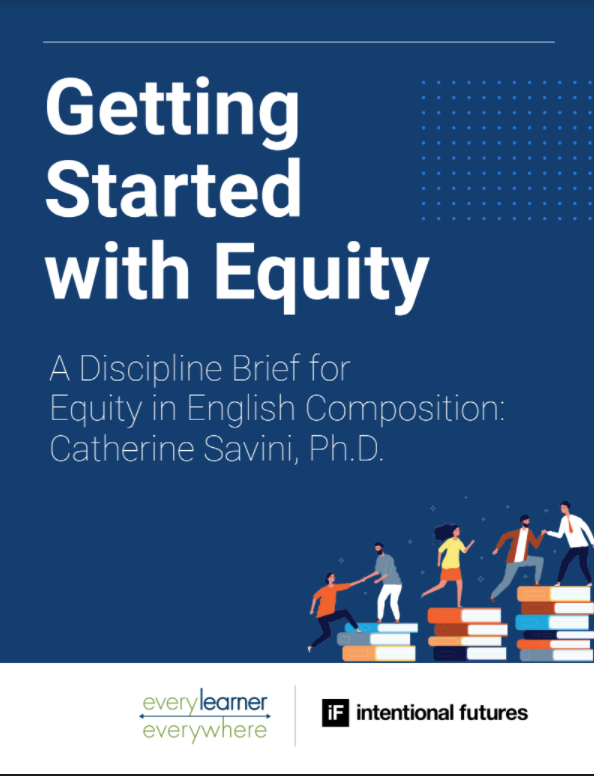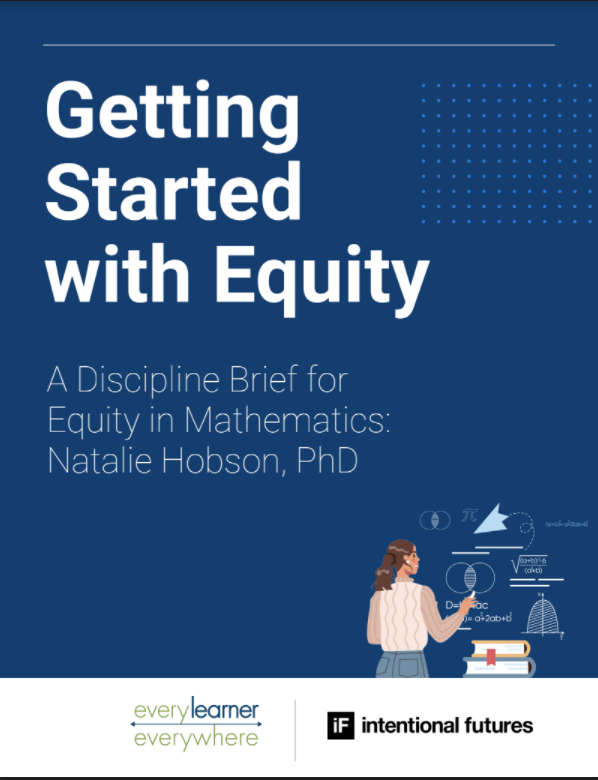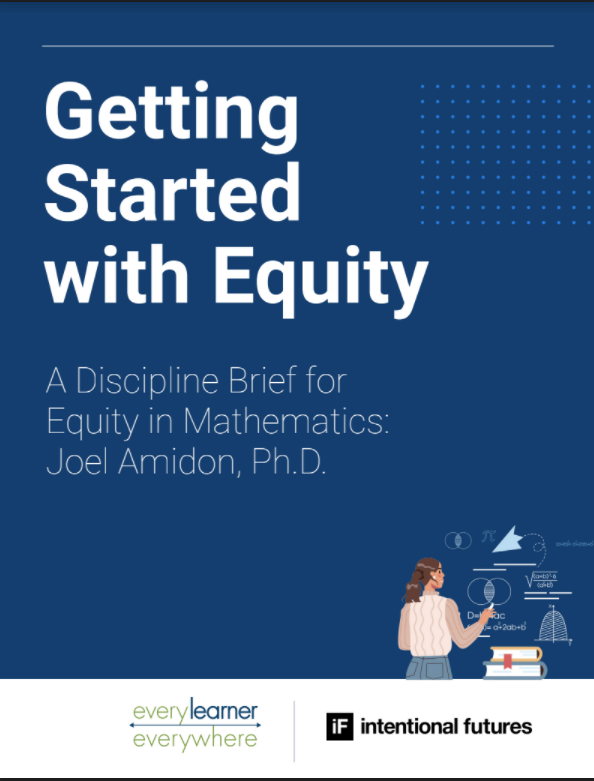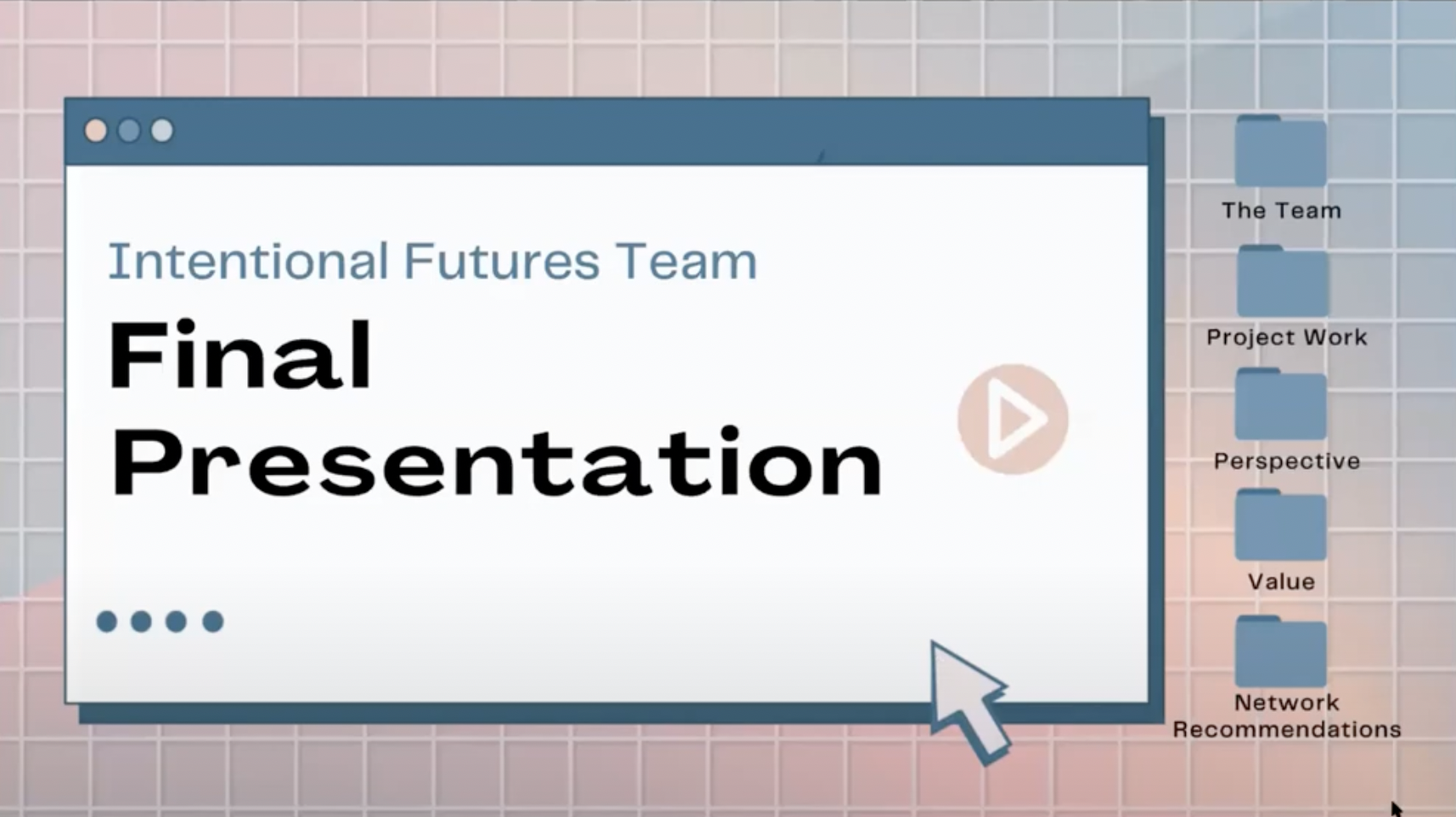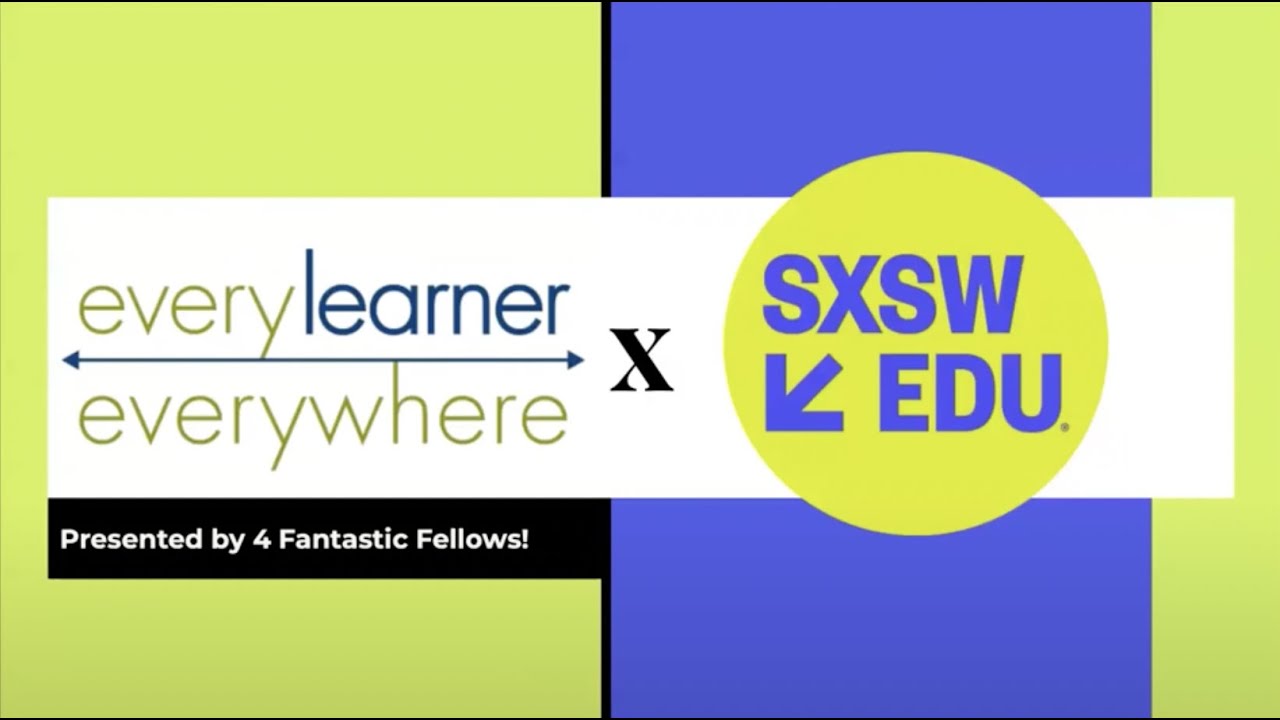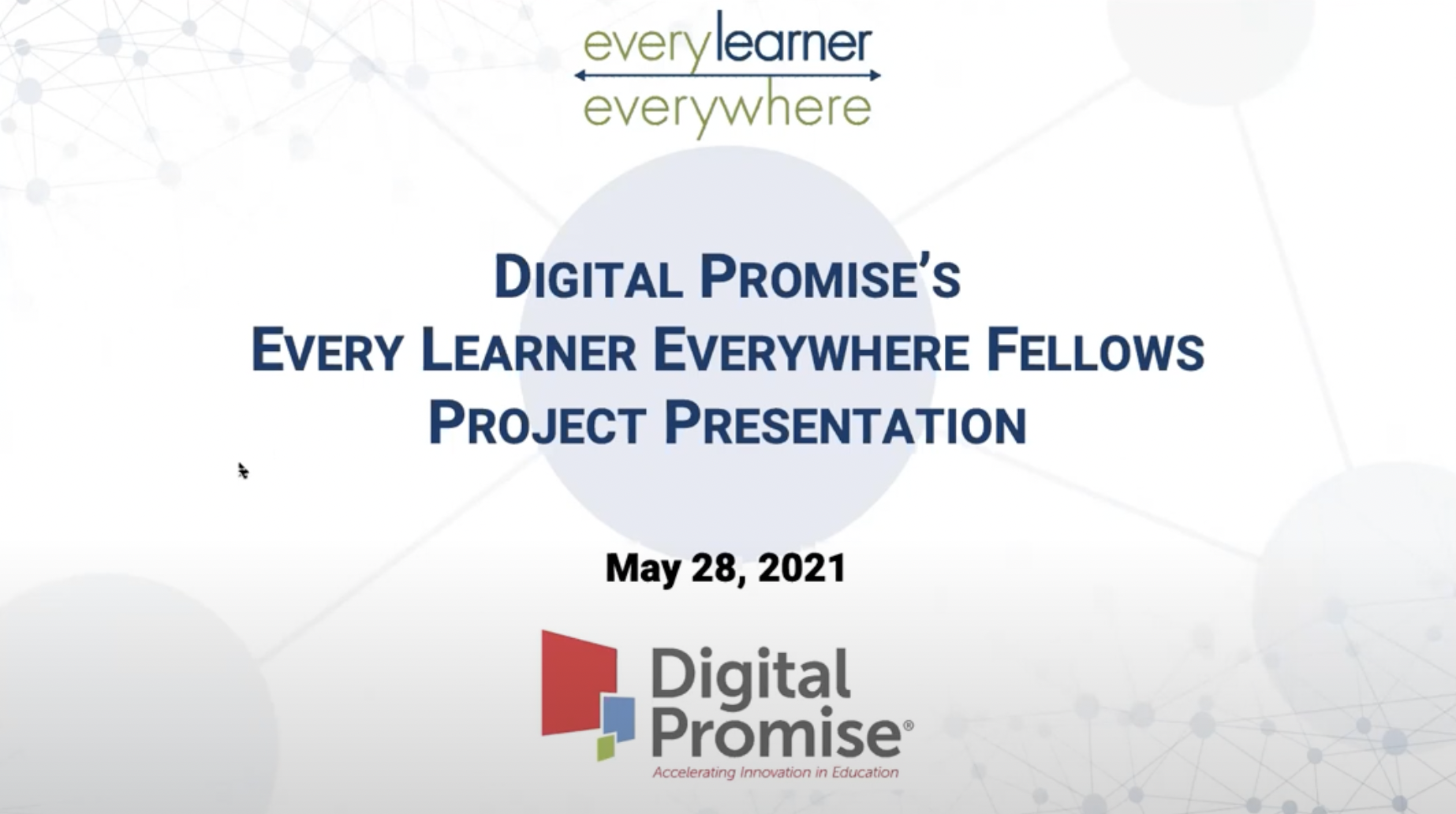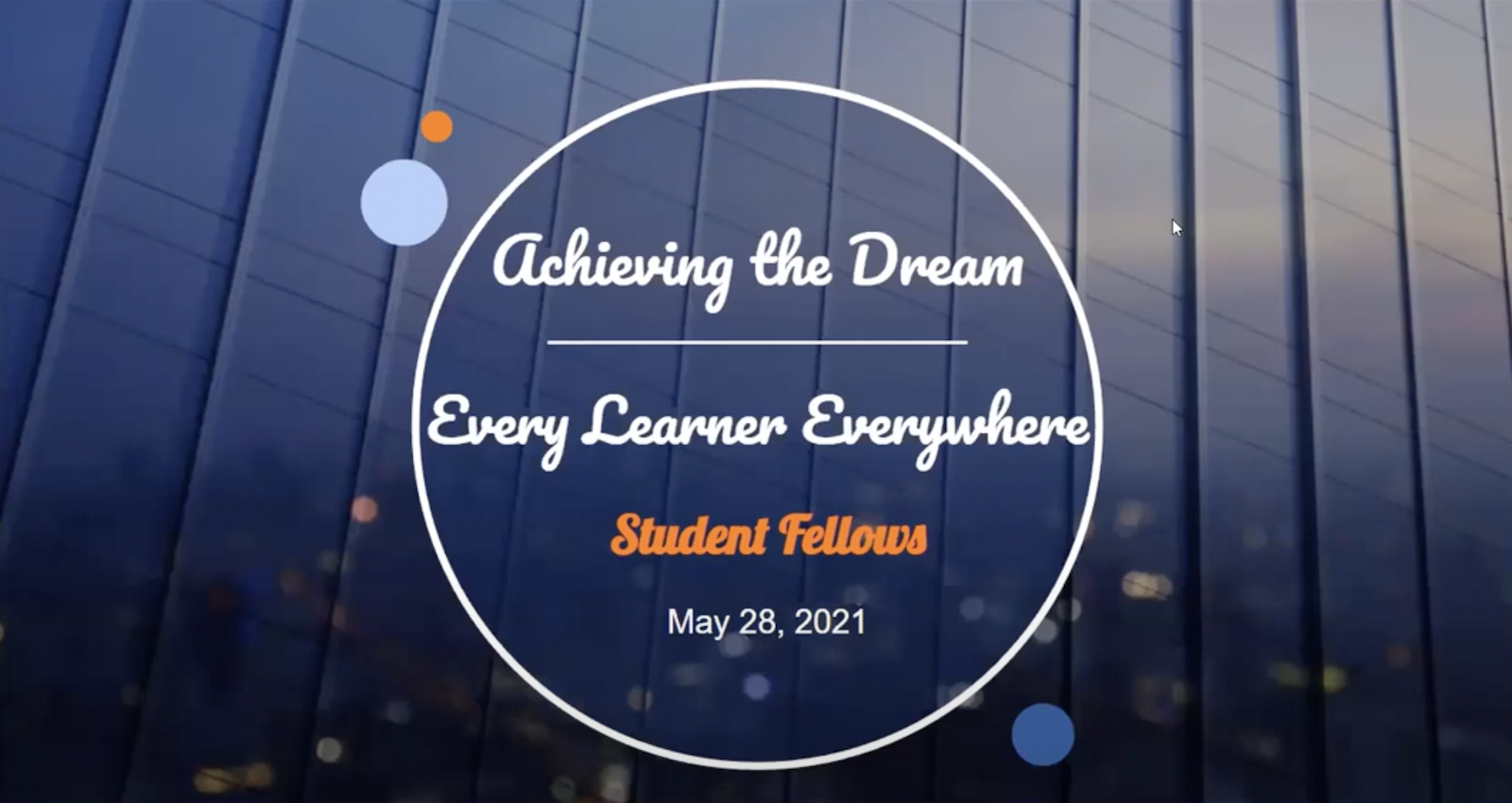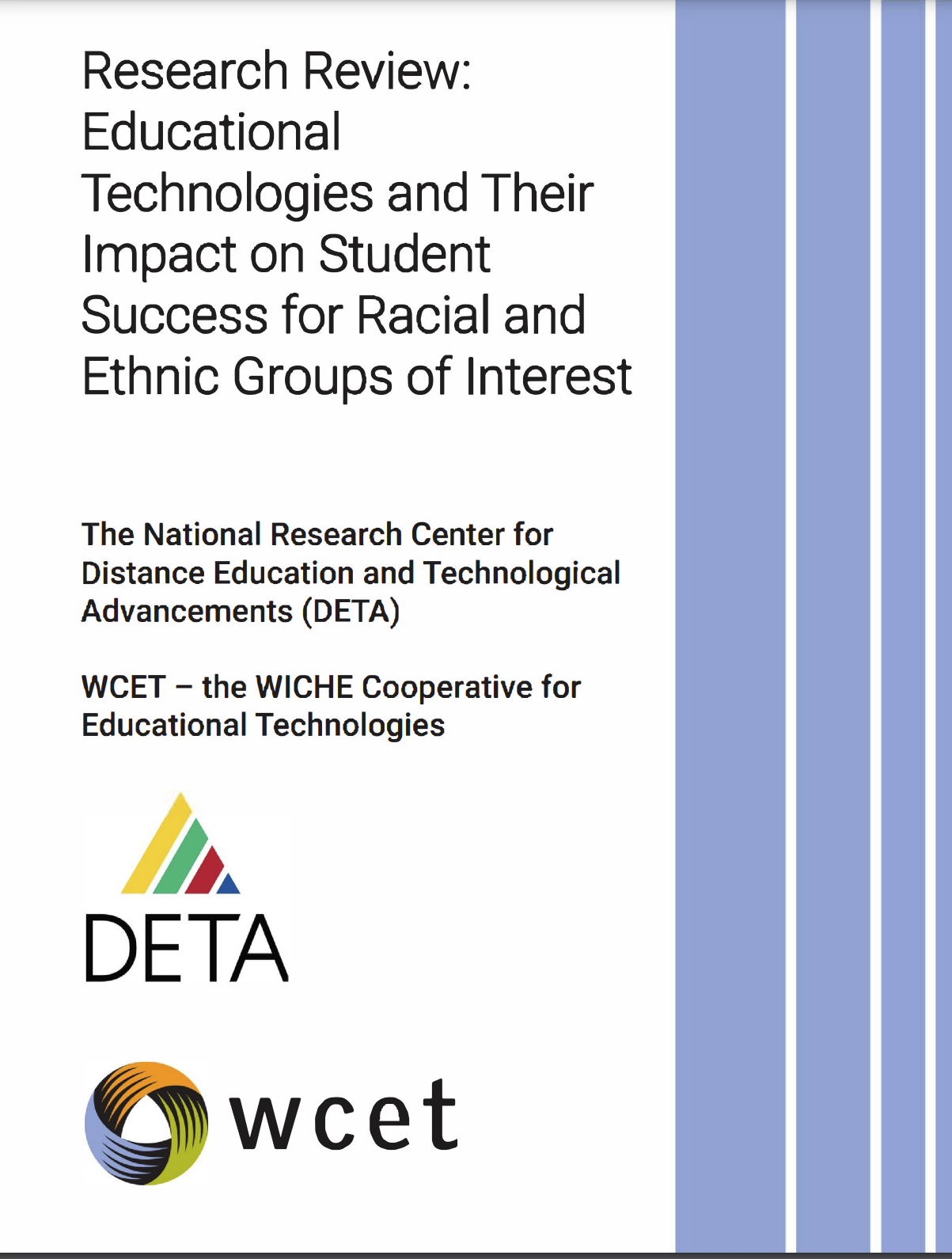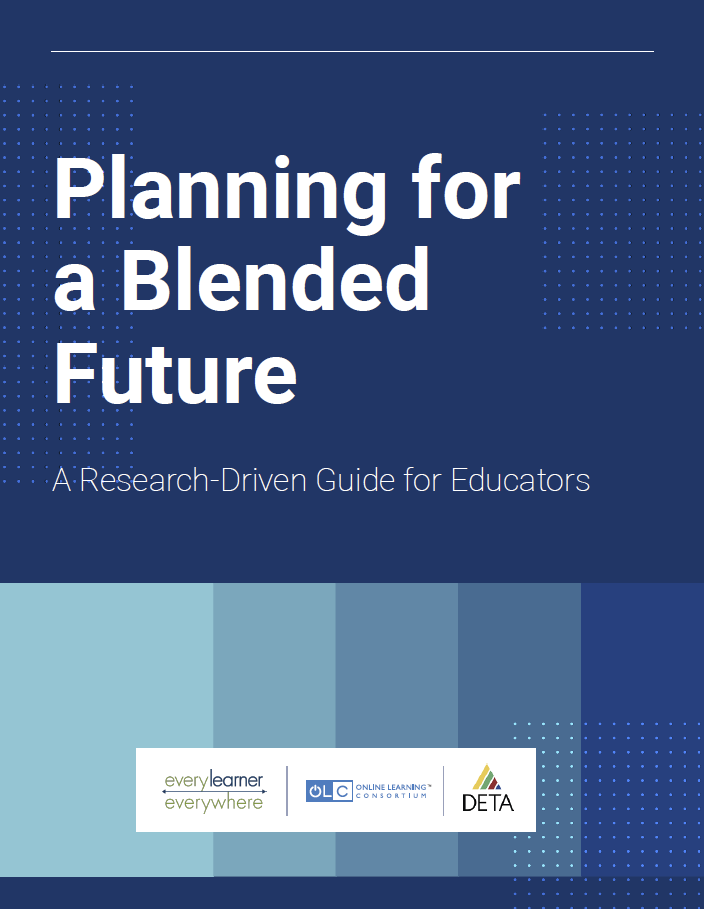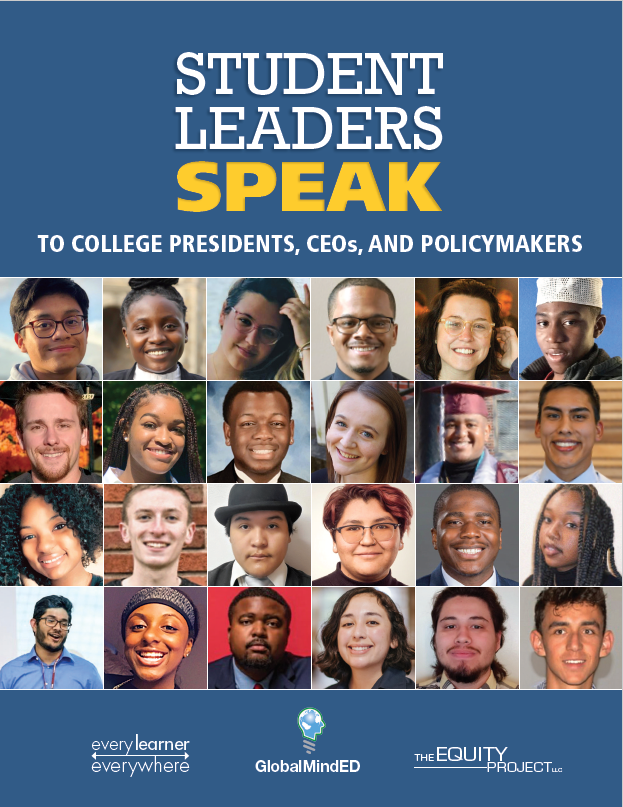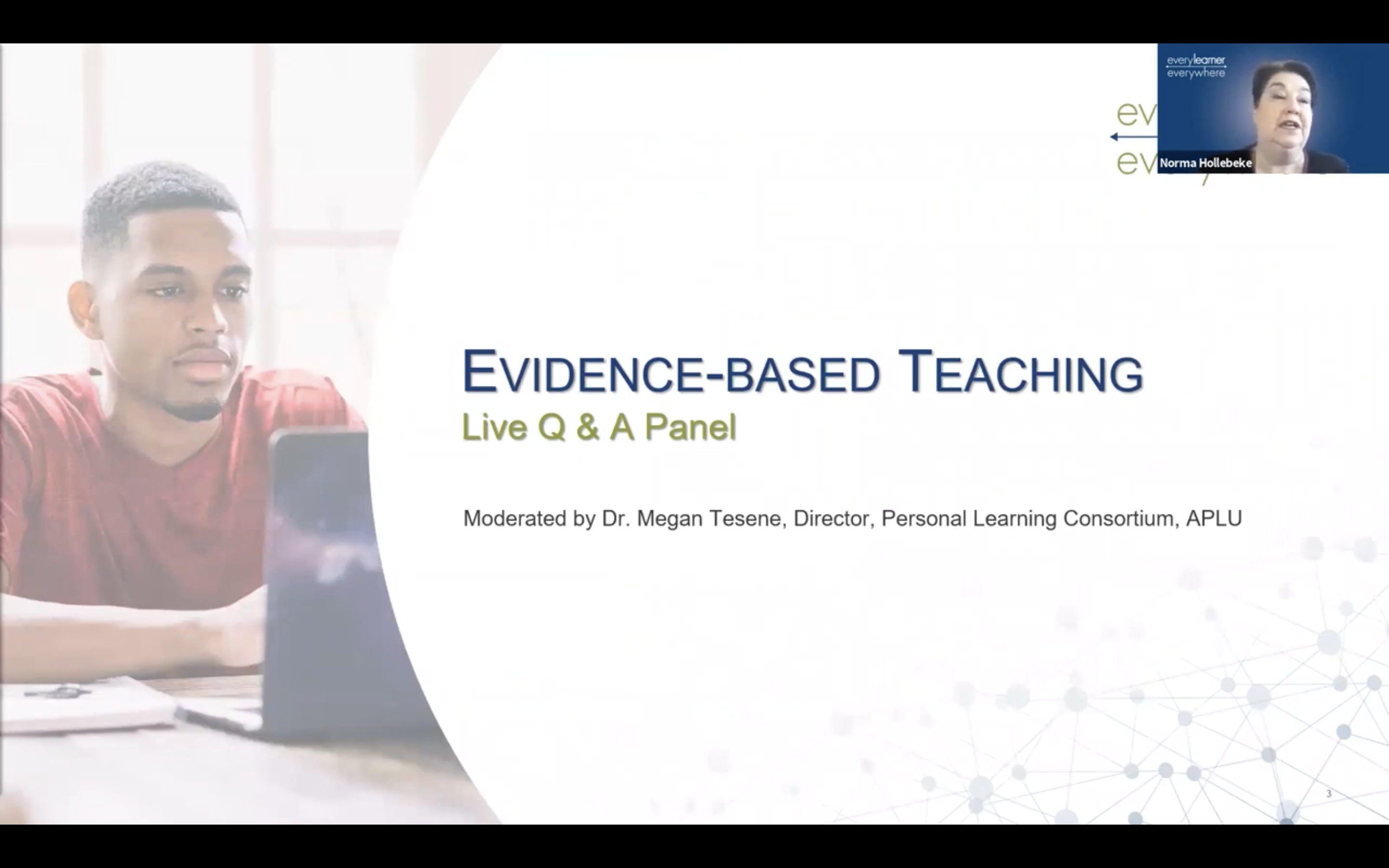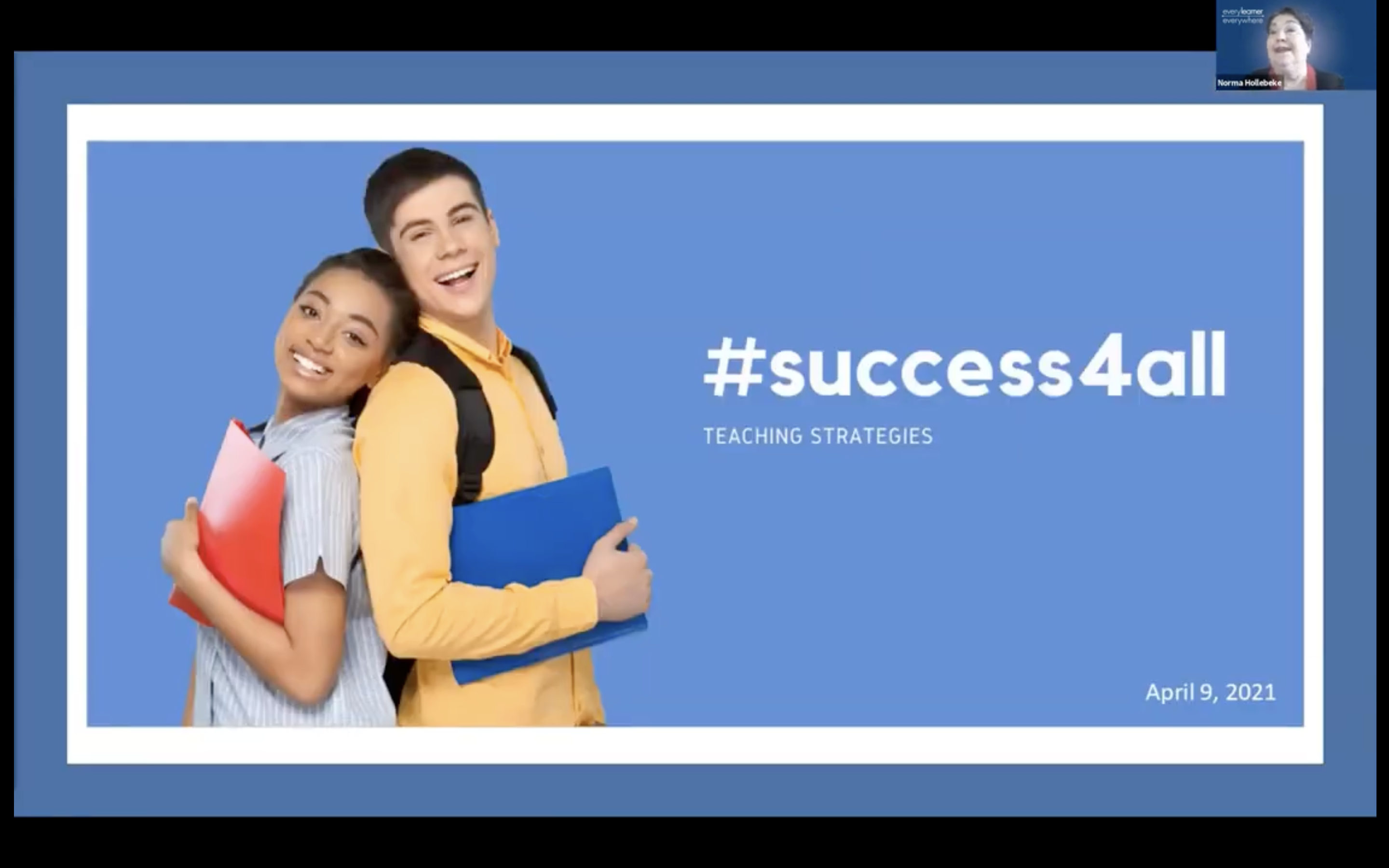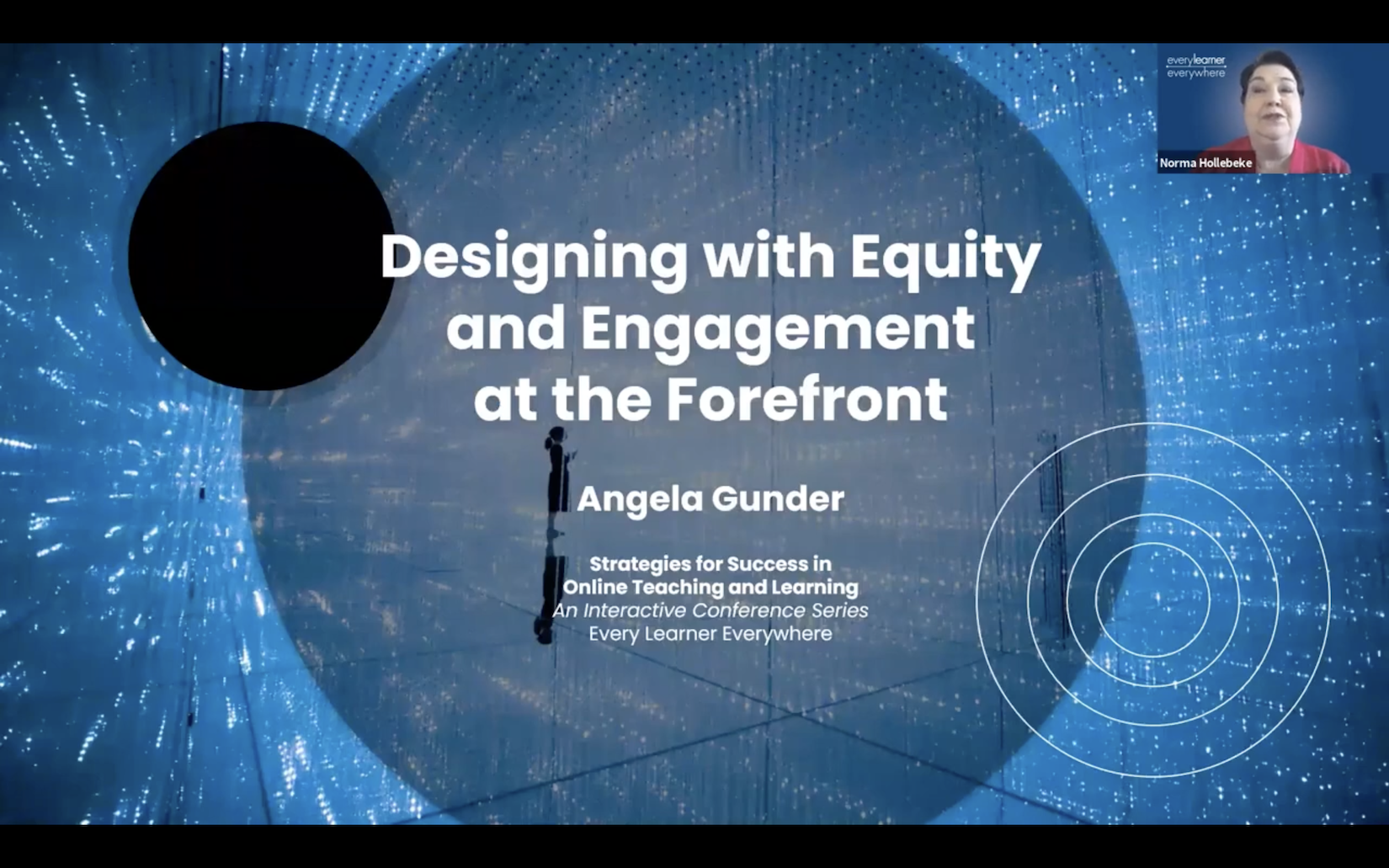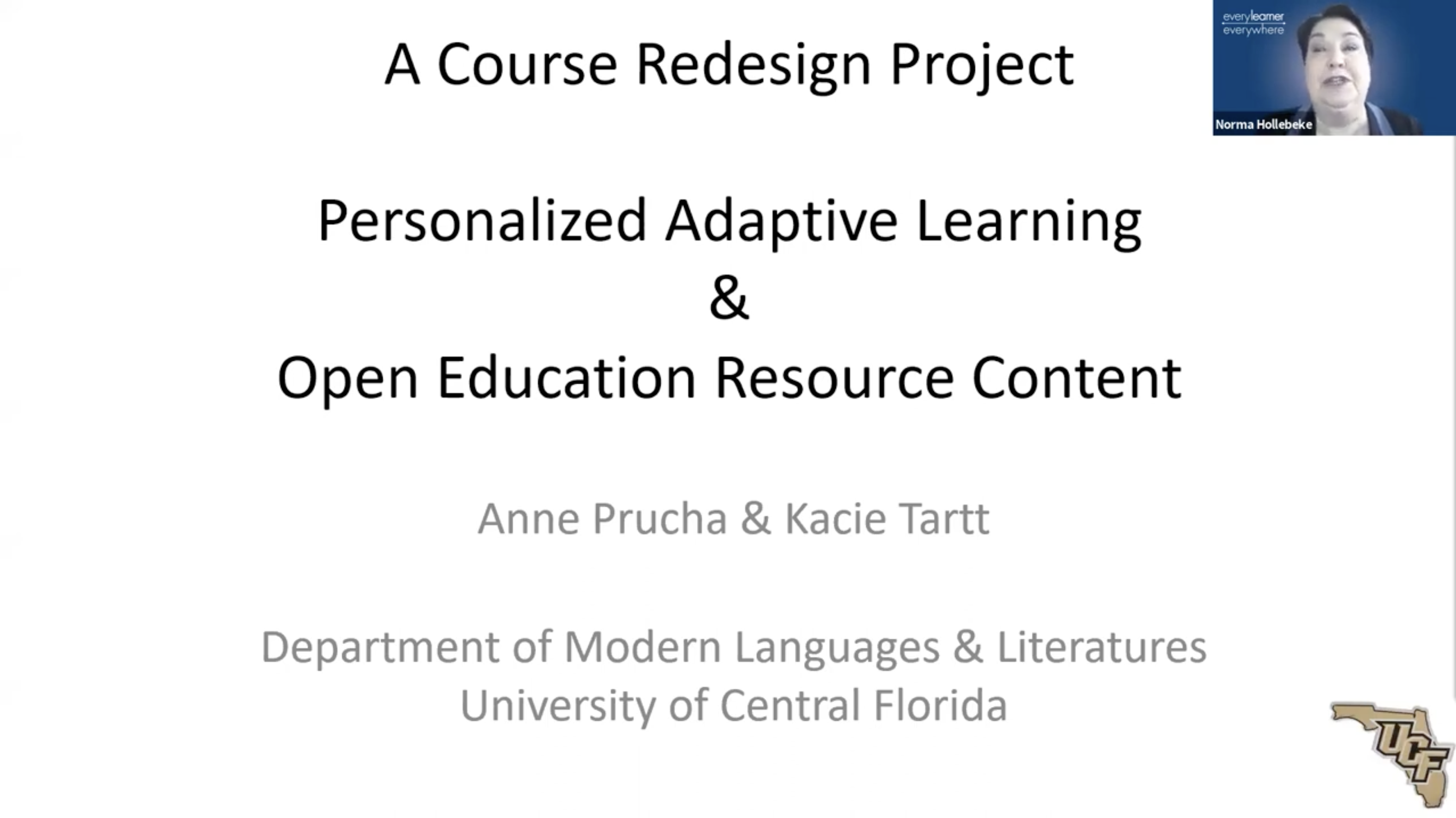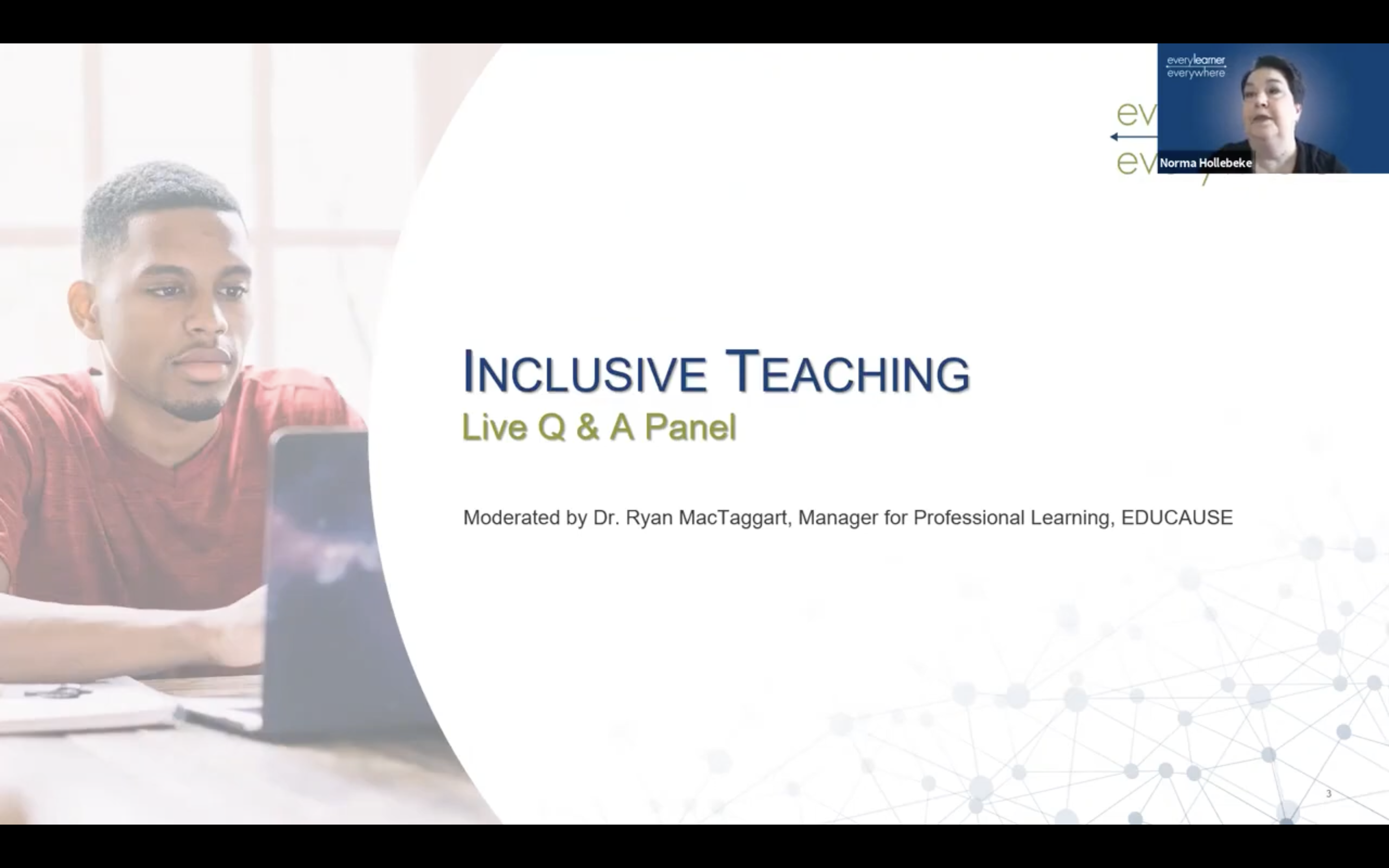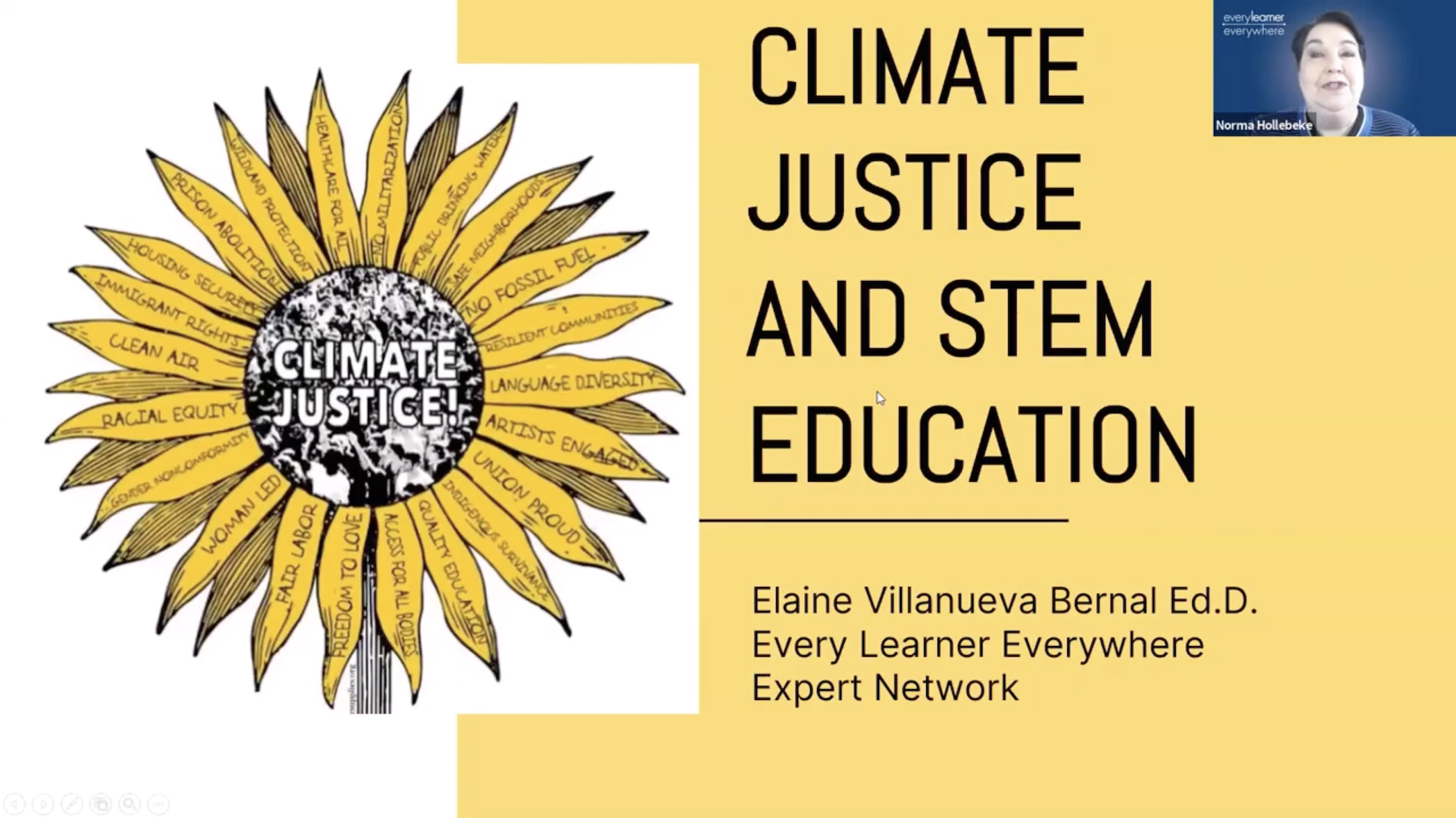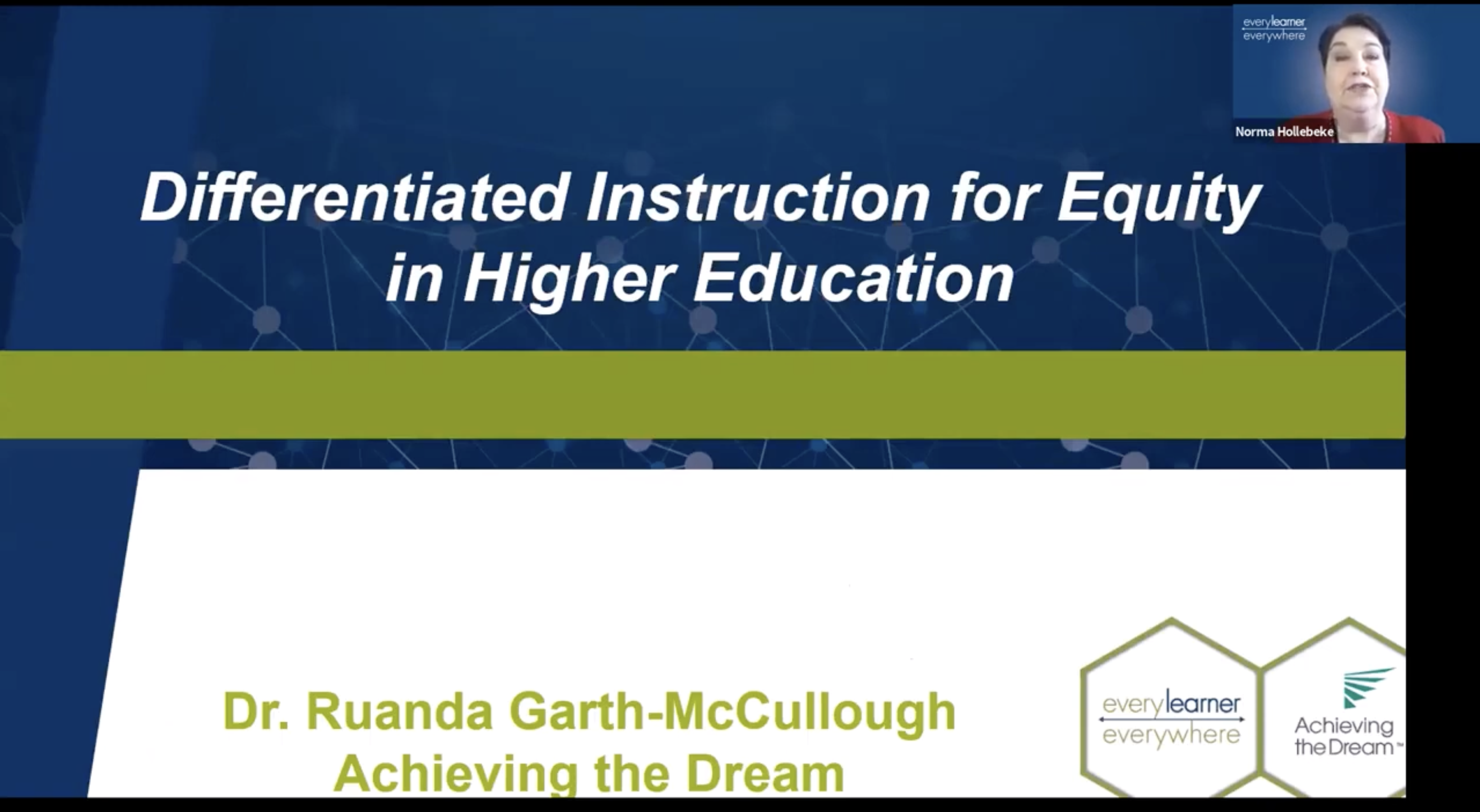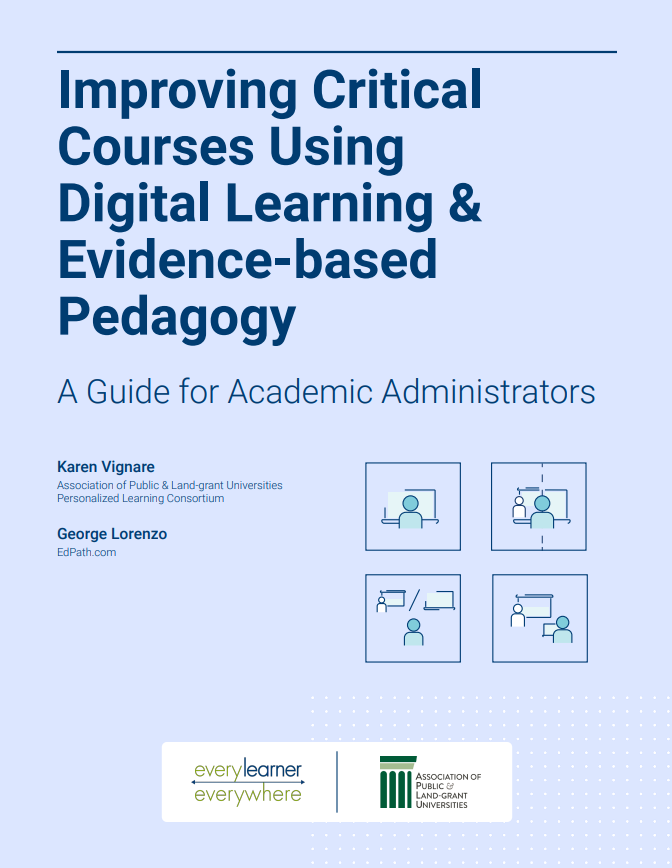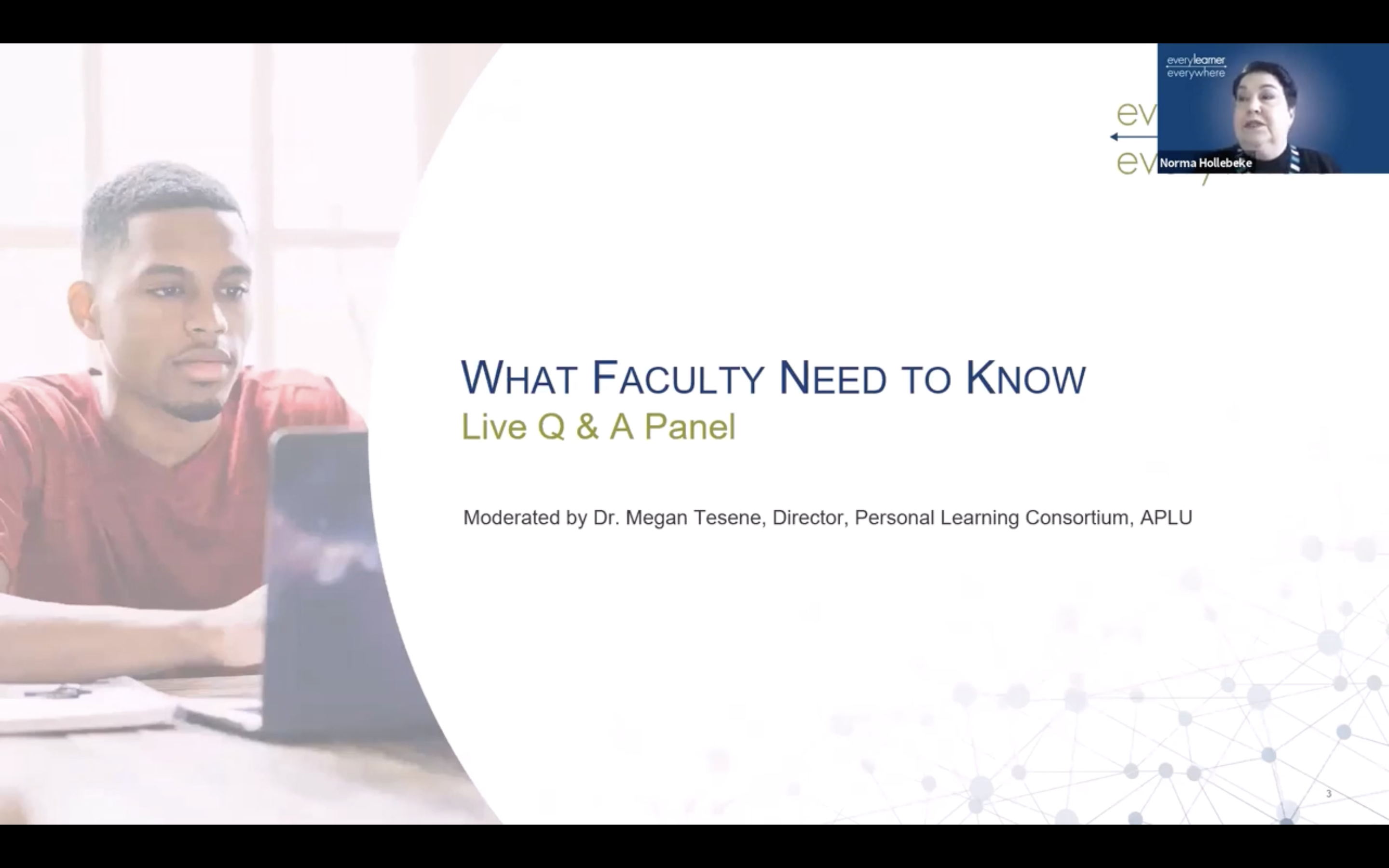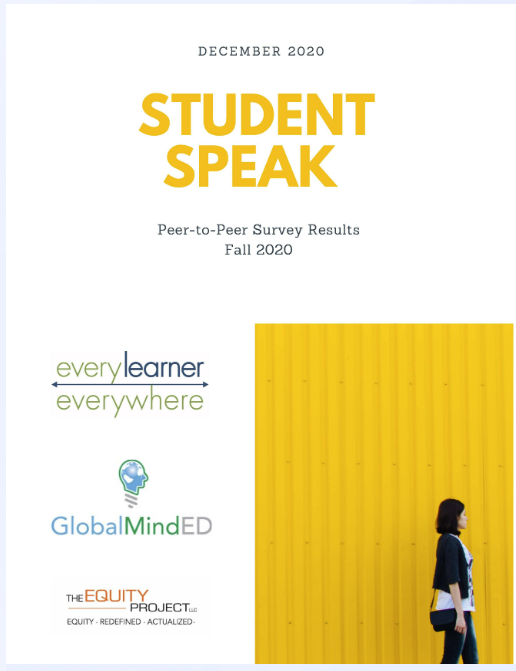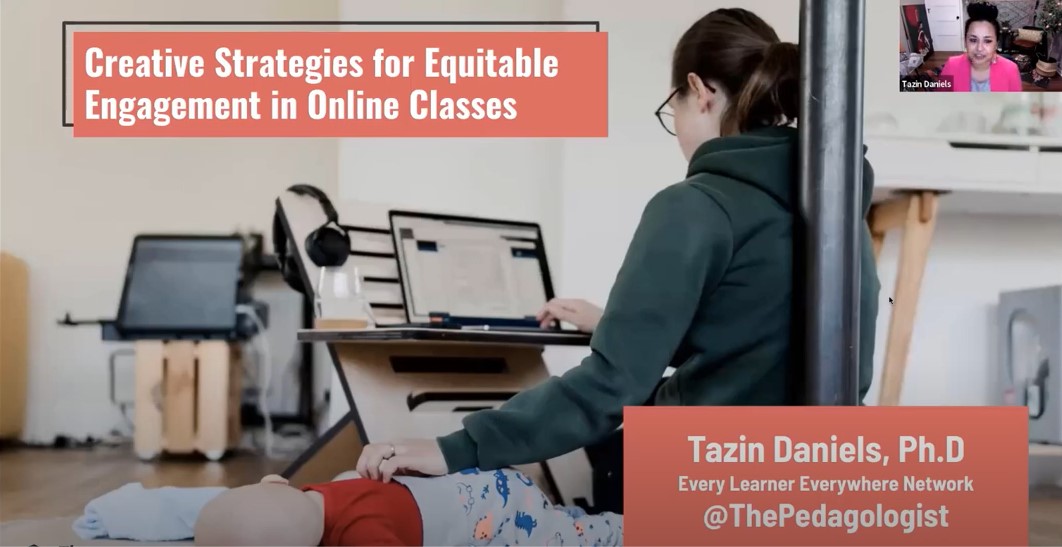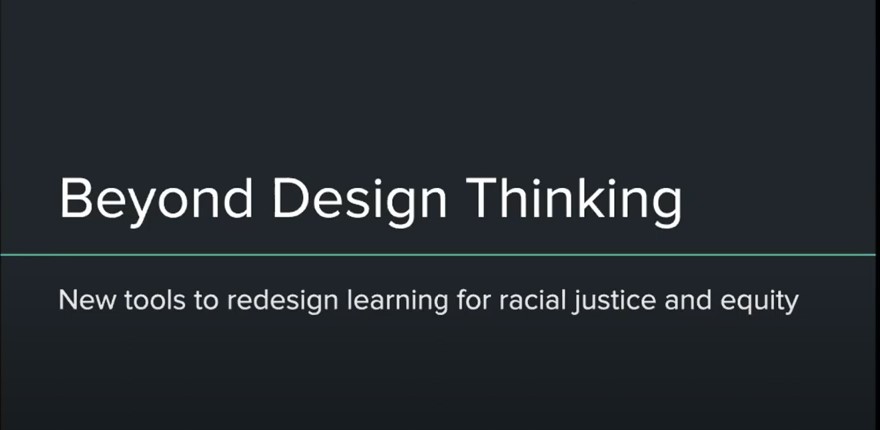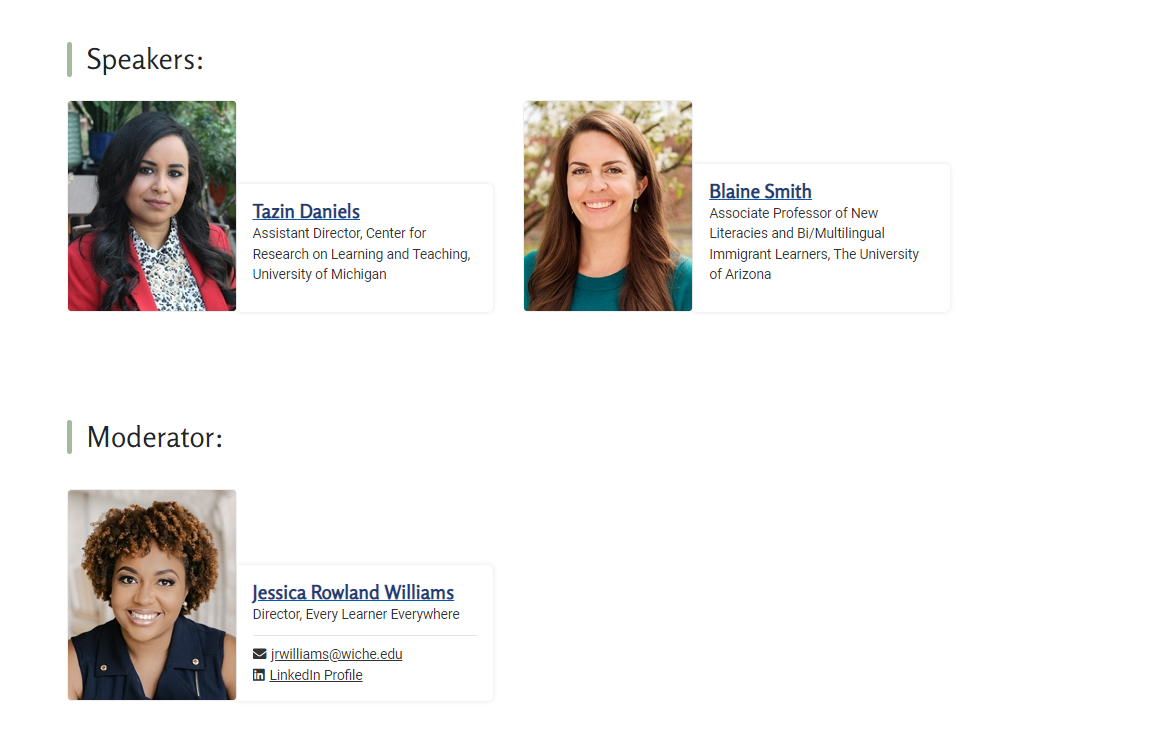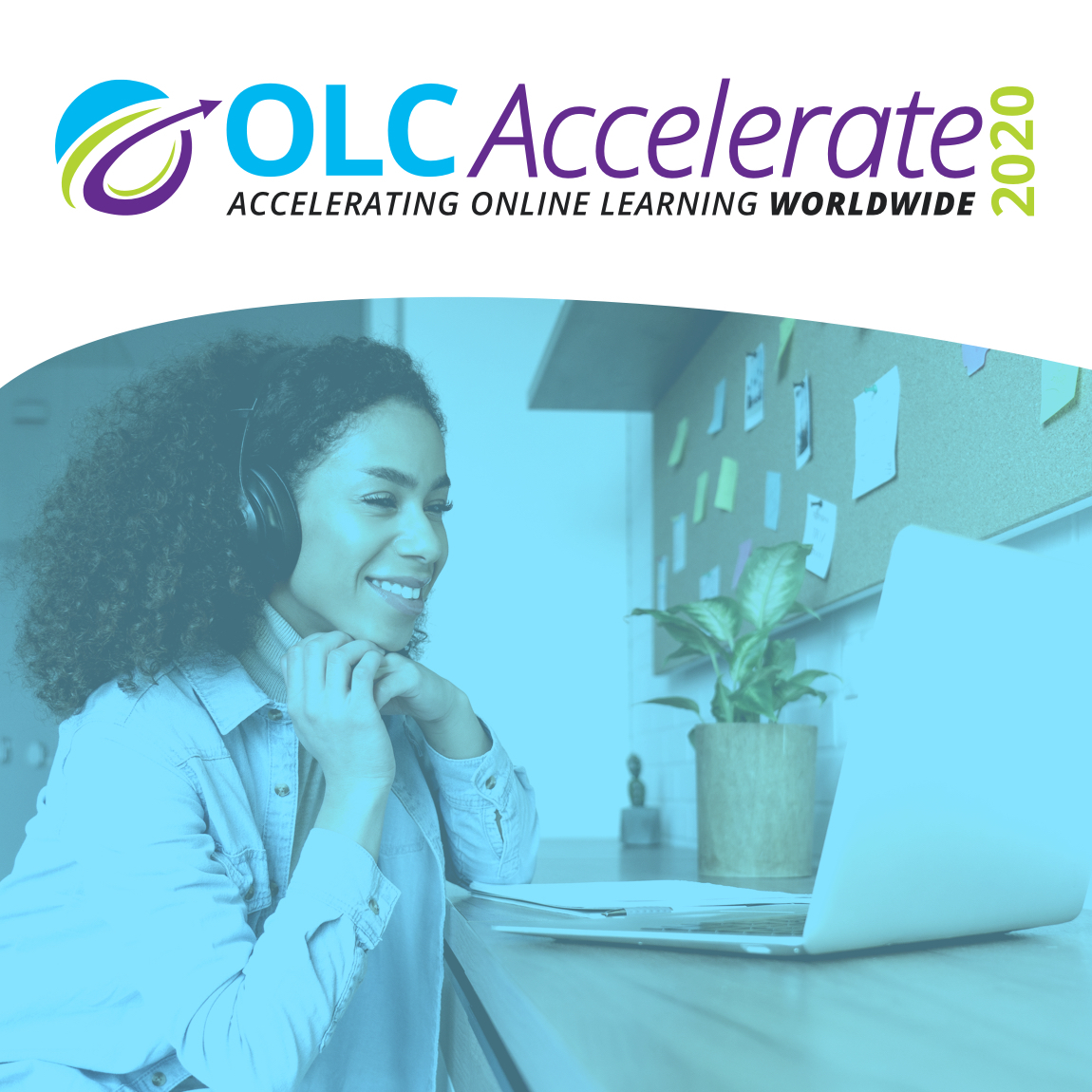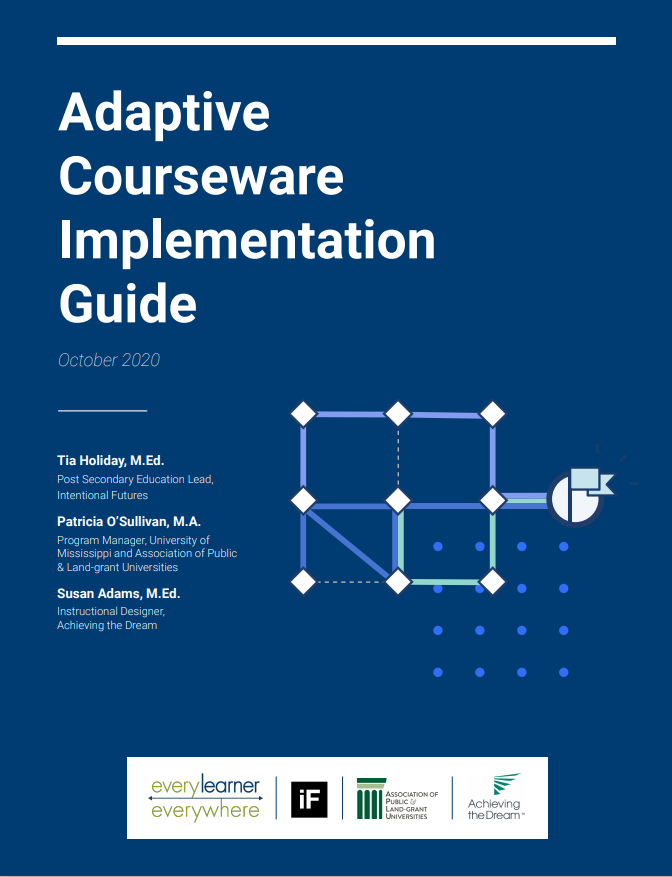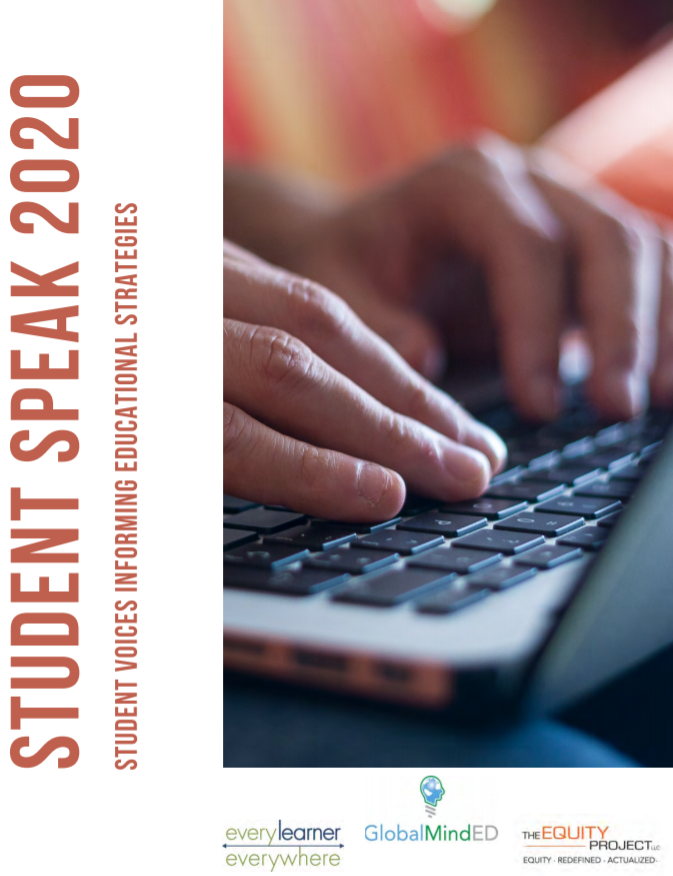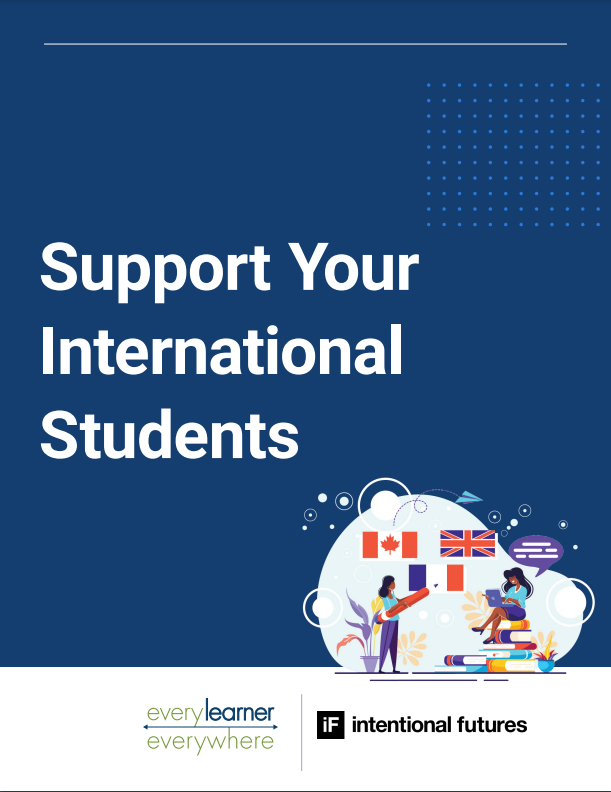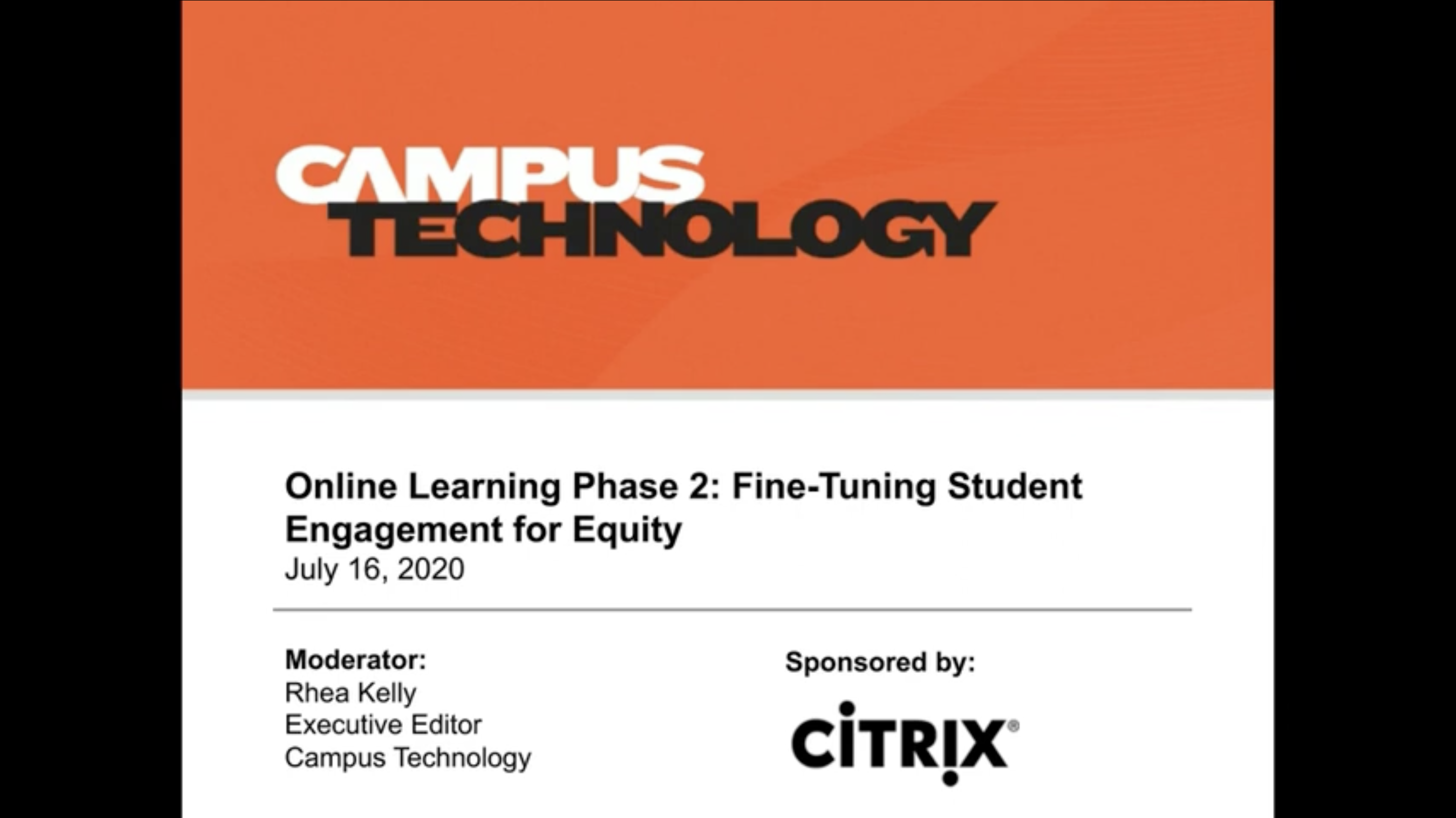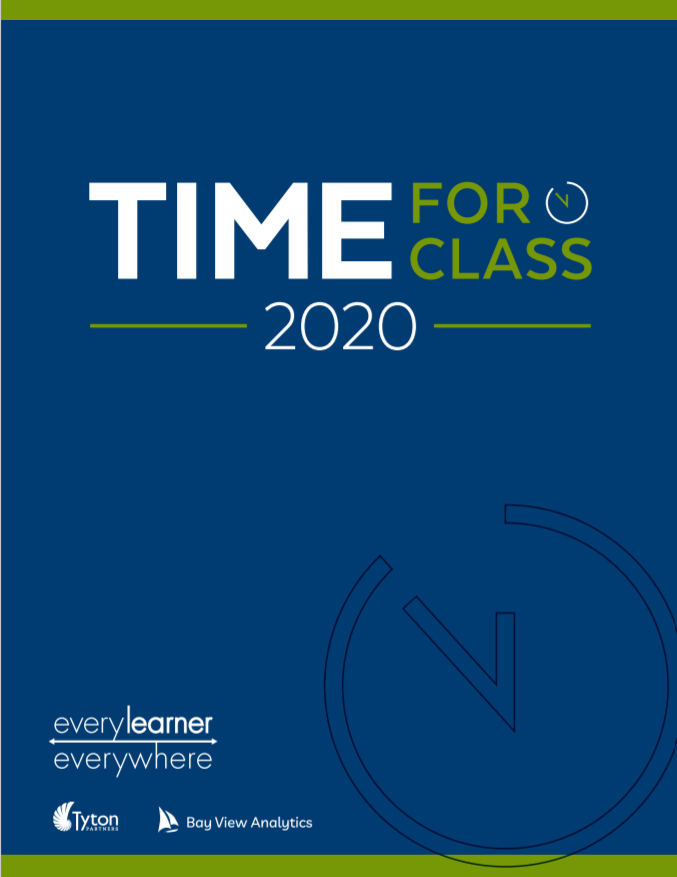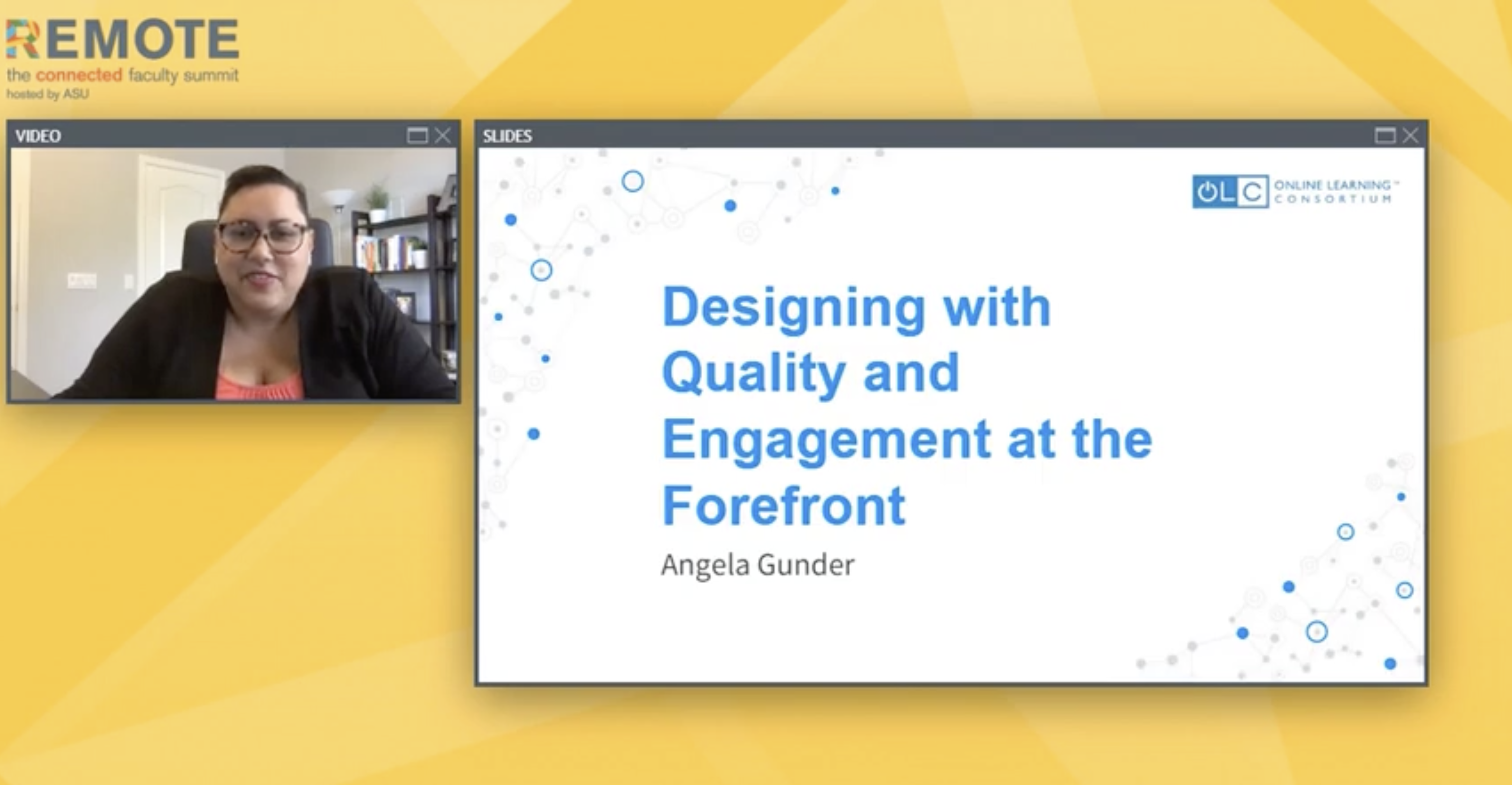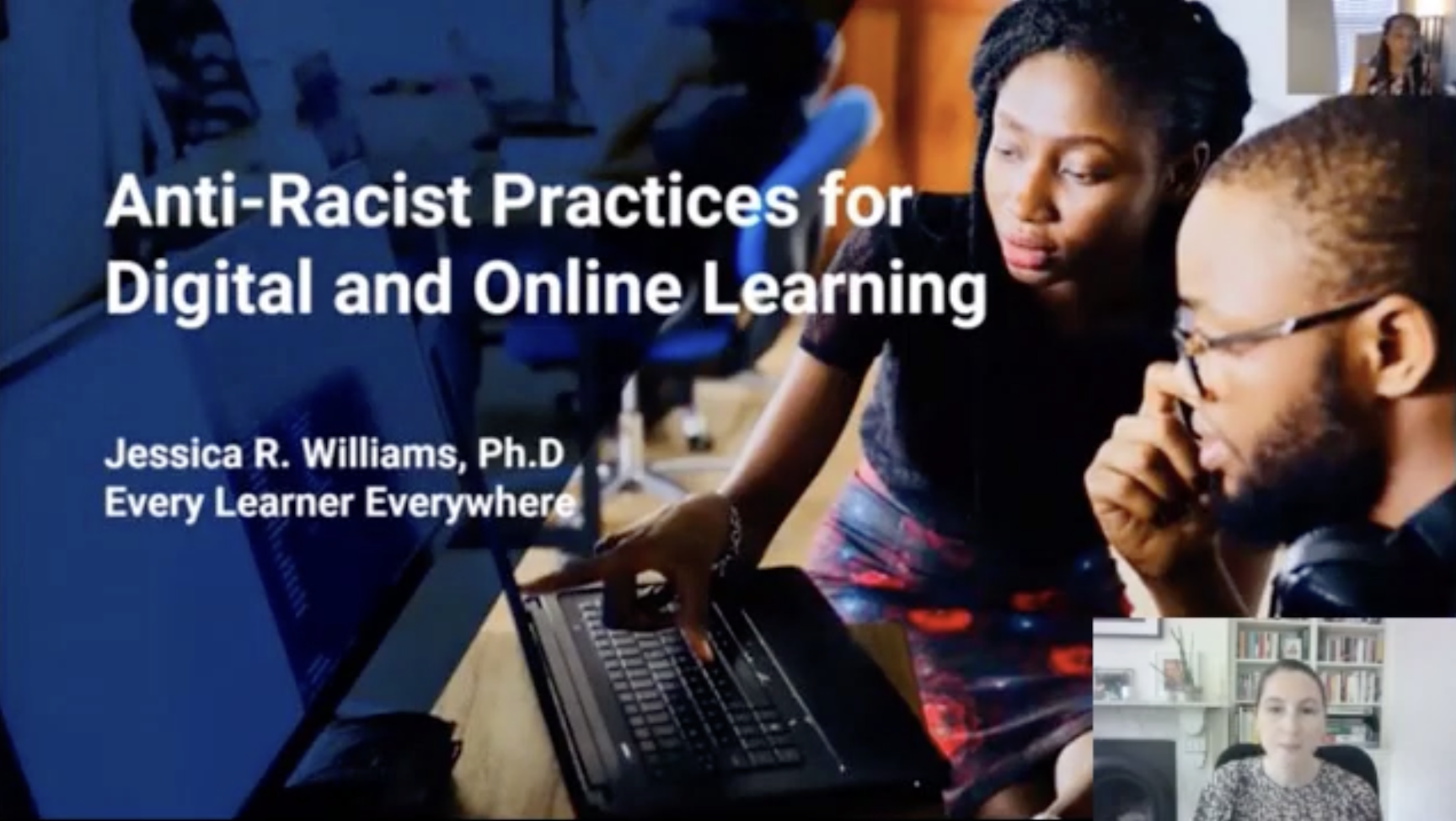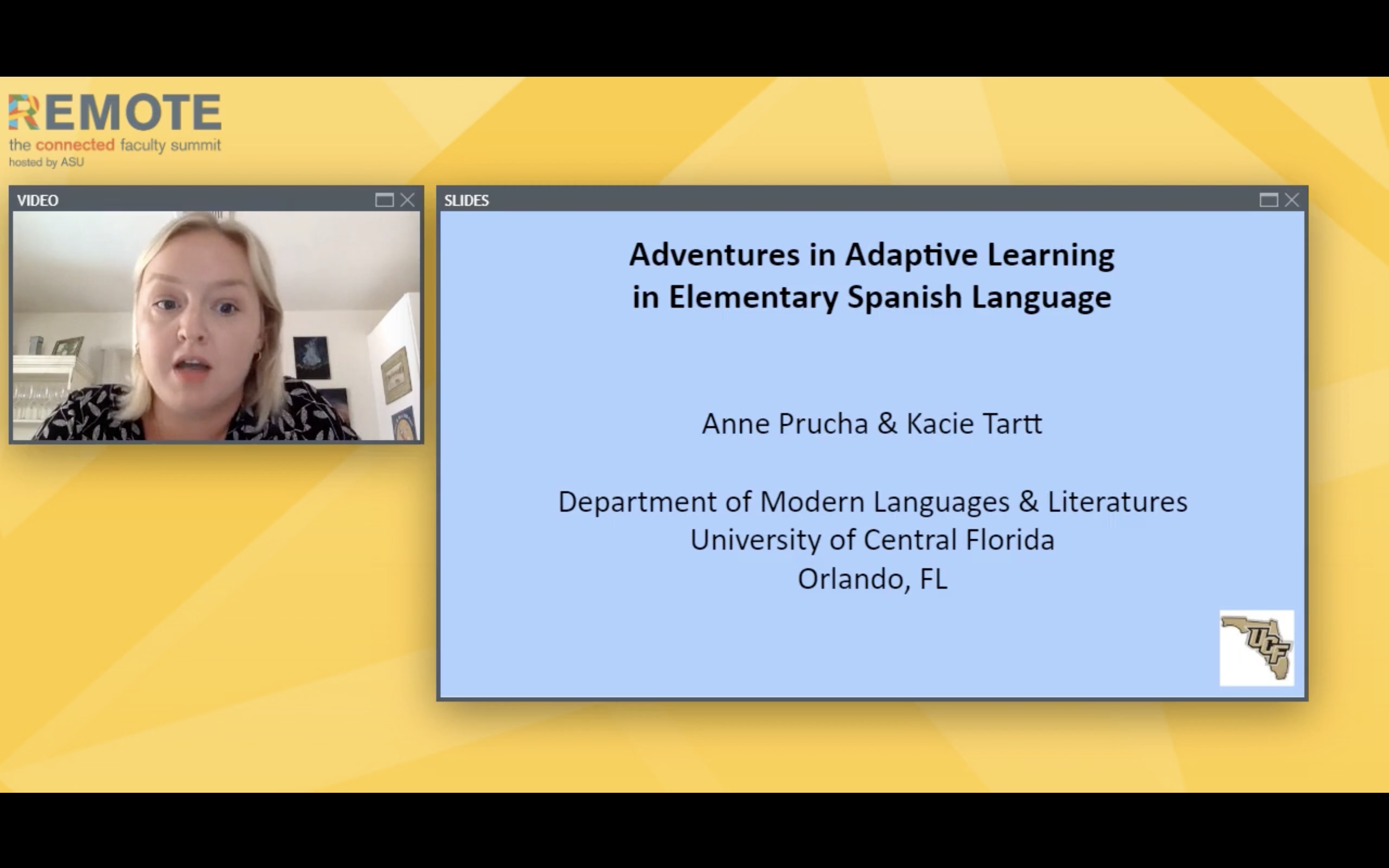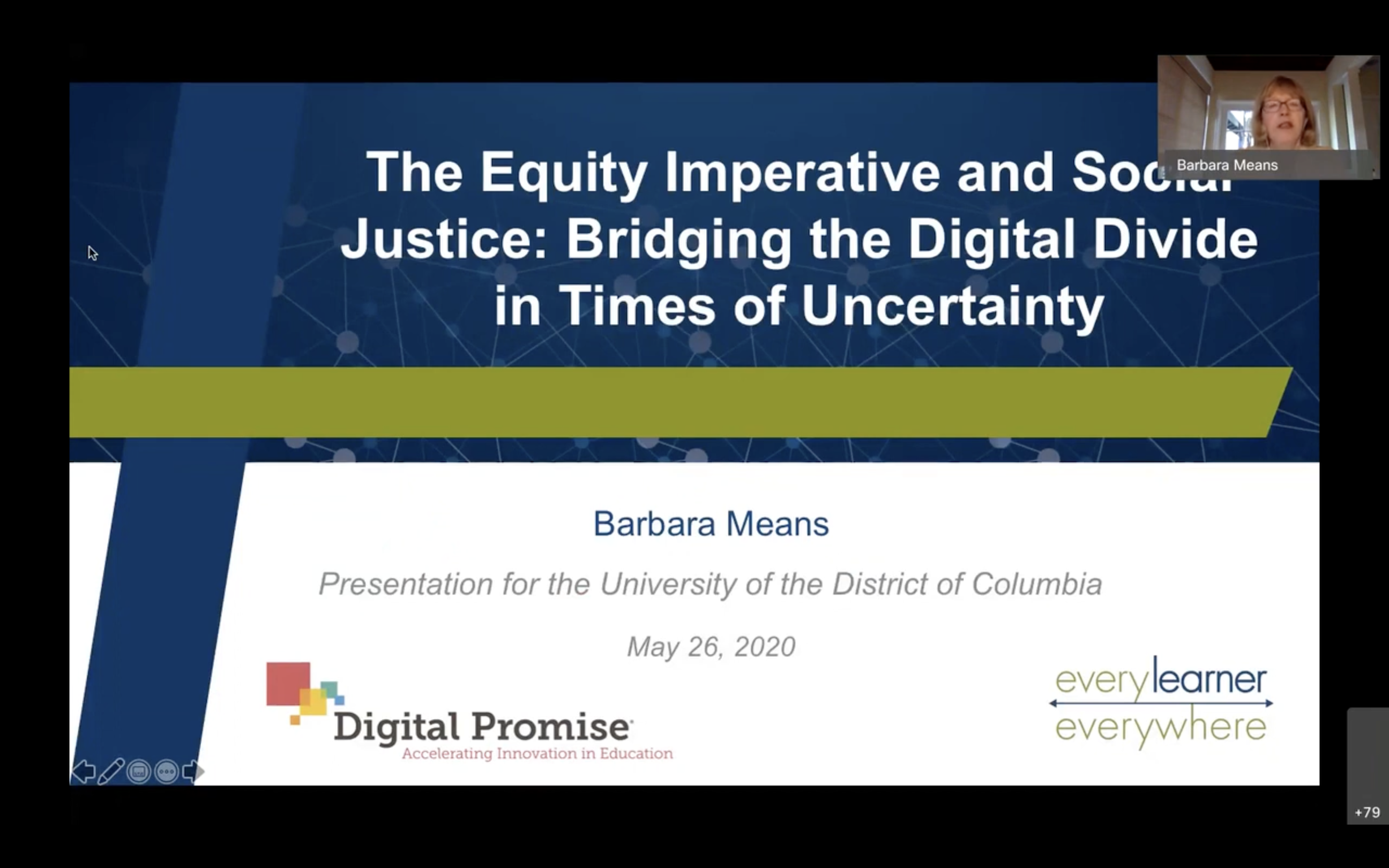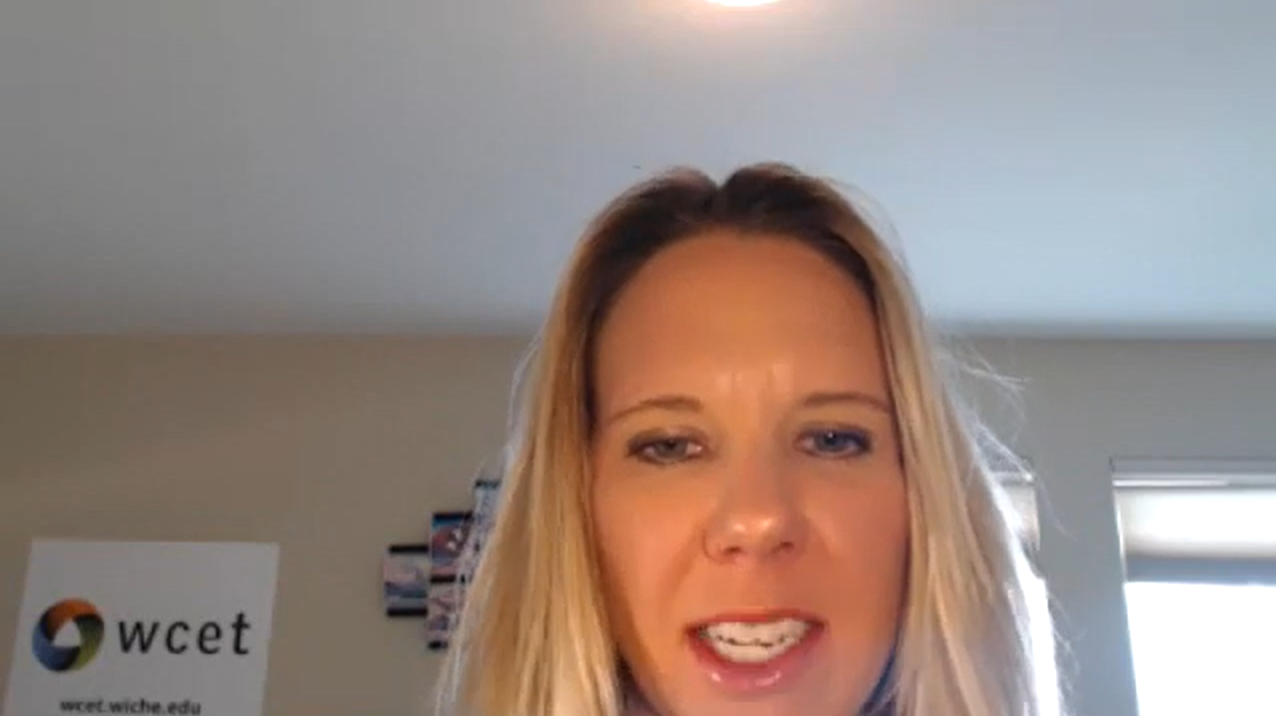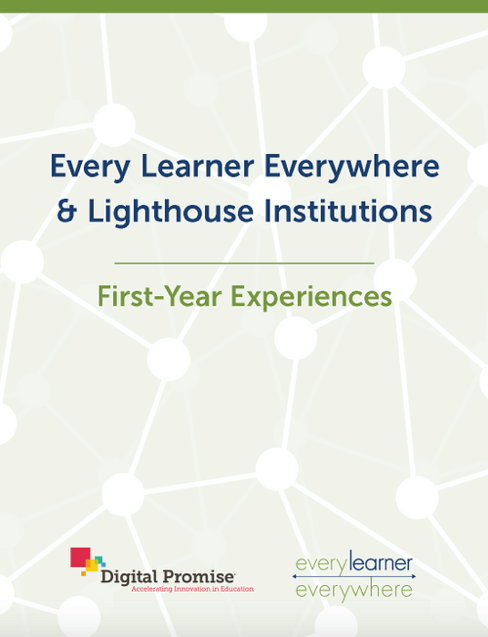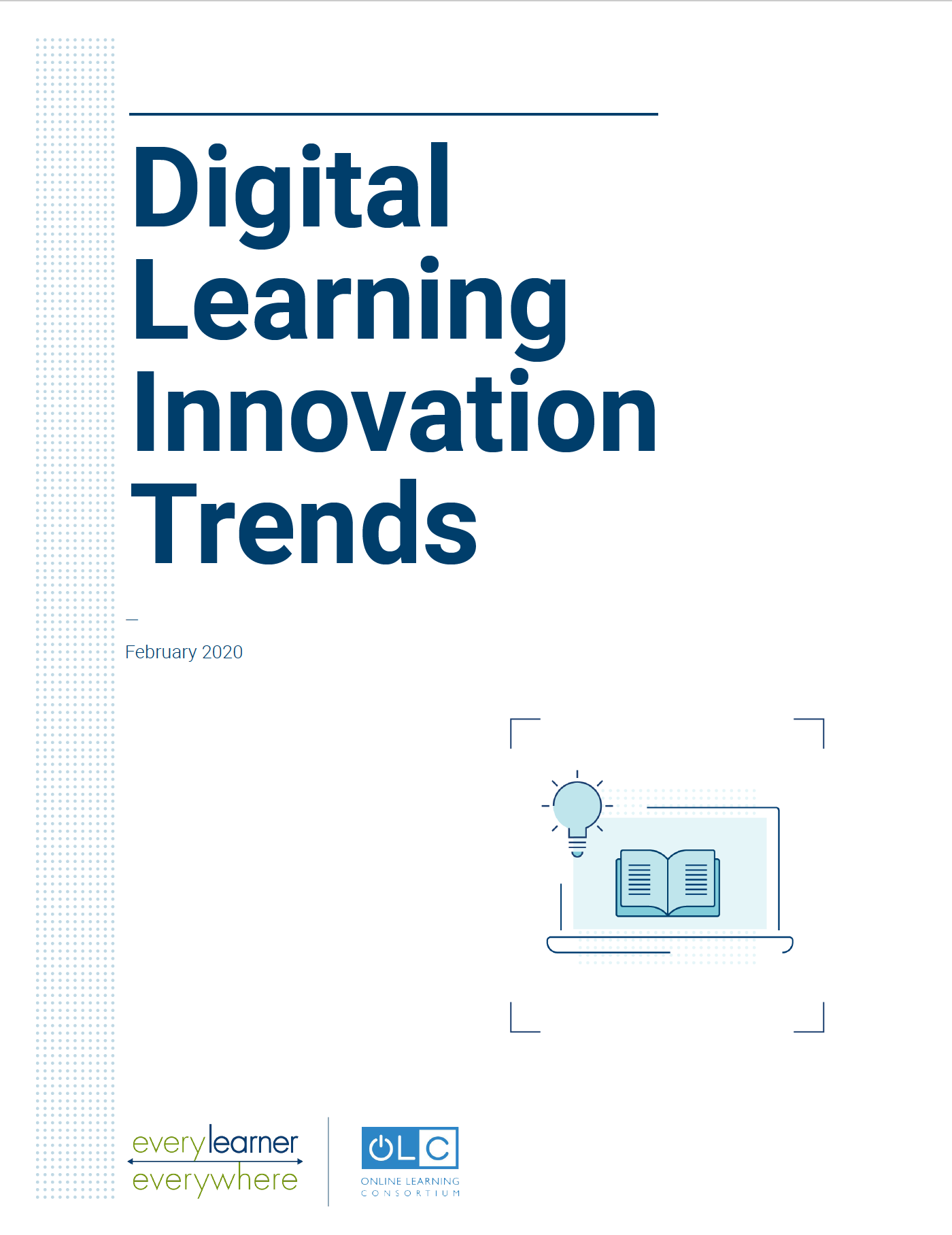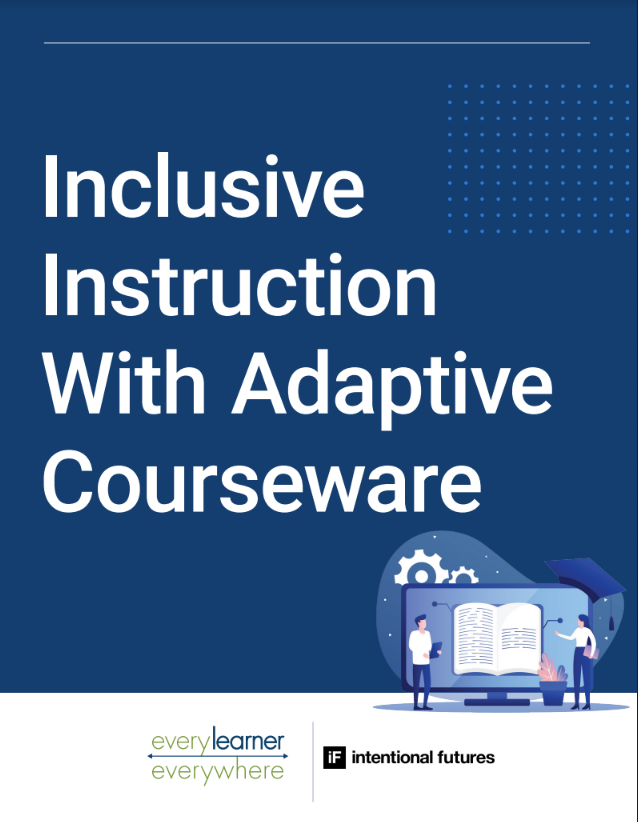Featured Resource
February 2024
In this report, you can read about the network’s impact in the areas of services, thought leadership, and student engagement. In addition, we recap our 2023 network convening, introduce our new Equity First Organization partners, feature some of our student interns, and give readers a preview of what’s ahead for the network in 2024.
All Resources
Materials are freely available on our website and licensed under a Creative Commons Attribution-No Derivatives 4.0 International License, unless otherwise noted.
August 2024
In this new resource, 12 instructors from a variety of two-year and four-year institutions share their experiences adopting digital learning tools to promote equity and improve learning outcomes for historically marginalized and under-resourced students. Their narratives highlight successes as well as bumps in the road as they implemented digital learning tools into their teaching.
February 2024
In this report, you can read about the network’s impact in the areas of services, thought leadership, and student engagement. In addition, we recap our 2023 network convening, introduce our new Equity First Organization partners, feature some of our student interns, and give readers a preview of what’s ahead for the network in 2024.
September 2023
Tyton partners’ Listening to Learners 2023 reveals that while 70% of students value representative diversity among advisors, only 30% of institutions report scaled implementation of this hr practice. Cutting-edge research identifies strategies to enhance student outcomes and create a sense of belonging in higher education.
August 2023
This guide presents results from an analysis of 100 academic continuity plans at U.S. colleges and universities. The results form the basis for recommended academic continuity plan best practices, tools, and templates academic leaders can use to maintain a plan that can be used in both short-term and long-term circumstances.
April 2023
The focus of this resource paper is to assess the effectiveness of digital learning in decreasing equity gaps as well as the impact digital learning has on specific student populations: those who identify as Black, Latino, and Indigenous; students from low-income backgrounds; and first-generation students.
June 2024
In this report, we first describe our survey design. Second, we discuss the survey respondents’ demographic data. Third, we present the survey results broken into two main sections: one focused on use of culturally relevant instructional practices and one focused on use of culturally relevant course materials. This report concludes with implications for practice and future research on culturally relevant content in postsecondary education and gateway courses.
December 2023
Culturally responsive pedagogy is a framework that is inclusive of culturally responsive and relevant teaching, and culturally affirming and sustaining instructional methodologies that validate and engage students’ cultural identities. These practical instructional strategies and practices guide the implementation of culturally responsive teaching and learning into educational spaces.
December 2023
The Equity-Minded Digital Learning Strategy Guides help faculty intentionally and authentically affirm, uplift, and liberate students. As higher education continues to address eliminating inequitable outcomes in teaching and learning, these guides will help institutions embed equity, culturally responsive teaching, social justice education, and open pedagogy through evidence-based teaching practices.
December 2023
Being able to choose course design, content, assignments, assessments, and instructional approaches based on the context of the learners and the current events of the times allows students to relate all areas of the course to their lives and equitizes their experiences and outcomes. This guide is designed to support faculty with operationalizing open pedagogy through a culturally responsive lens.
December 2023
Advancing social justice in education requires establishing educational spaces that foster students’ critical consciousness and ability to analyze systems, policies, and practices that lead to inequitable and unjust experiences and outcomes. A social justice approach to education involves two strategies that will be featured in this guide: anti-racist teaching and abolitionist teaching.
December 2023
This paper describes the outcomes of a Digital Learning Equity Analysis project undertaken by two award-winning educators, Sarah Straub and Rachel Jumper, who sought to implement suggestions from the microcredential training hosted by Every Learner Everywhere. This training focused on promoting equity in digital learning and provided a structured protocol for conducting reviews of online courses.
June 2022
Colleges and universities can help alleviate the burden students face every day, including restructuring mental health support on campus, providing options for digital learning, encouraging teachers to apply trauma-informed teaching practices, and connecting students with the resources they need to thrive.
April 2022
The equity review tool is designed for educators striving to create more validating and affirming learning experiences and environments for students. Using this tool, educators will be able to develop and evaluate their resources and the language they use to ensure they are asset-based and supportive of a more equitable teaching and learning process.
January 2022
This report focuses on building the core infrastructure needed for high-quality digital learning and is designed primarily for a mid- to senior-level academic administrators including department chairs, leaders of centers of teaching and learning, technology leaders, and academic leadership.
December 2021
This year our network has prioritized increasing our knowledge and capacity for equity and racial justice work along with centering equity and racial justice in our resources and services. In addition to our personal and professional equity work, we have spent this last year inviting students into our work.
August 2021
Lessons Learned is made up of over 30 recommendations for improving practices in higher education. It asks where unexpected benefits showed themselves among the forced necessity of emergency remote teaching, and it encourages faculty, administrators, and academic and student support colleagues to continue collaborating to remove barriers, improve access, and update methods and tools.
July 2021
Faculty share experiences of developing and implementing active, interactive, and adaptive introductory physics courses. The design allows students to work at their own pace, choosing support items presented to them via the adaptive feature of the course, and explore concepts through simulations with activities.
December 2020
A virtual educator professional development session led by Cherise McBride with reflection on the urgency of humanization in online learning environments and examples from practice.
December 2020
A virtual educator professional development session exploring why trauma-aware teaching must center diversity, equity, and inclusion.
December 2020
A brief exploration on how faculty can position cultural knowledge and centering identity as a cognitive tool.

